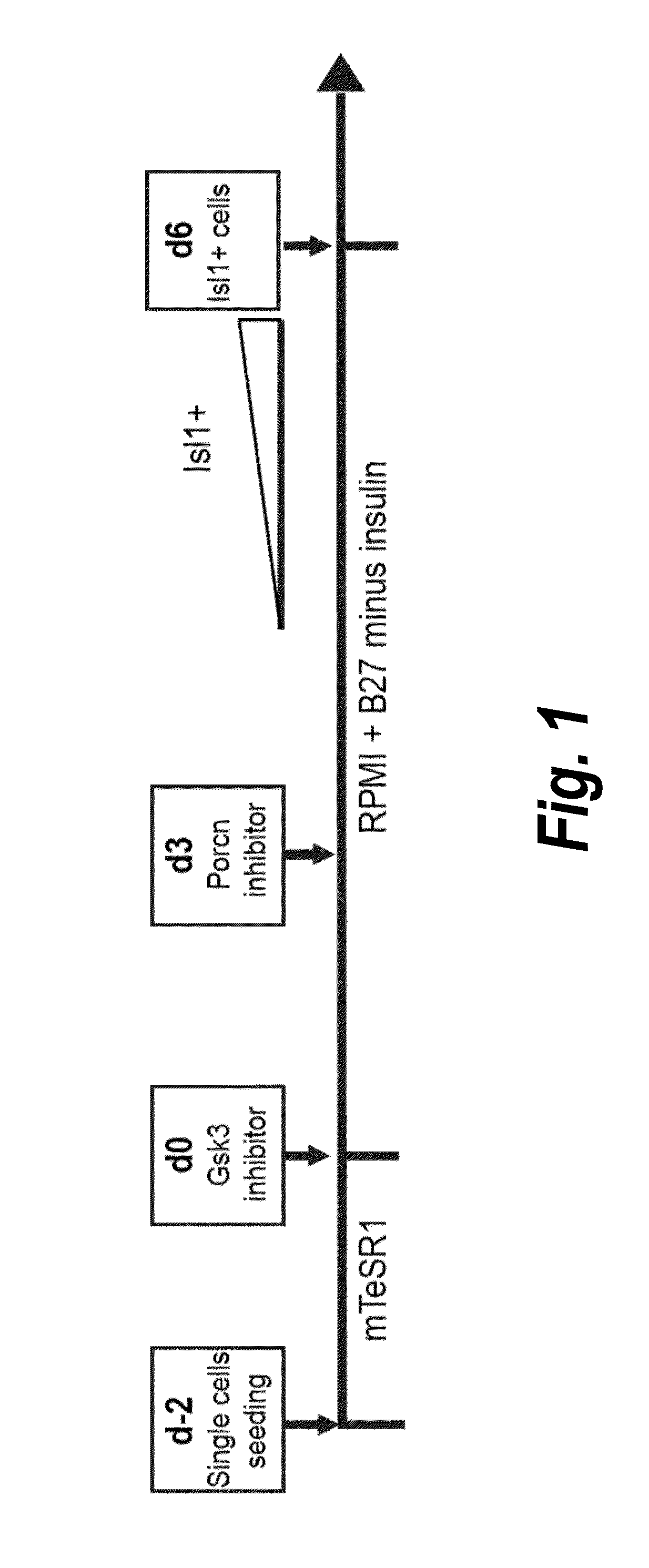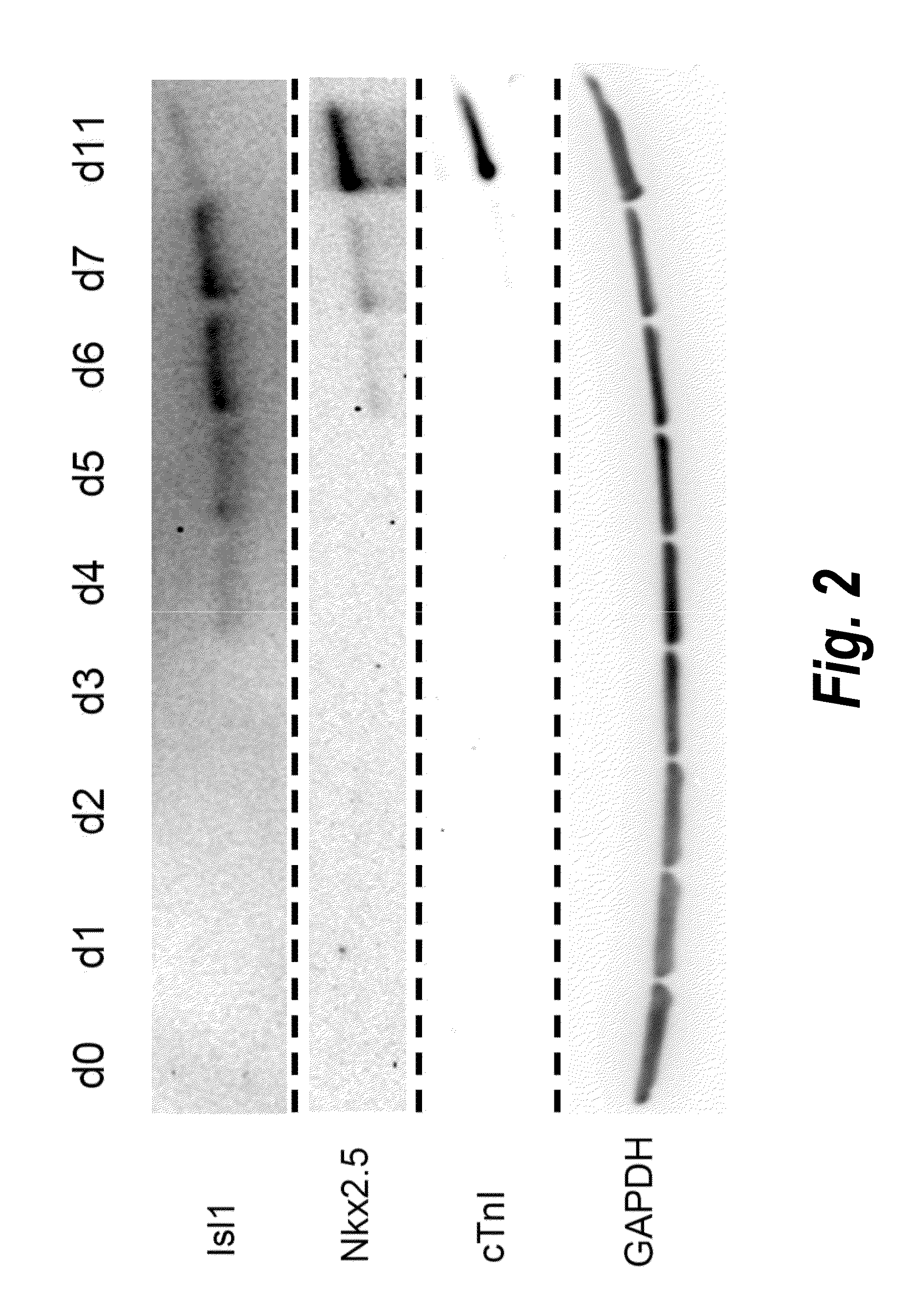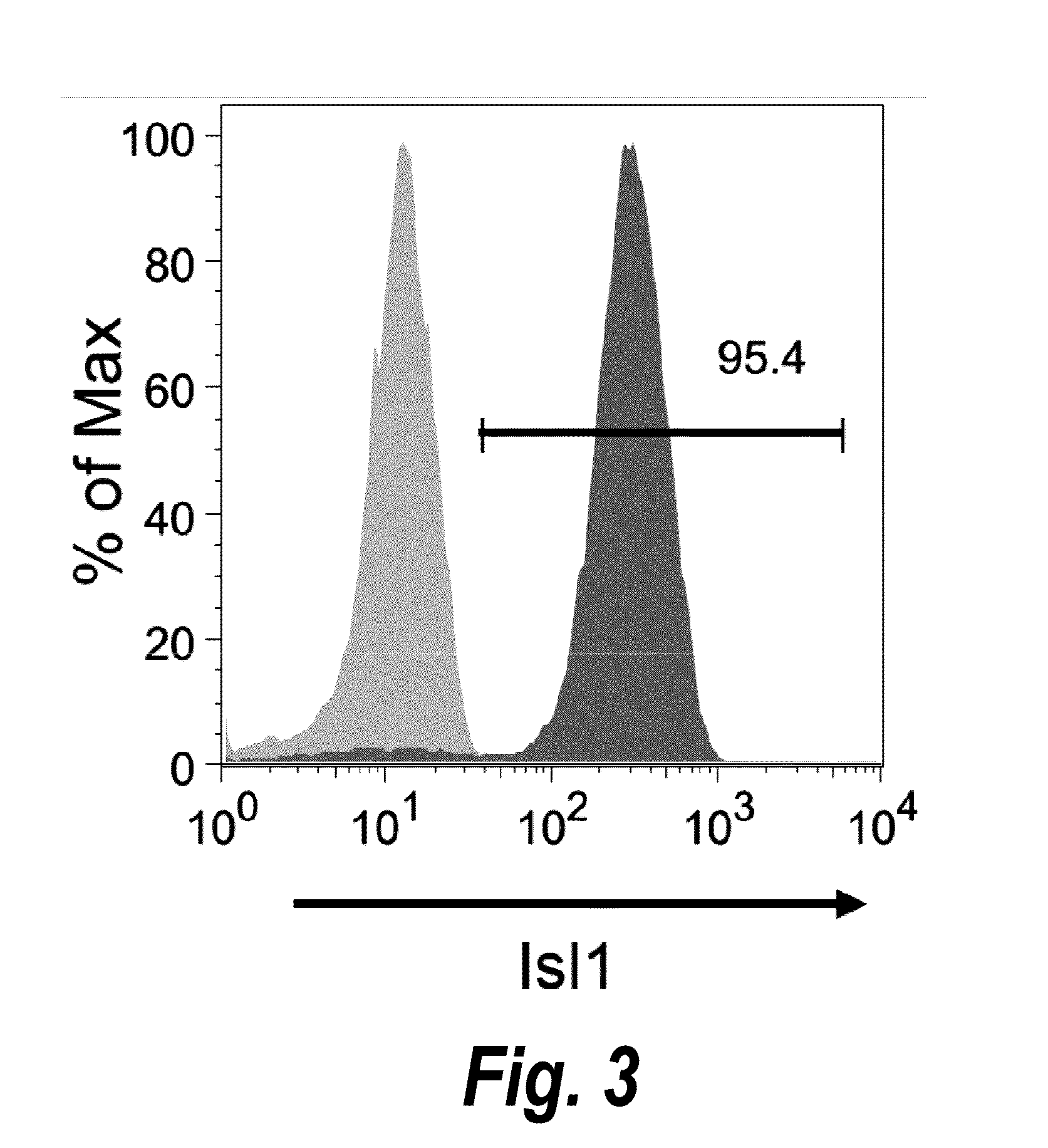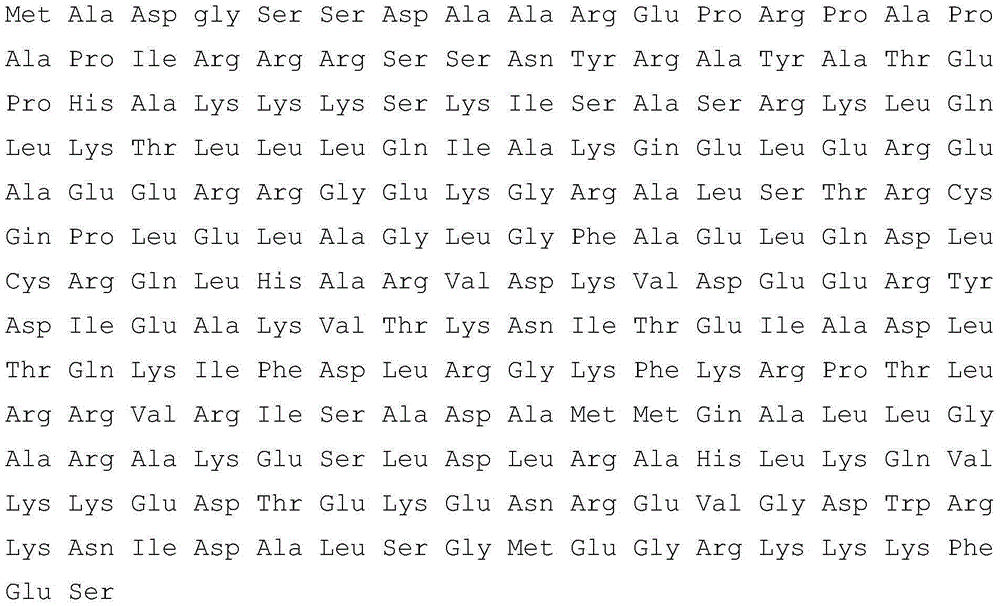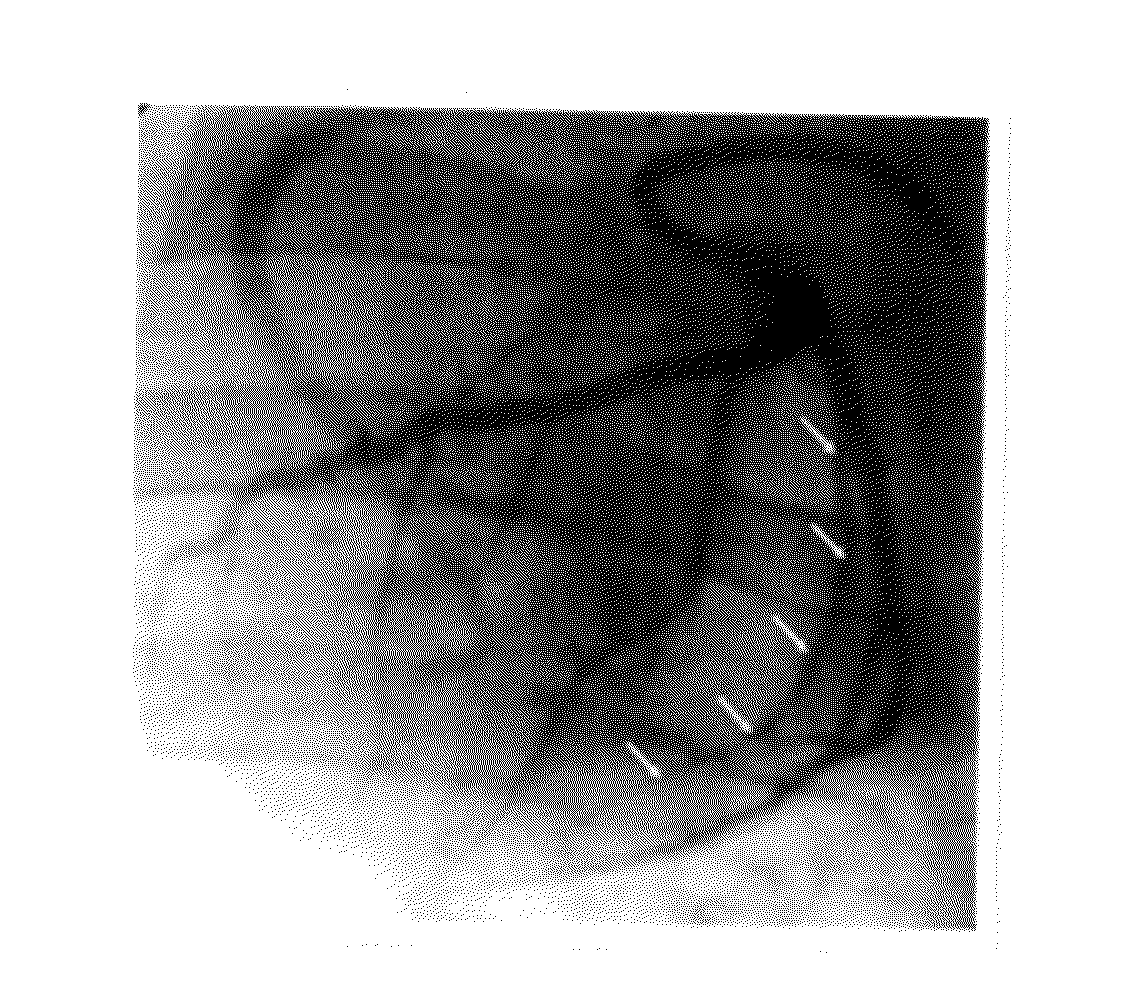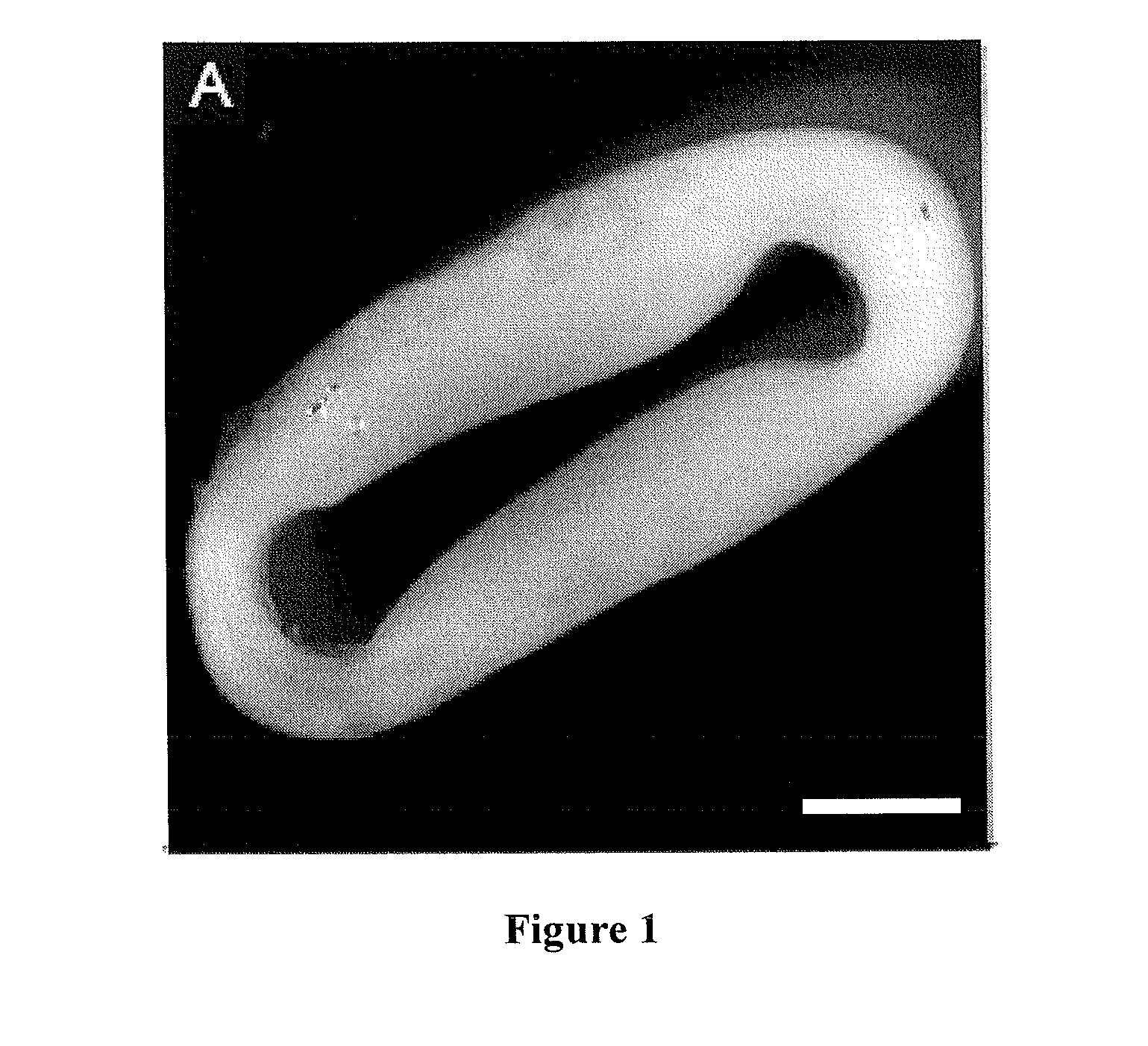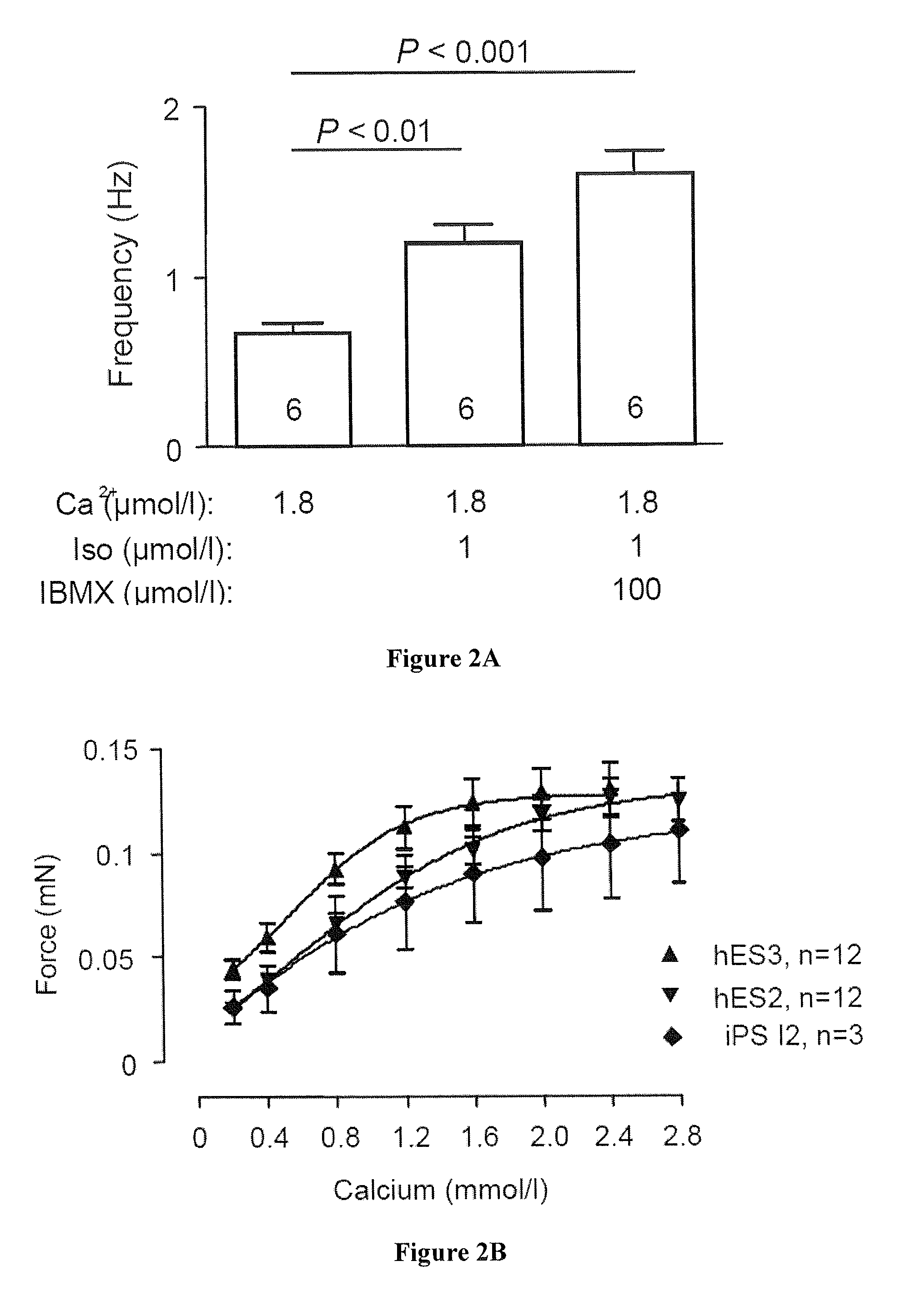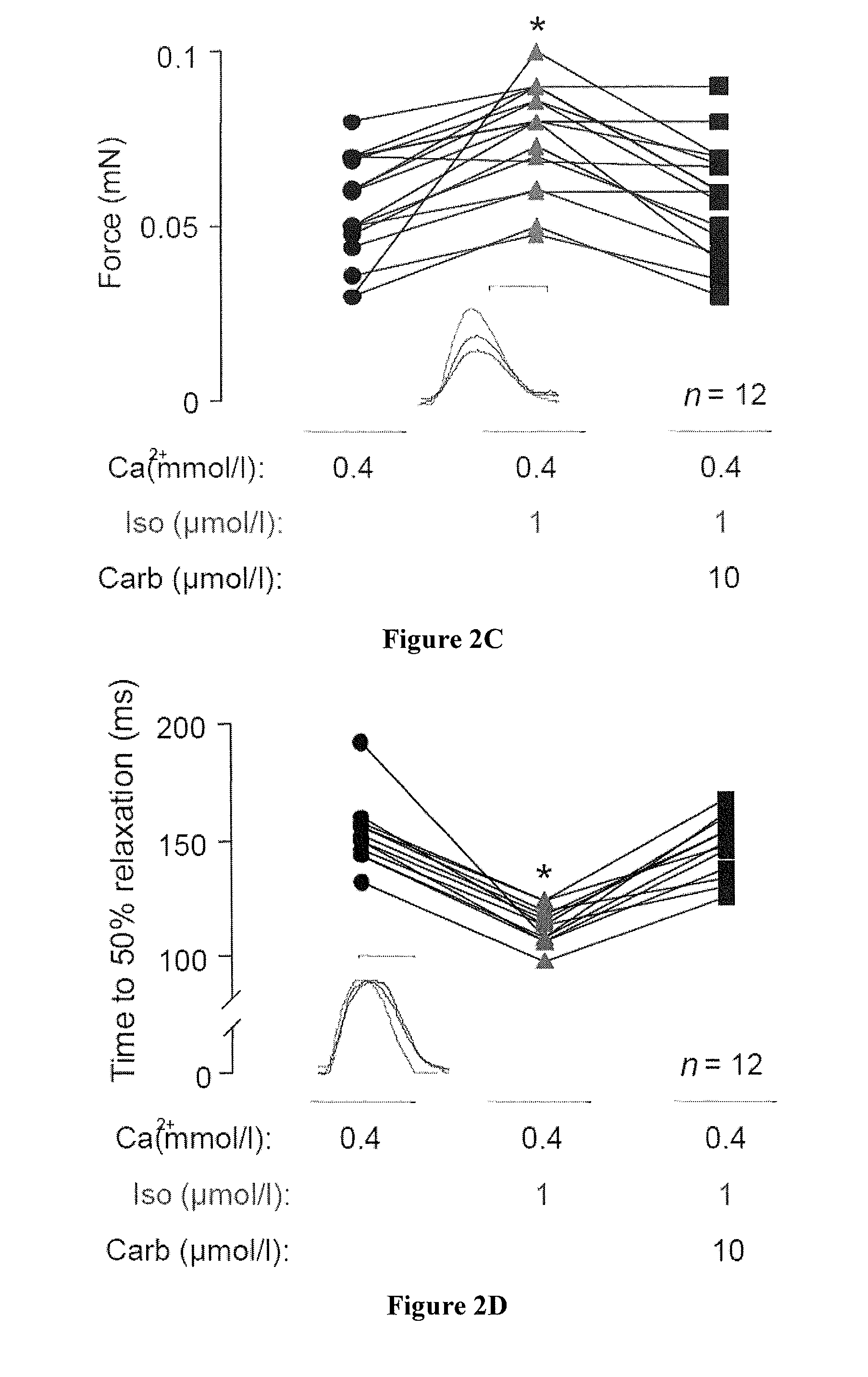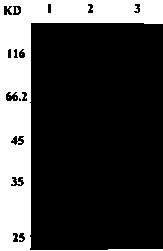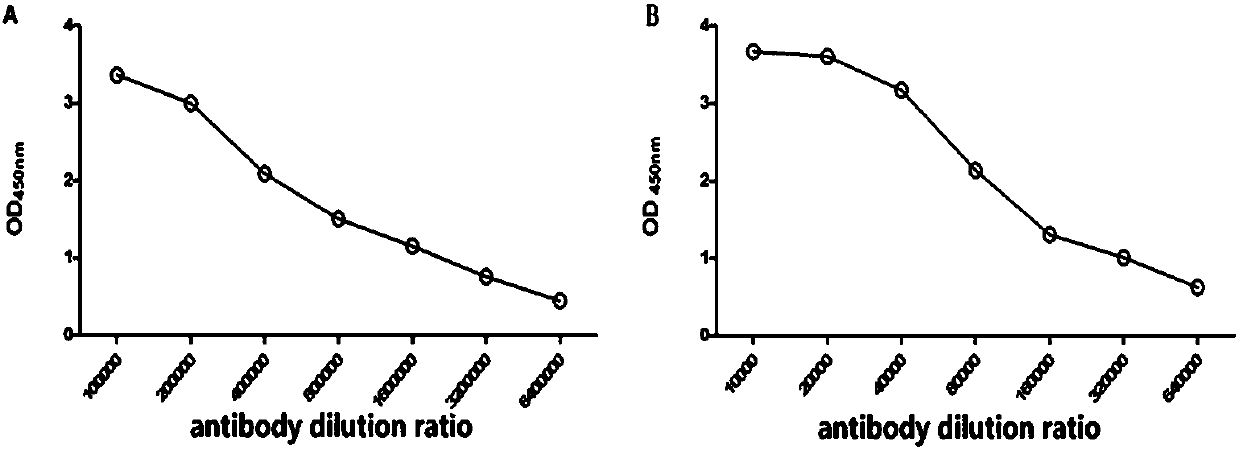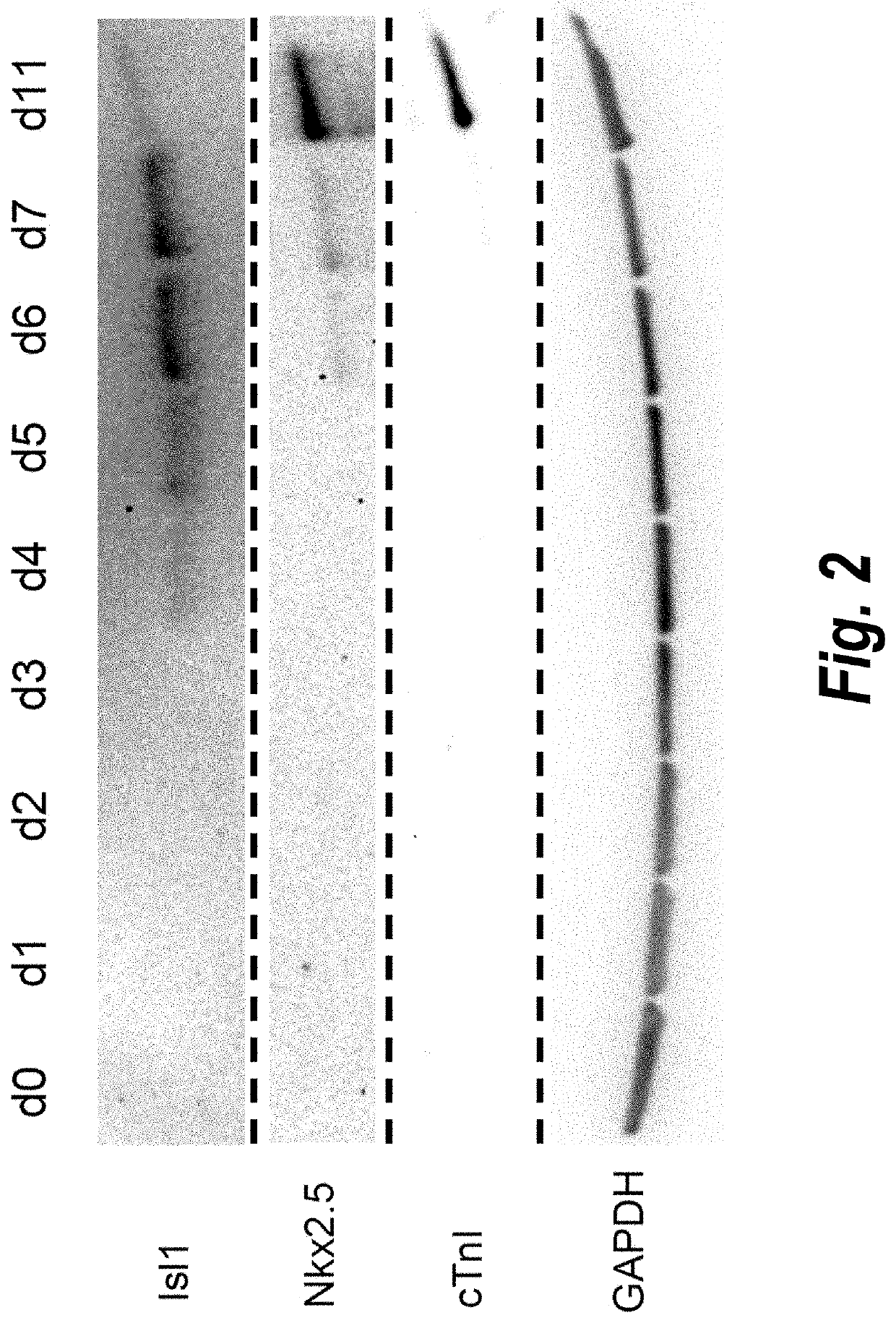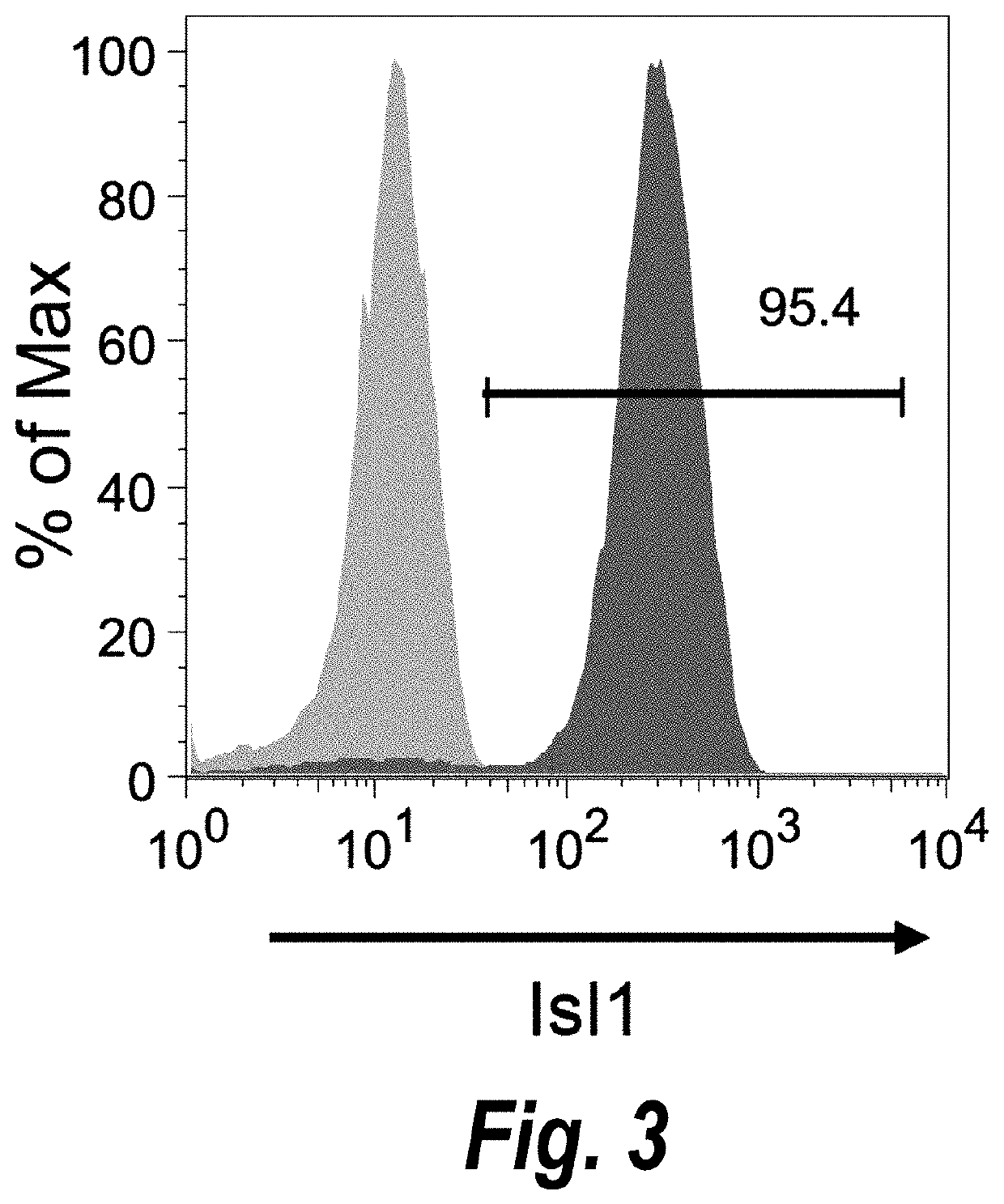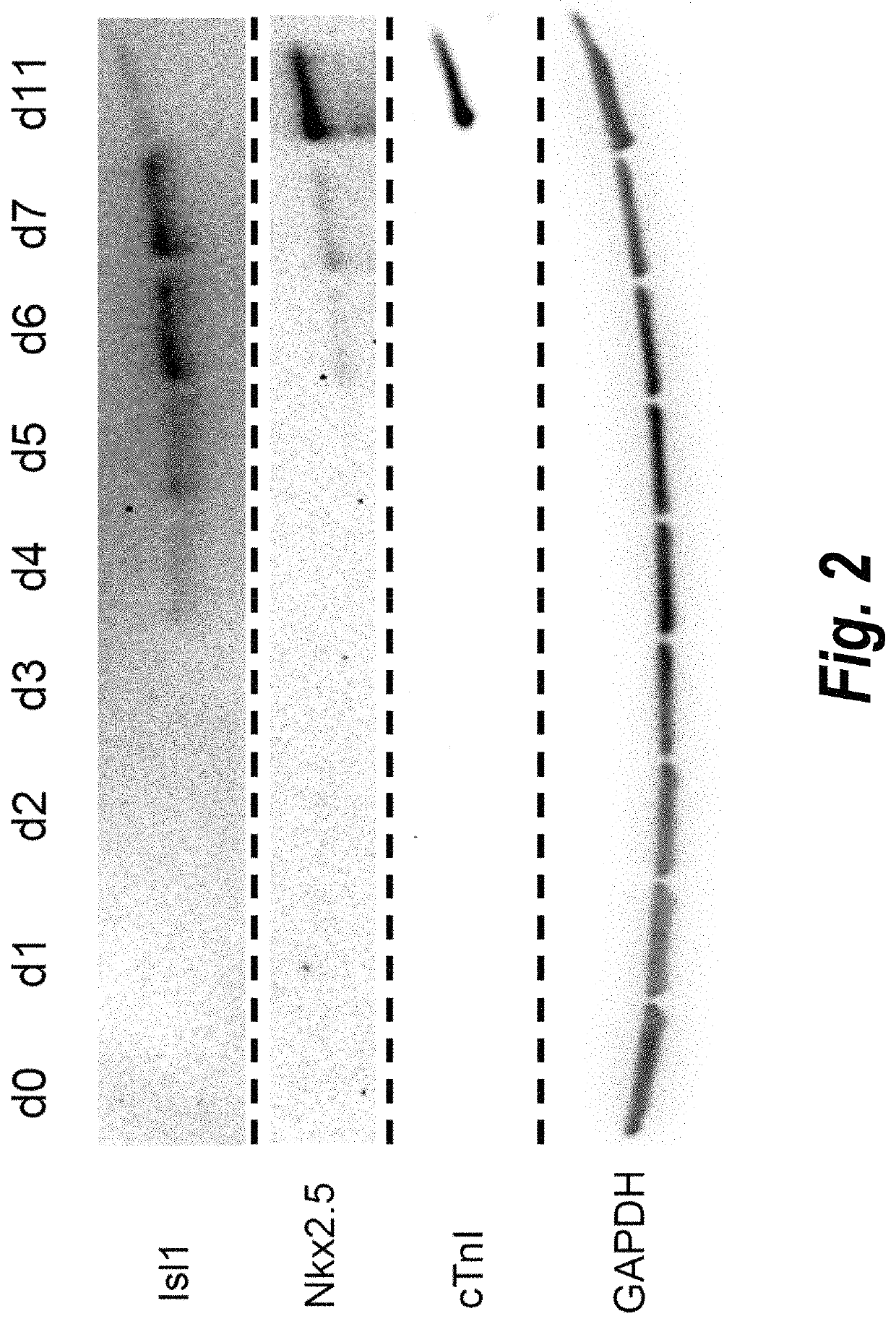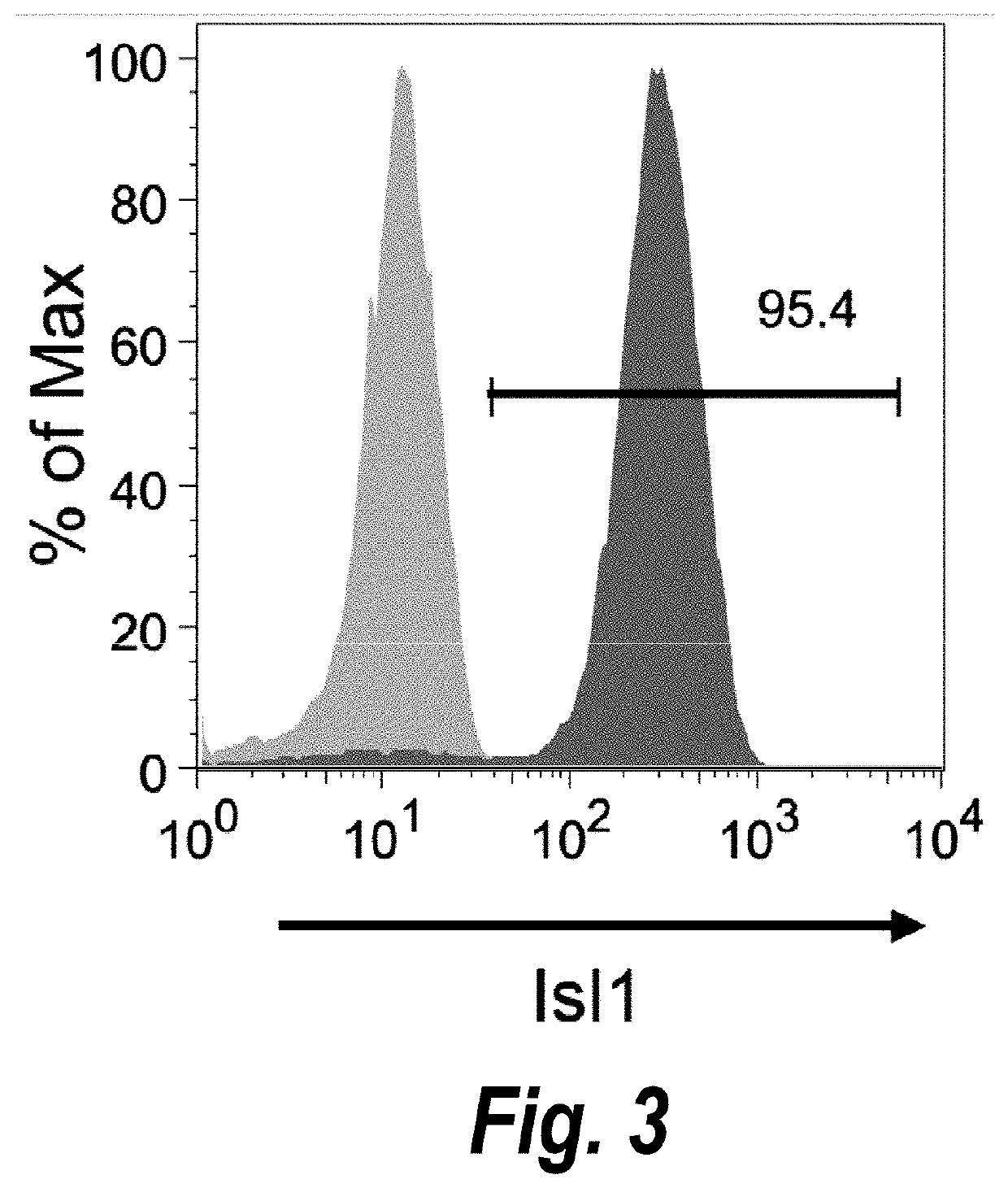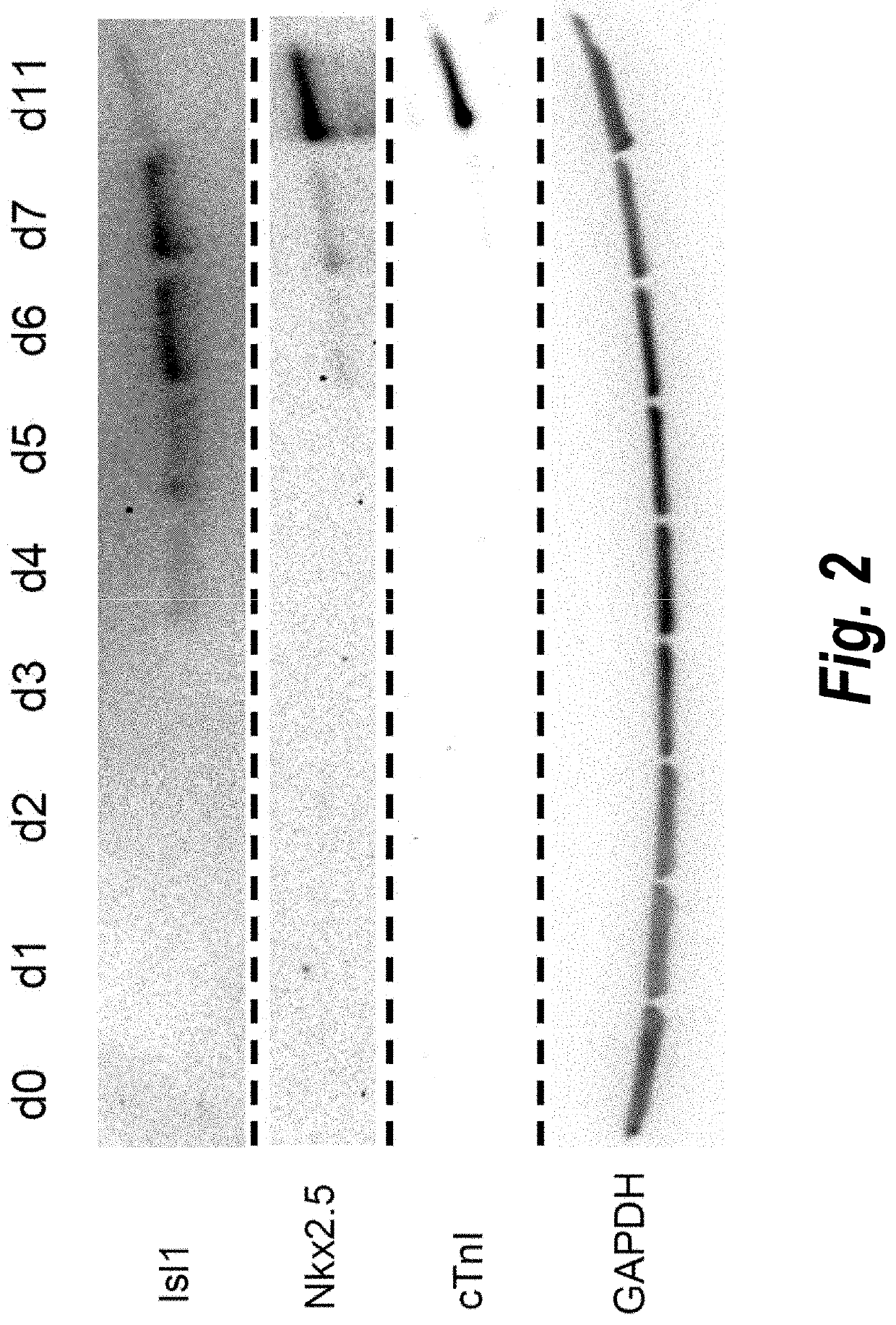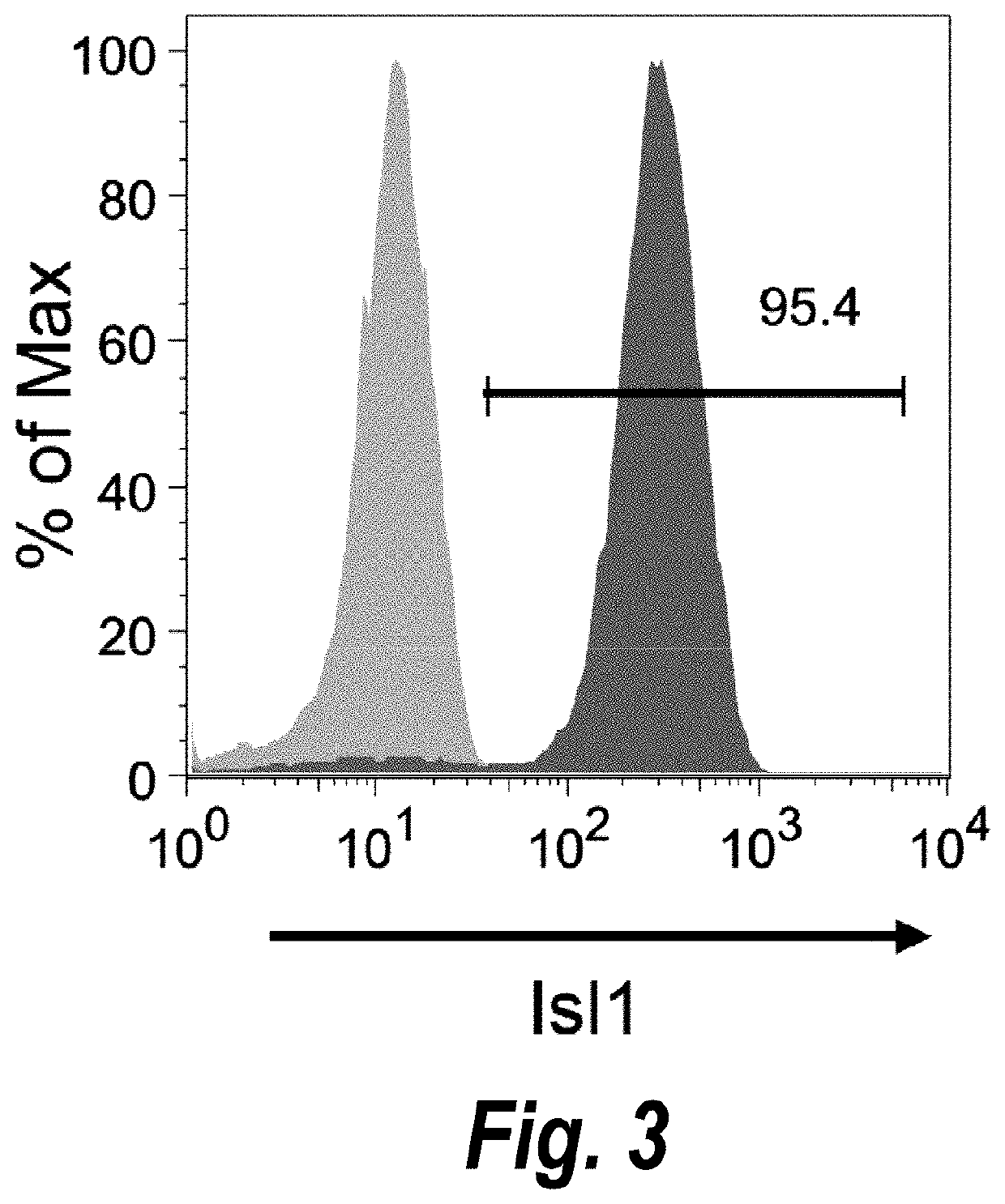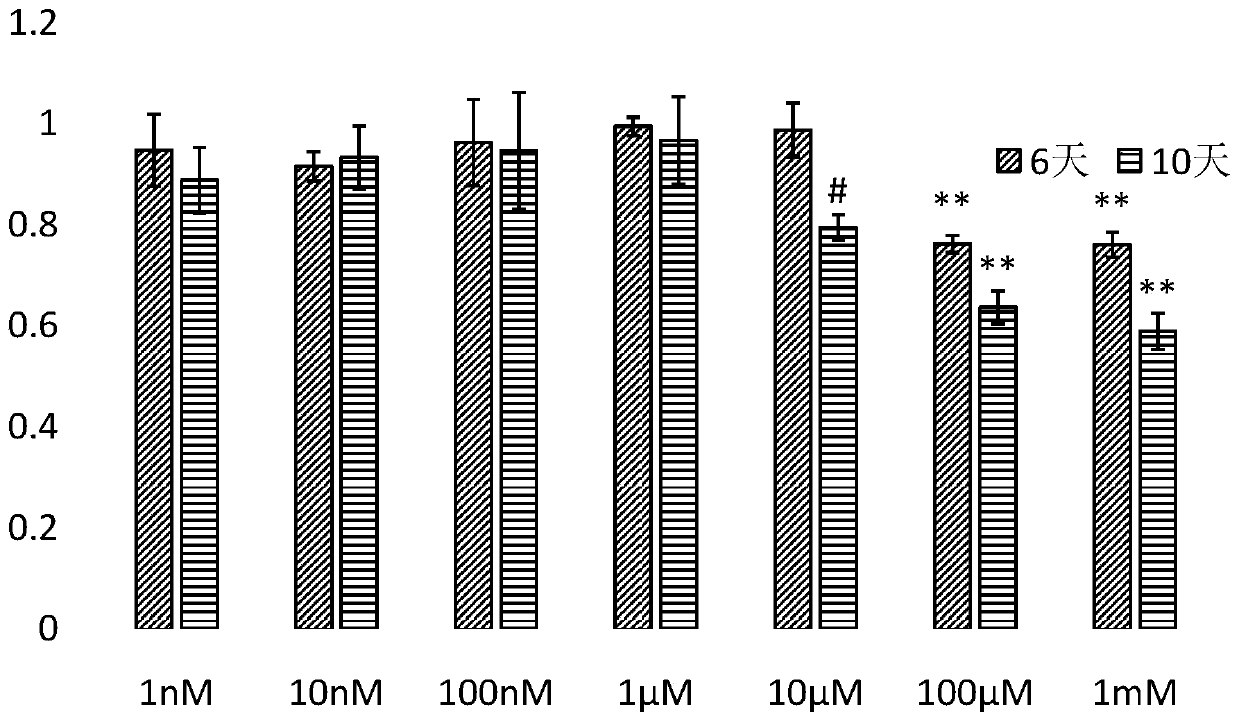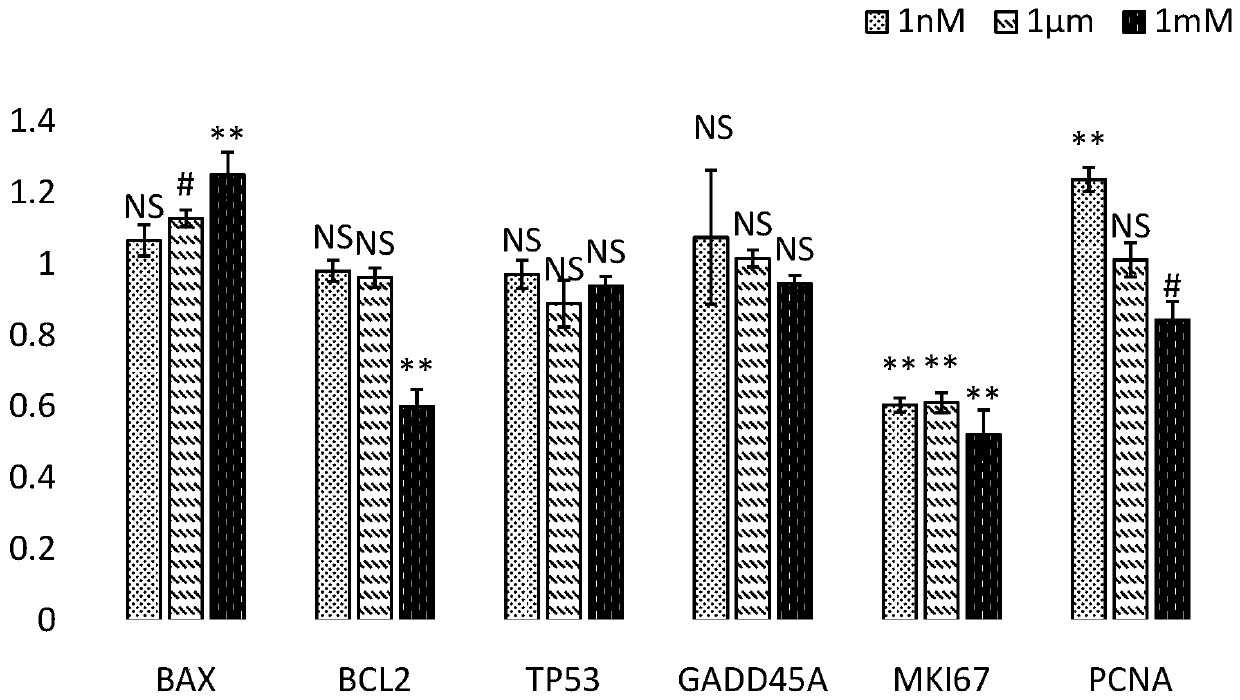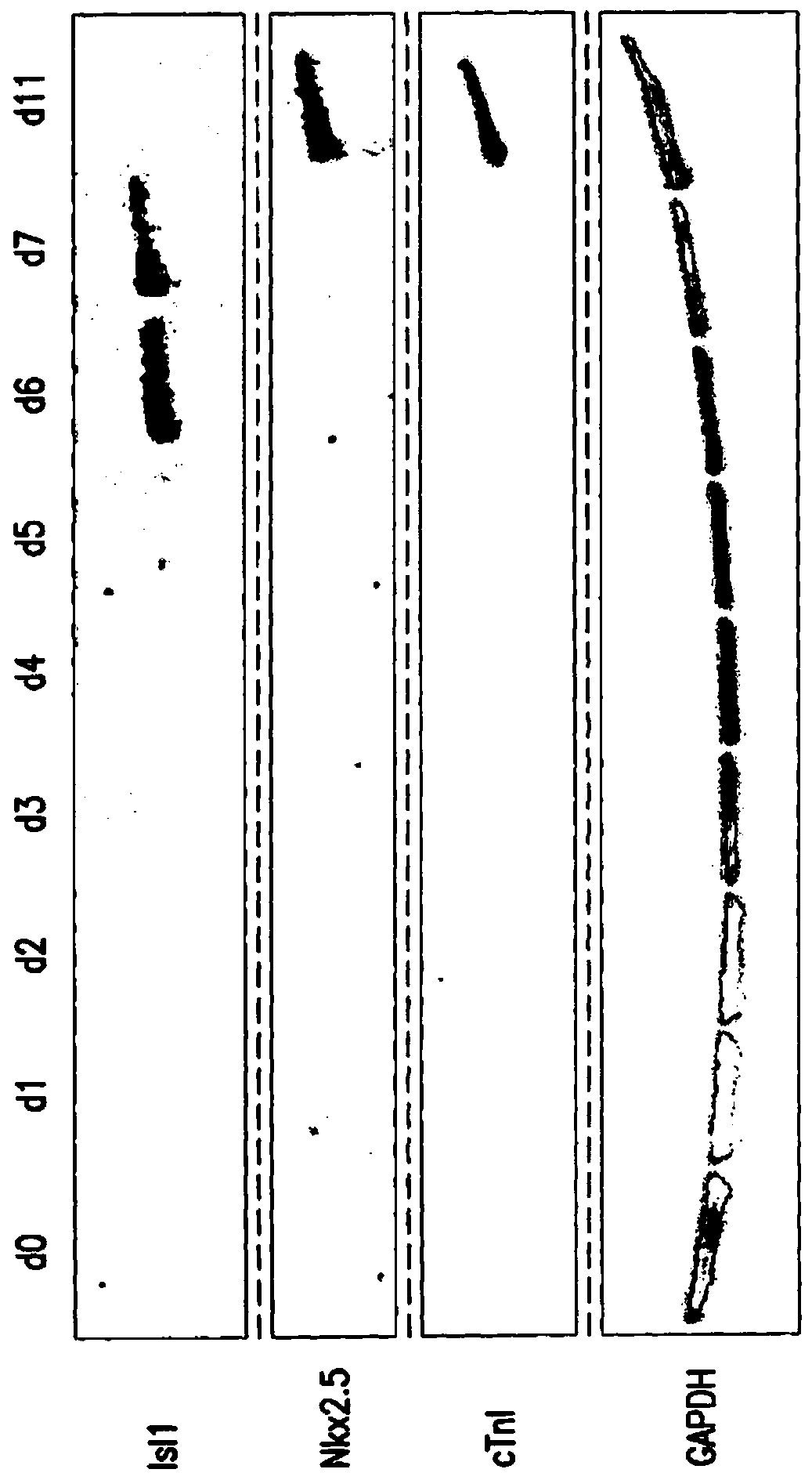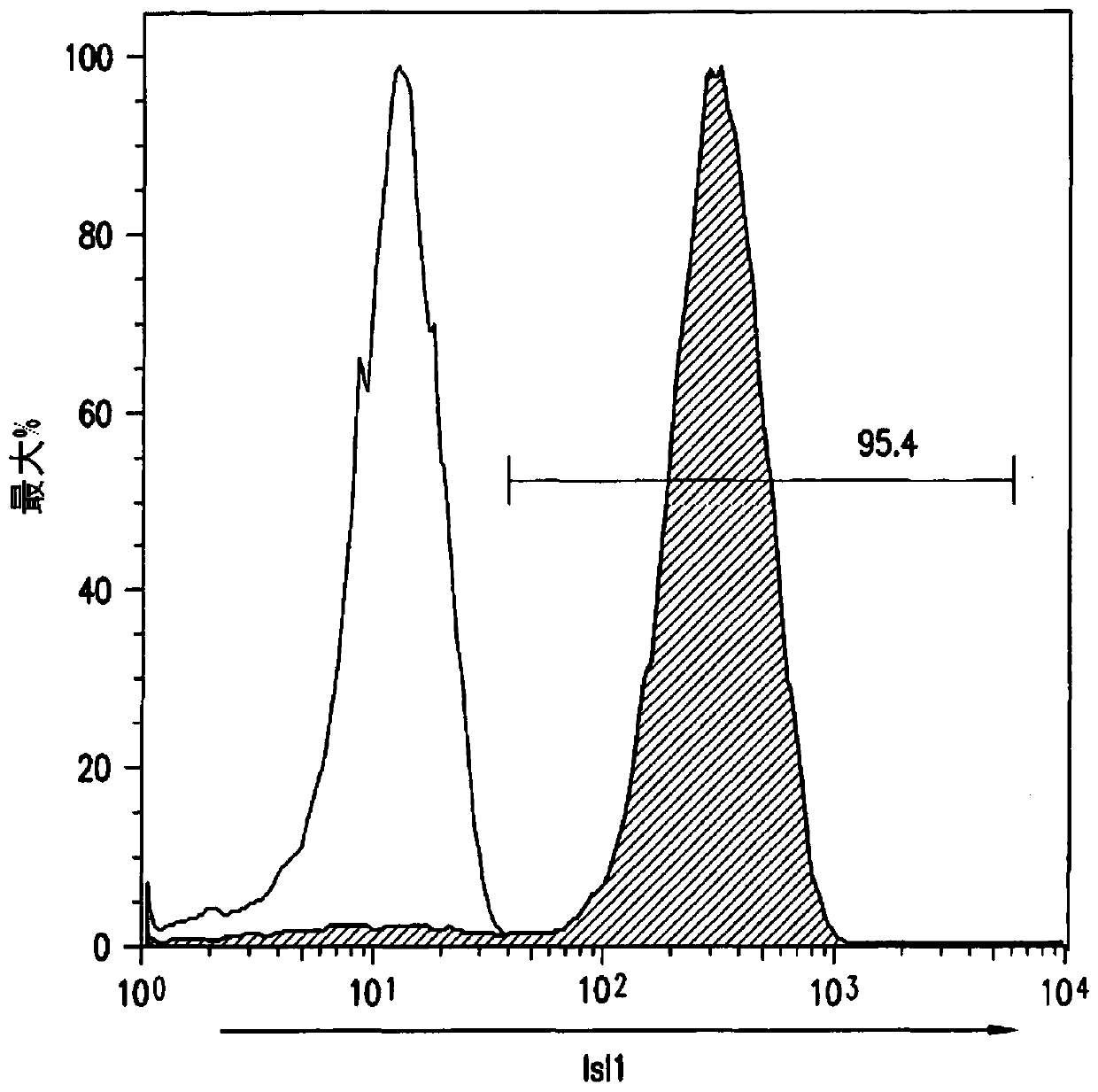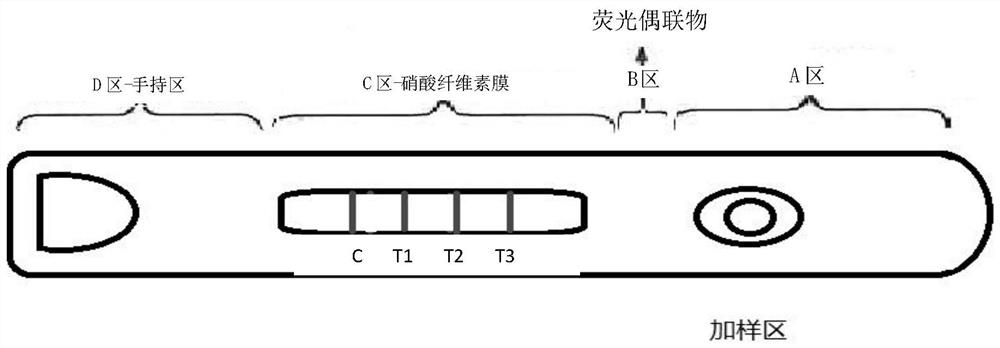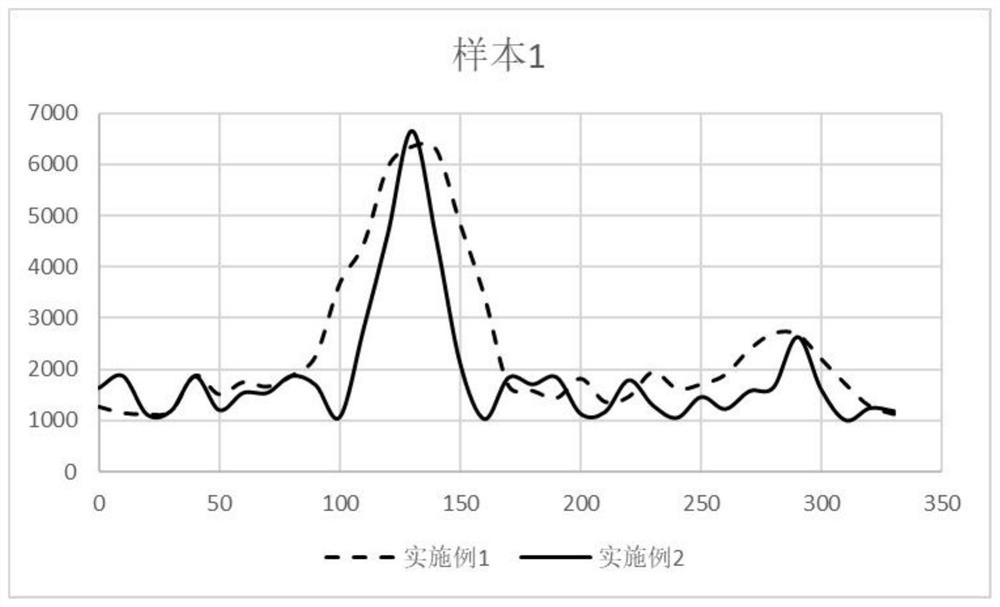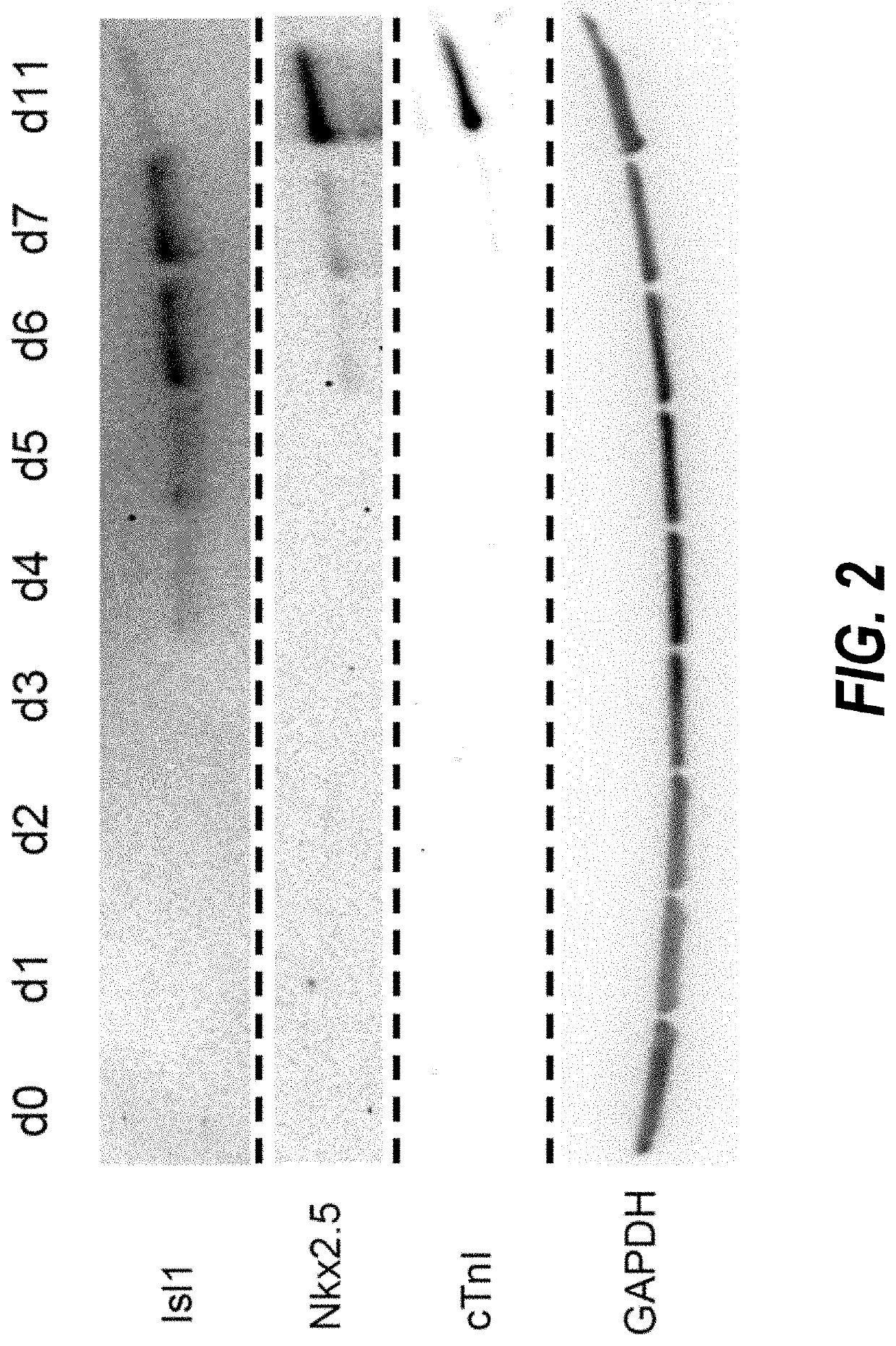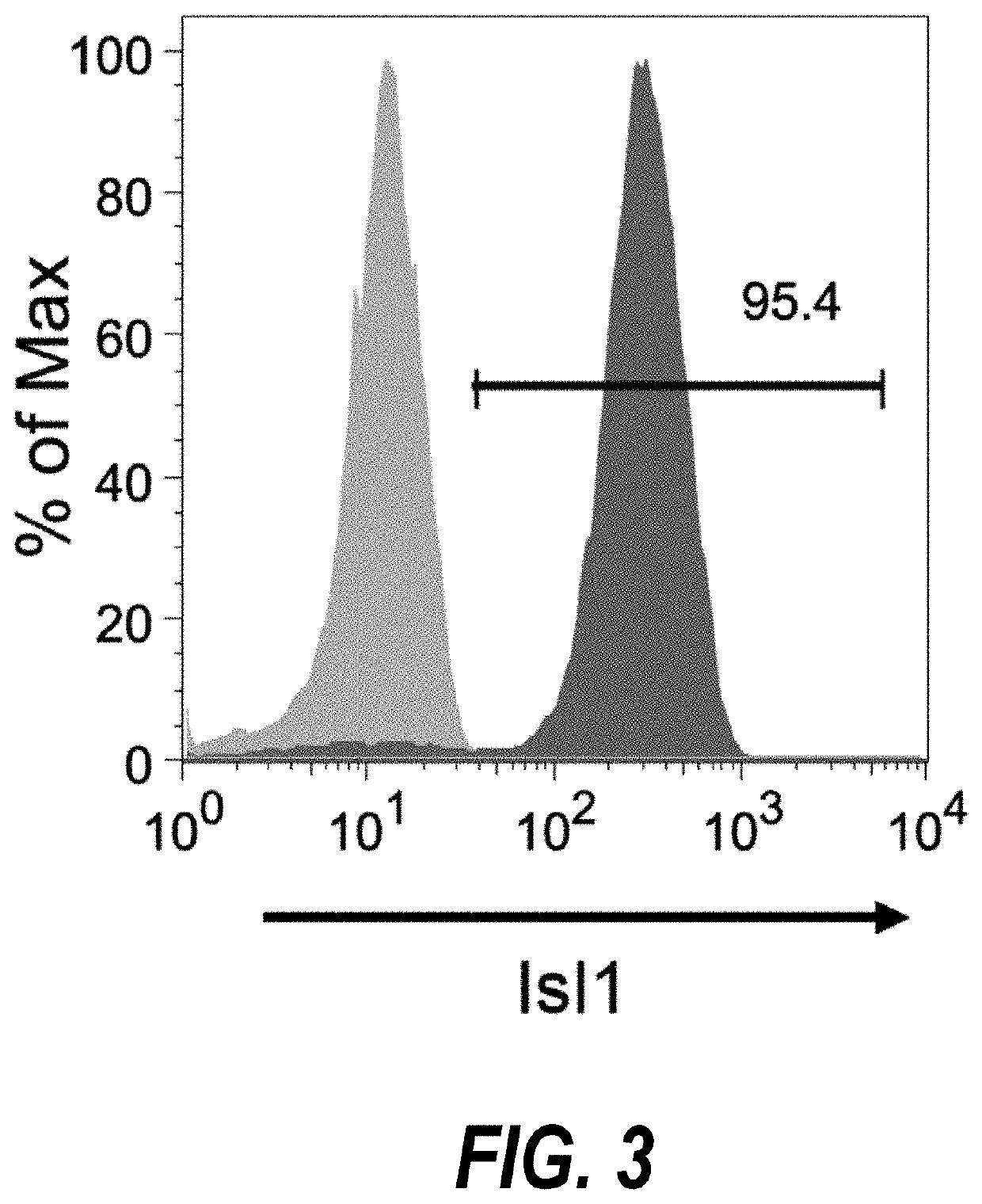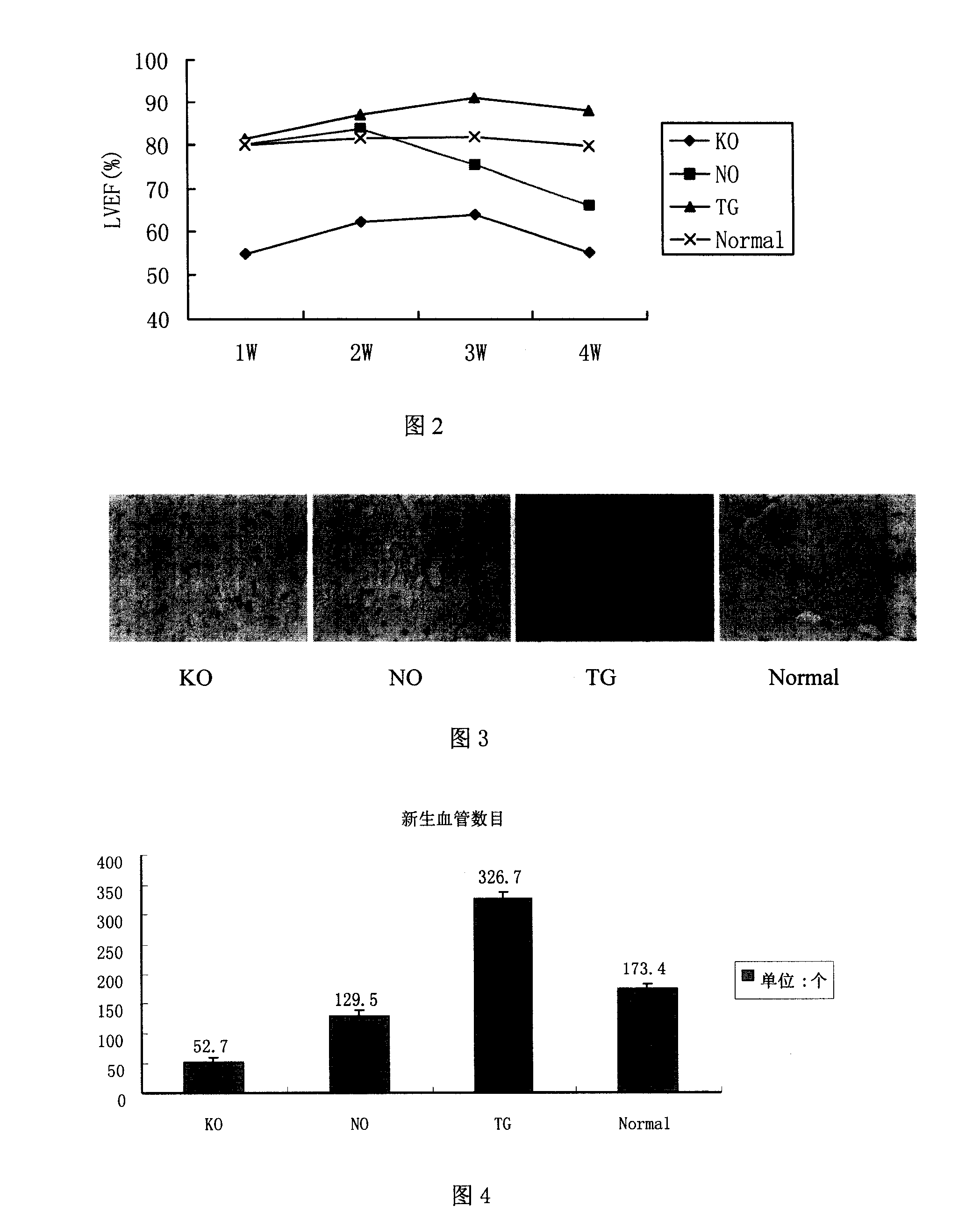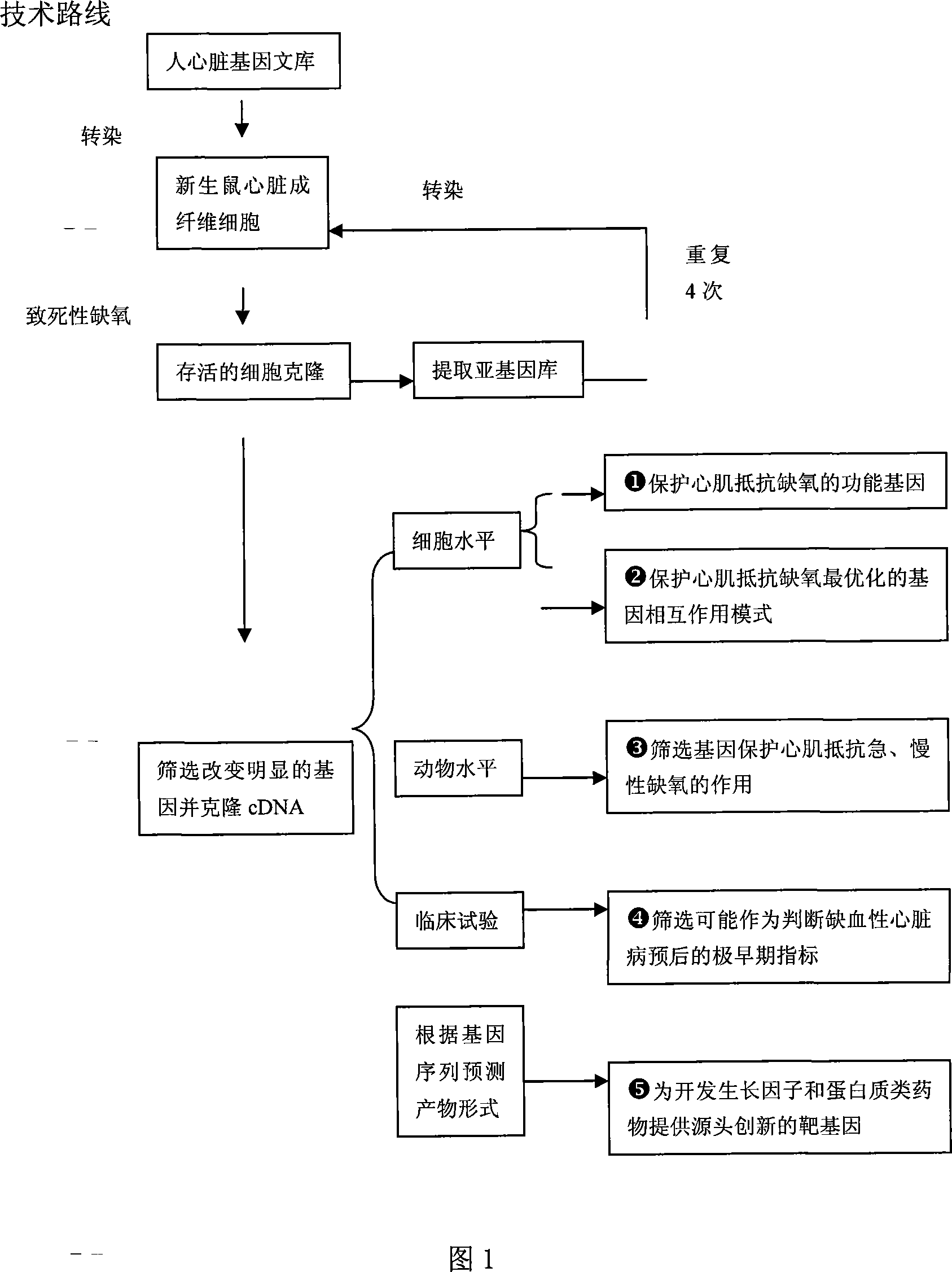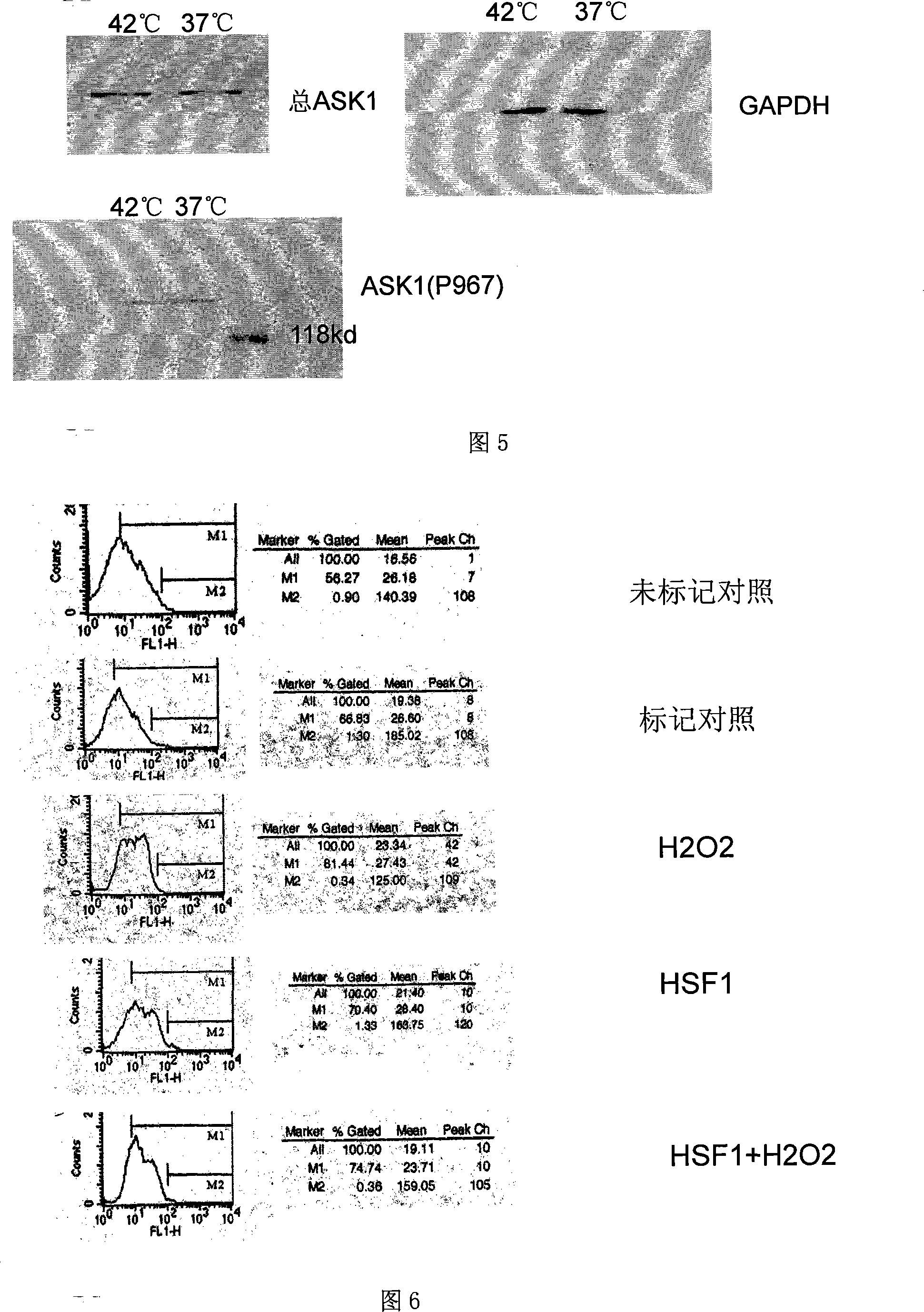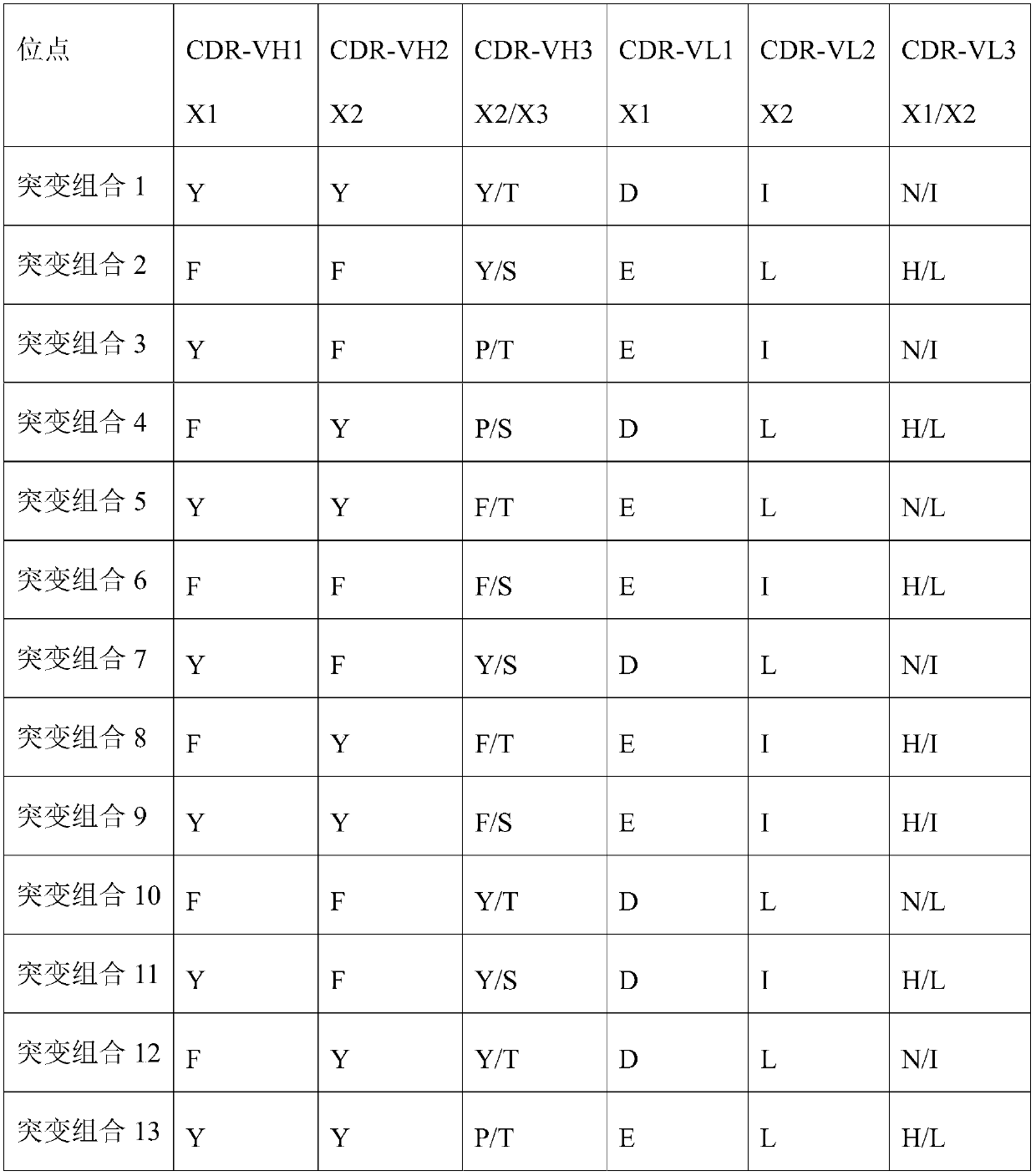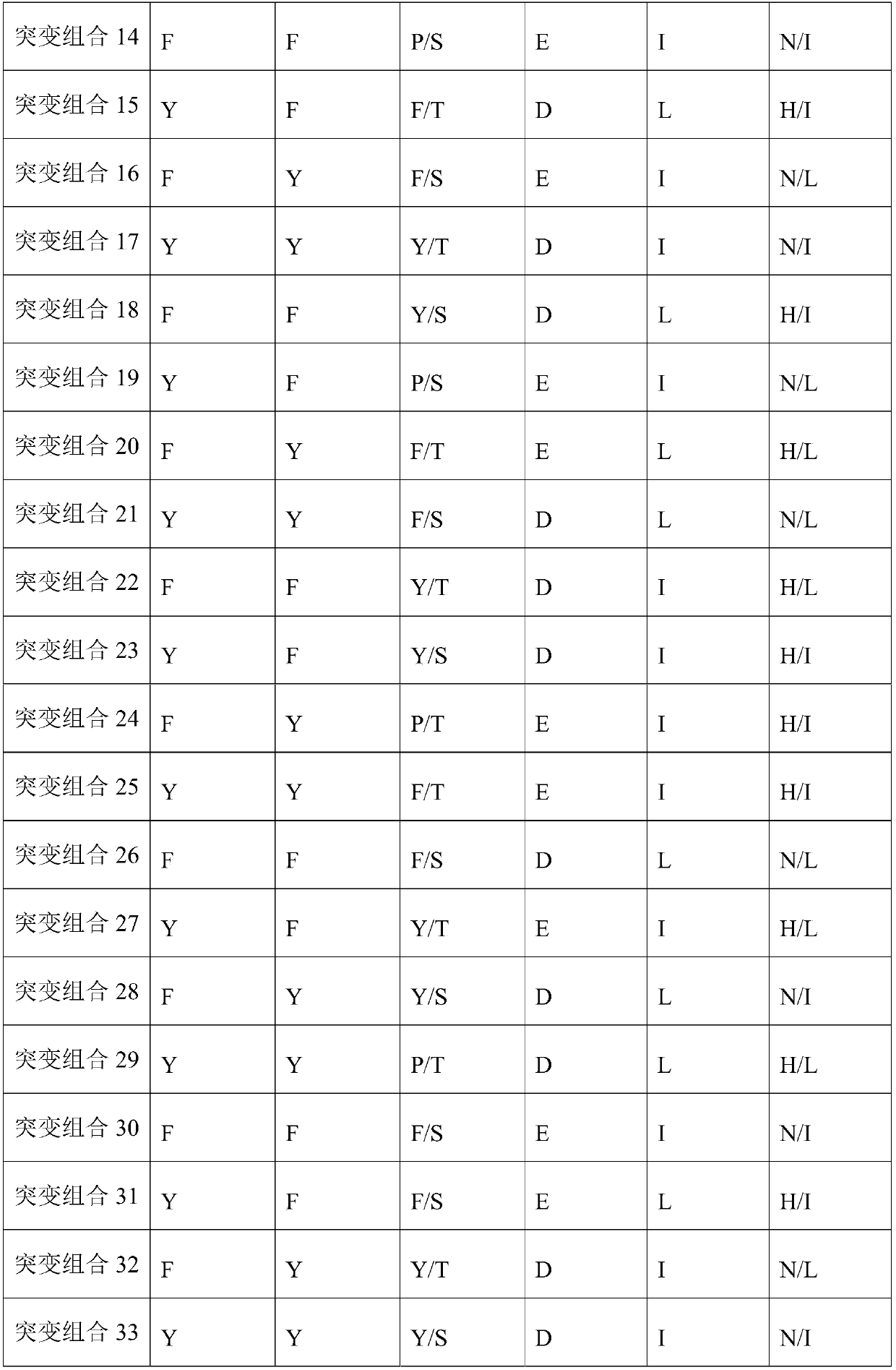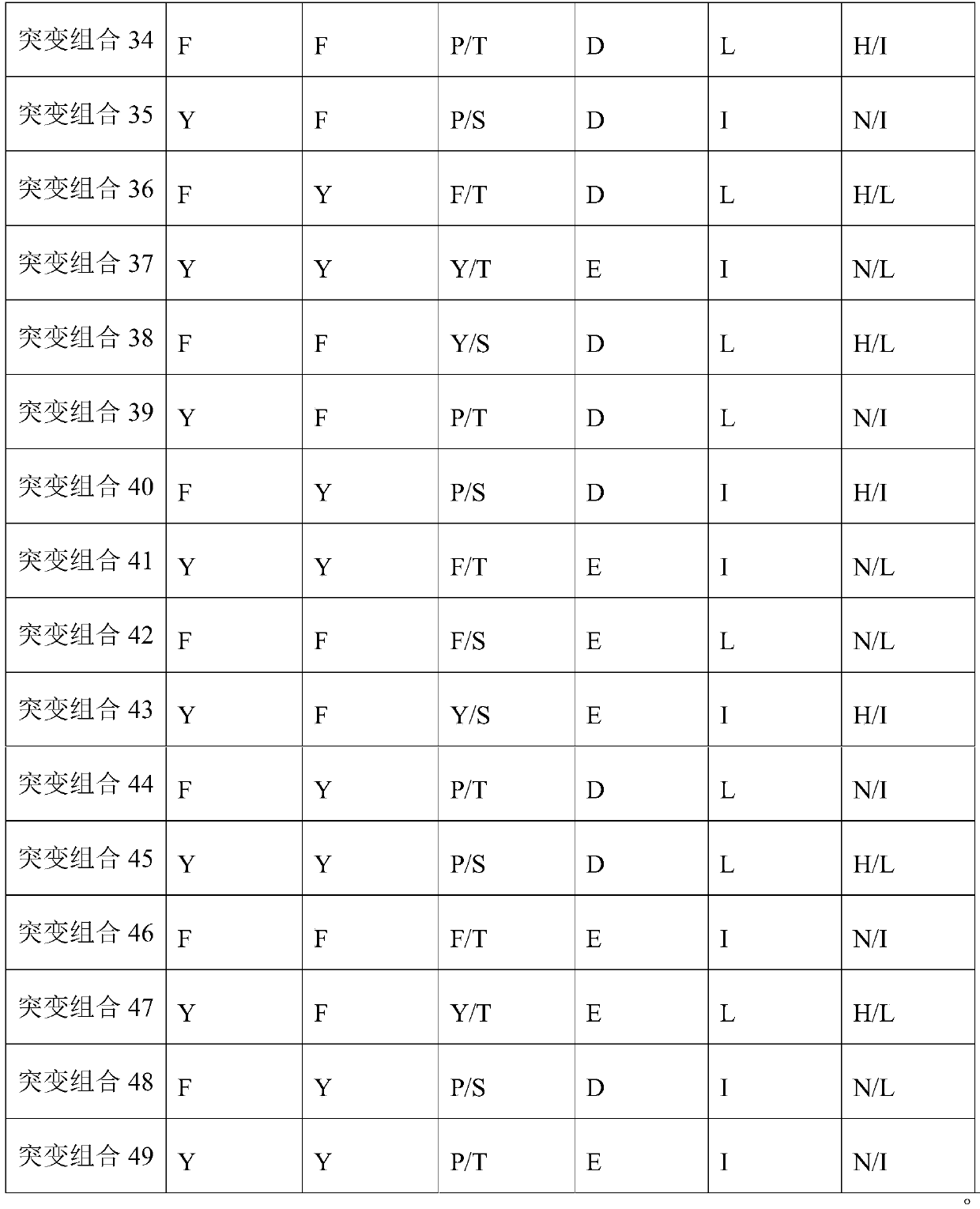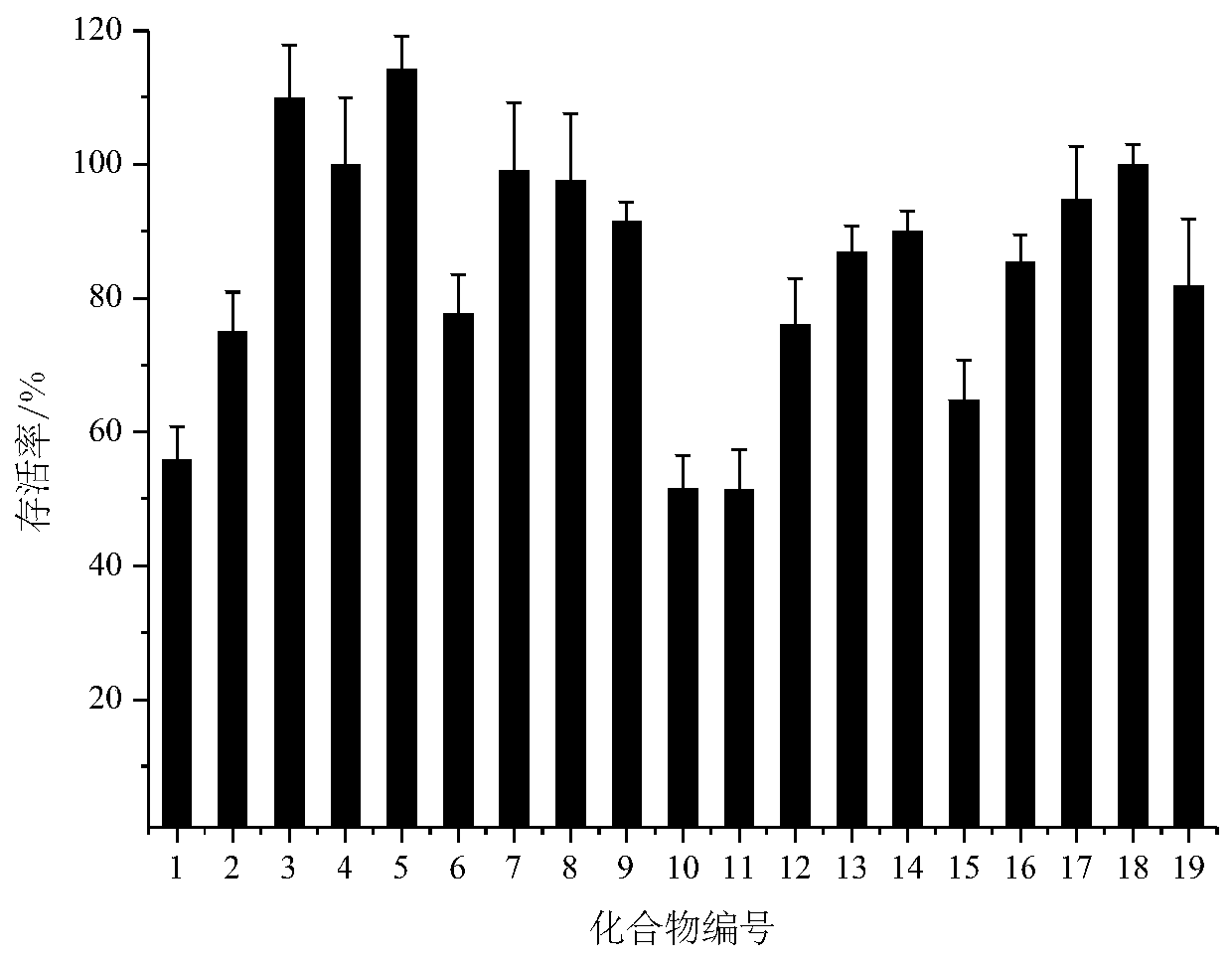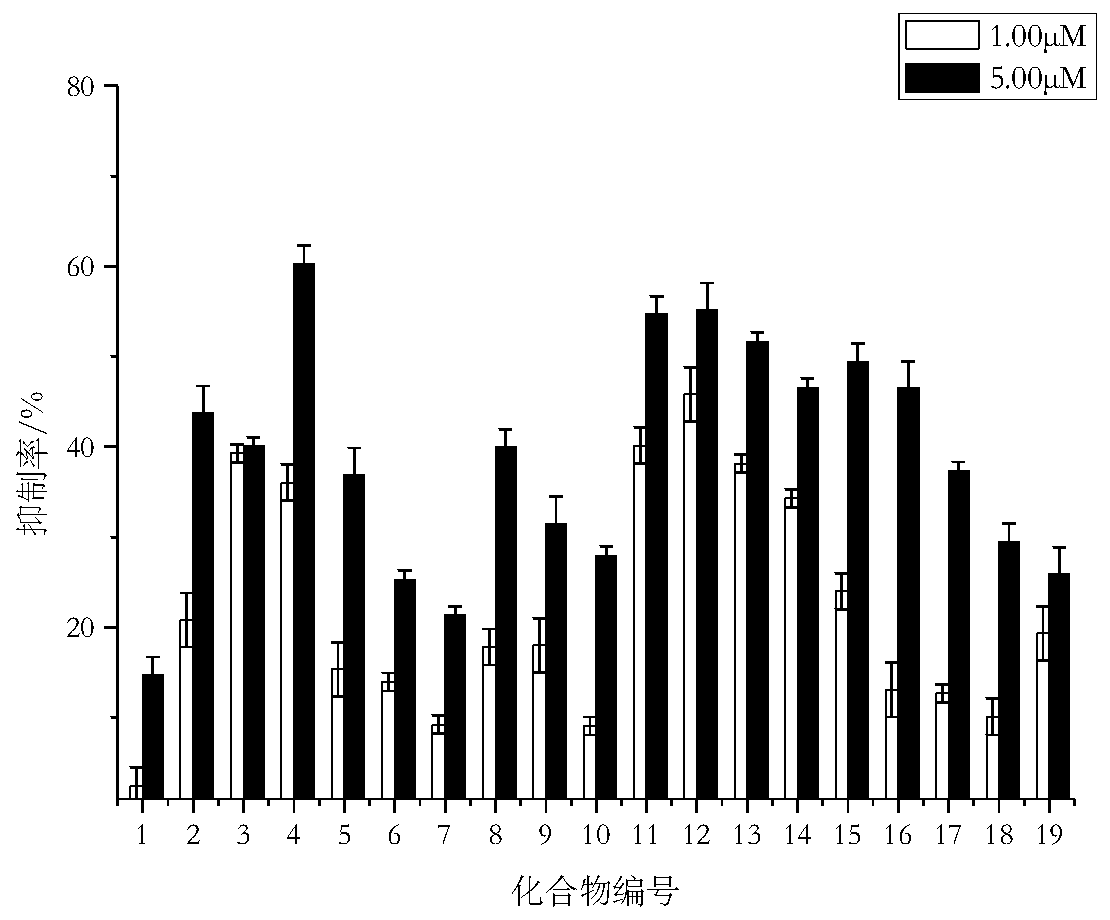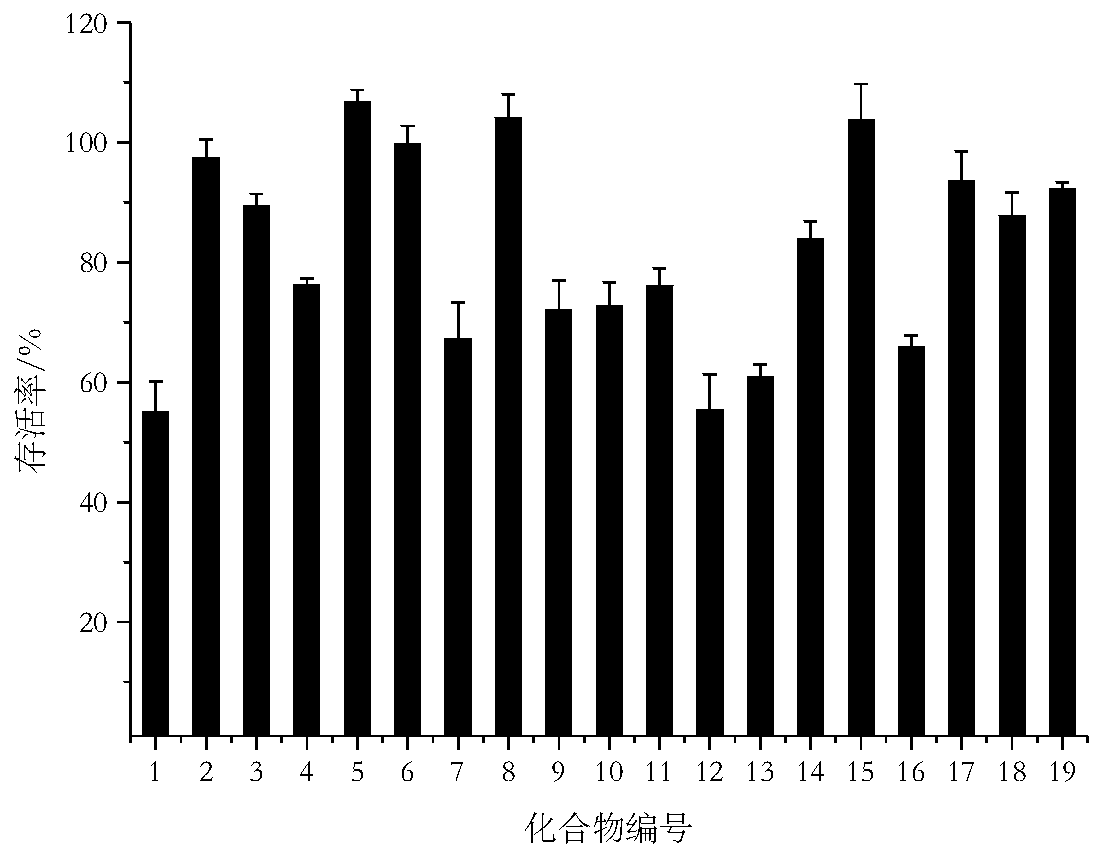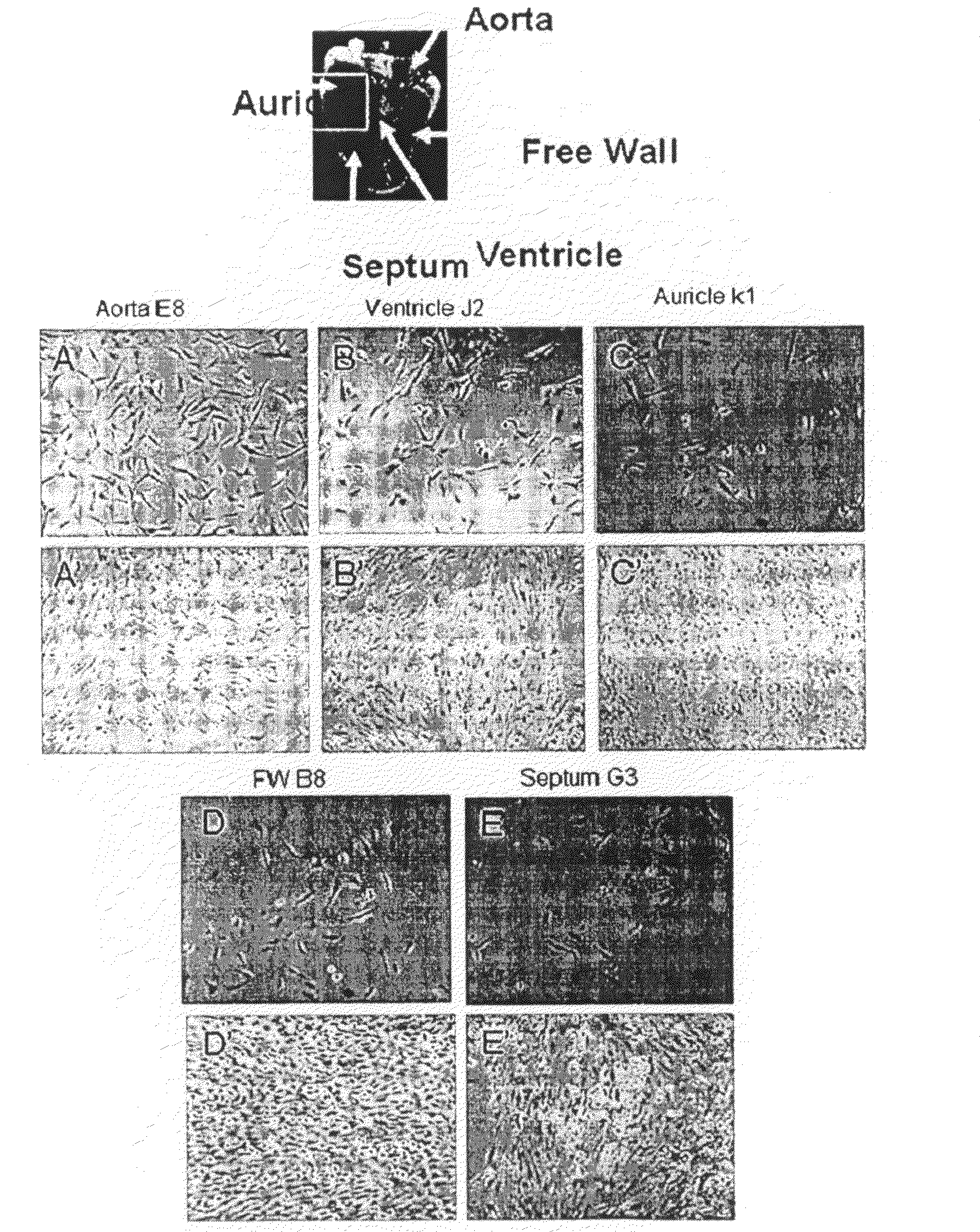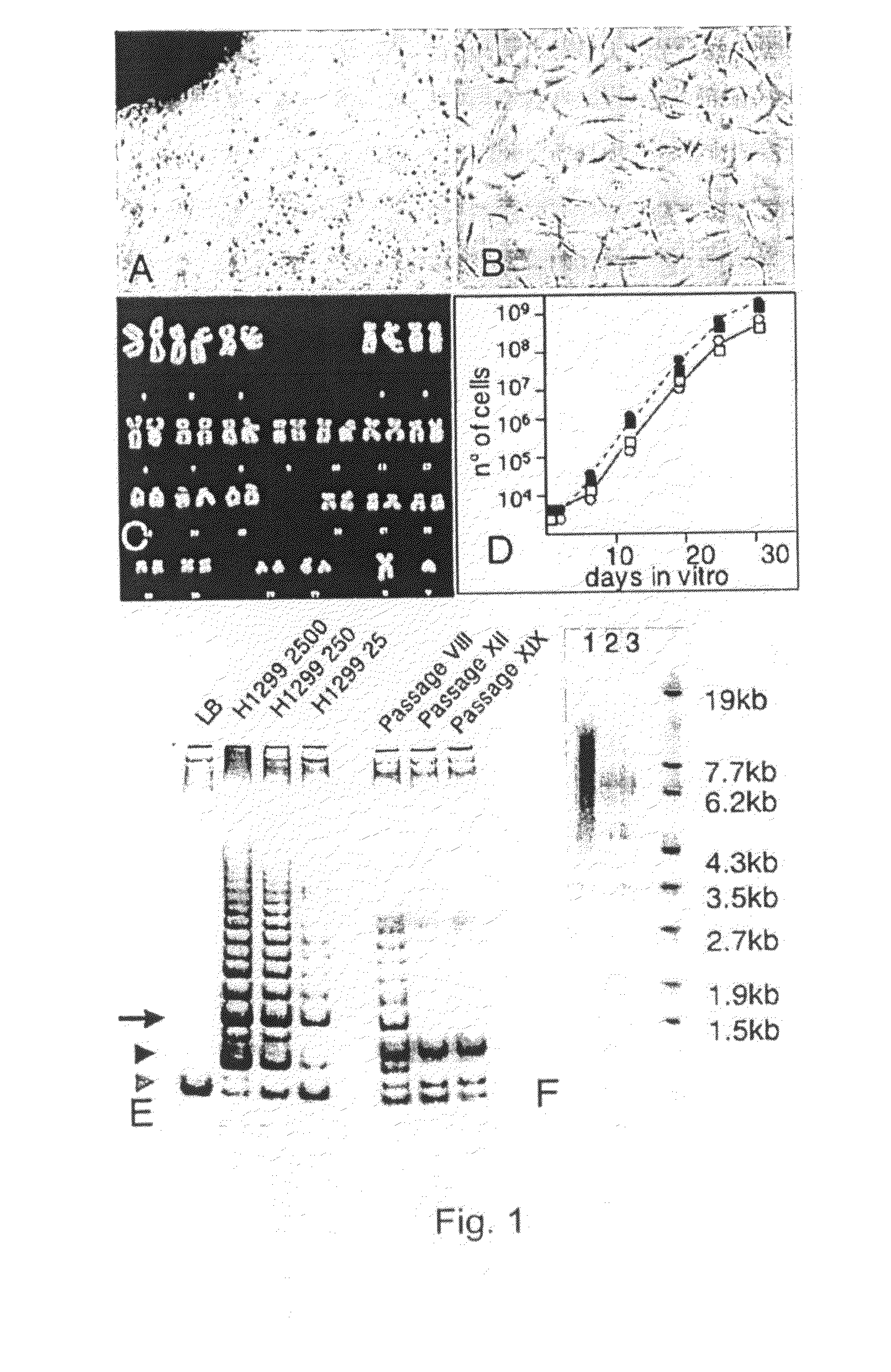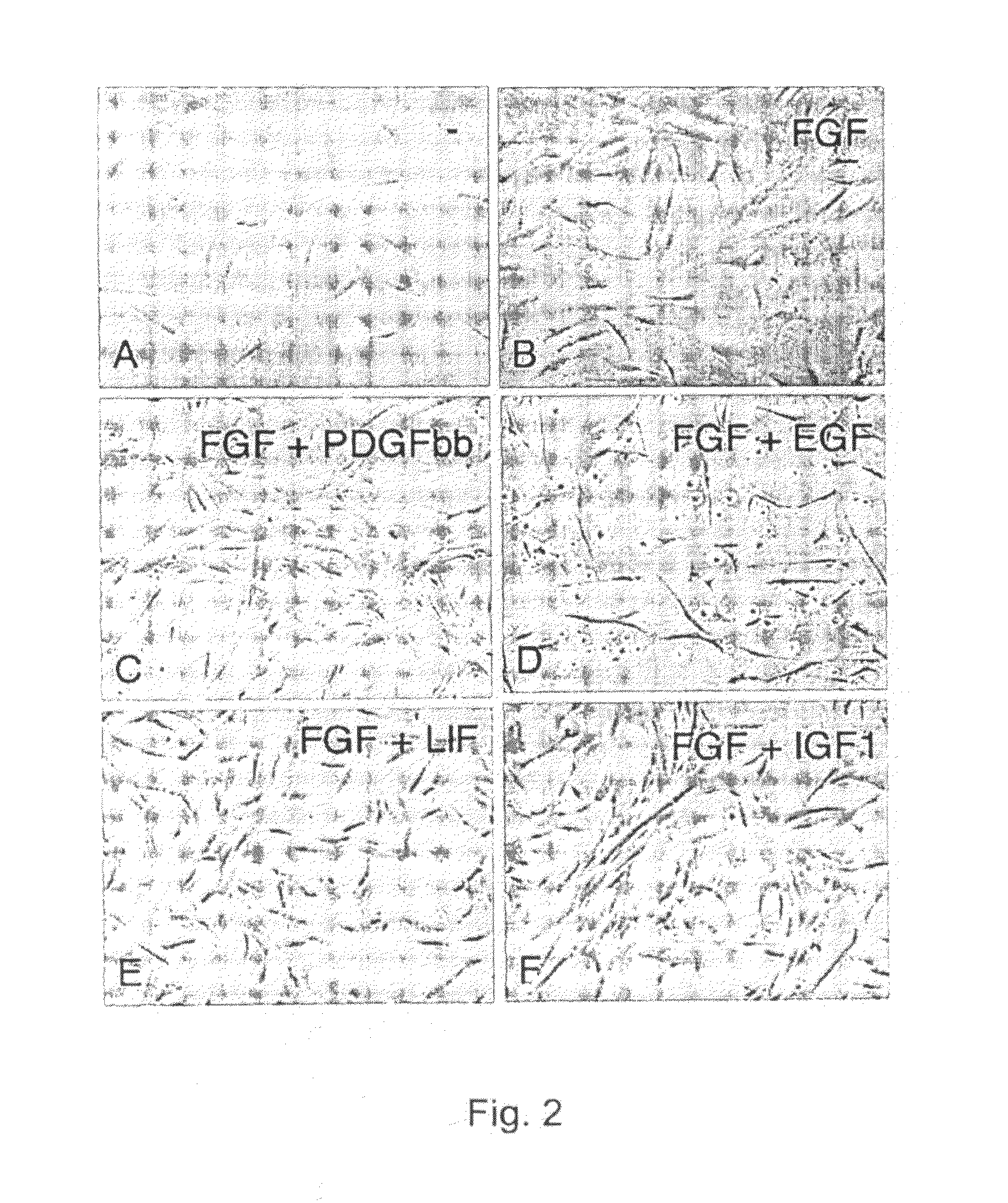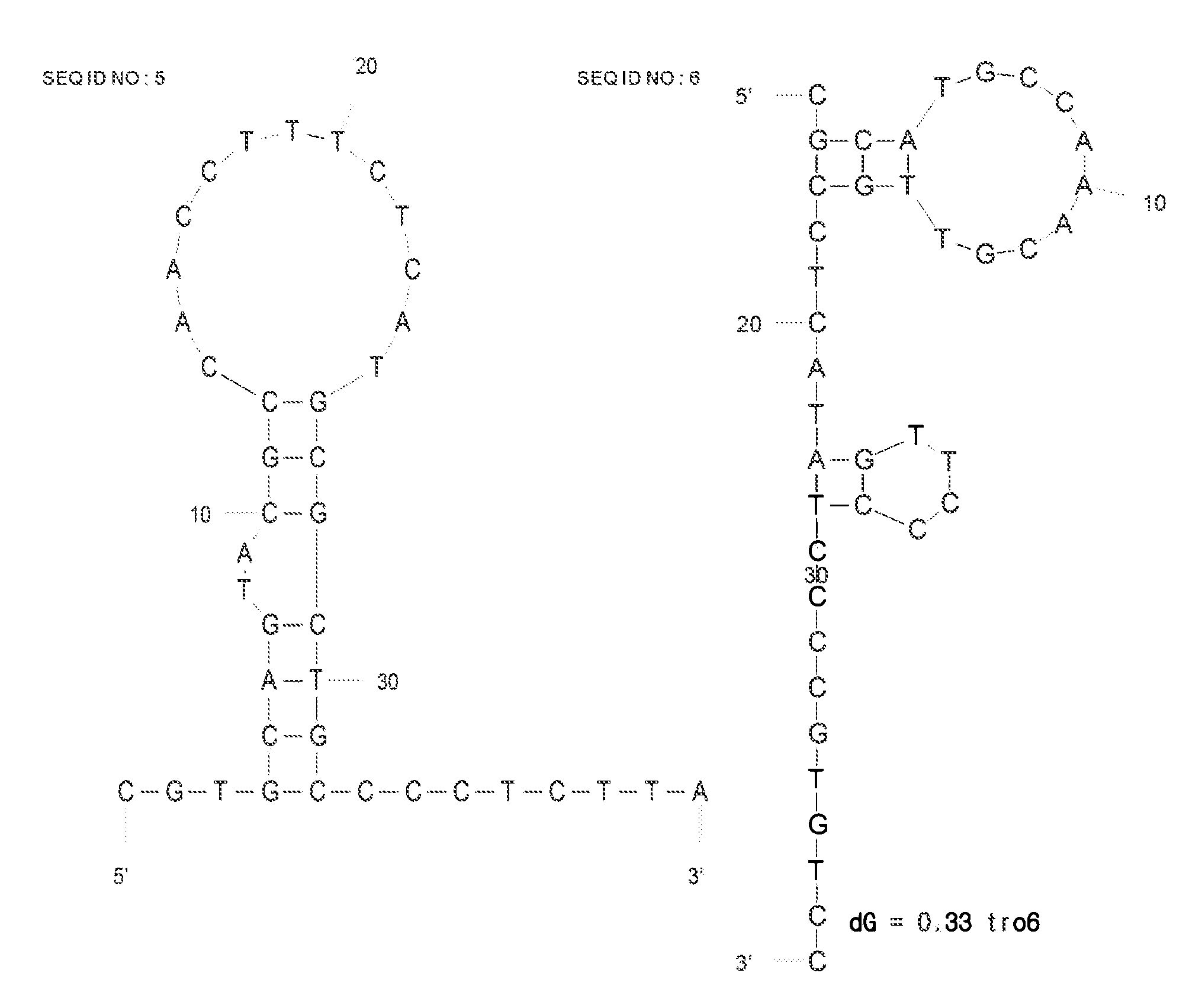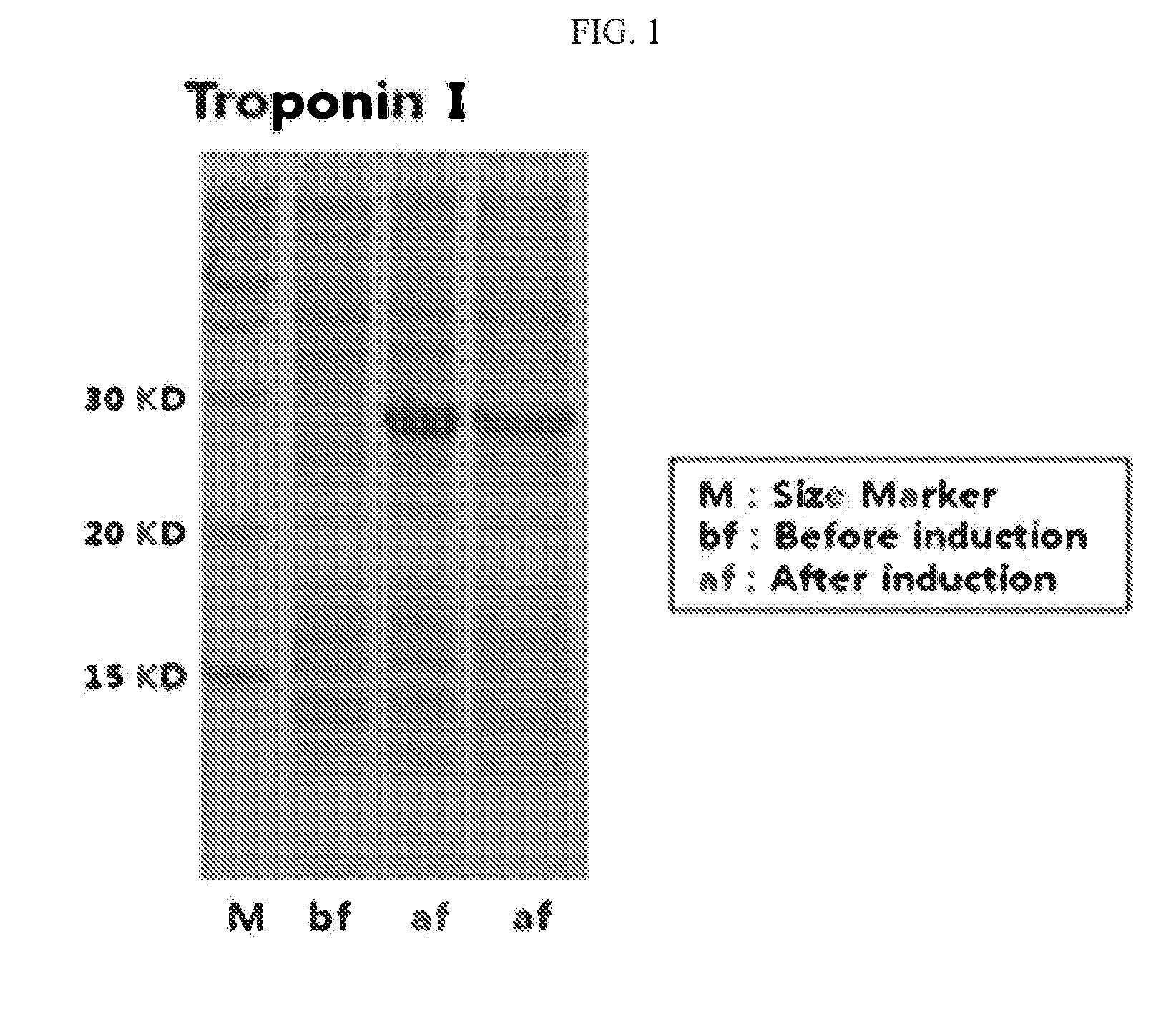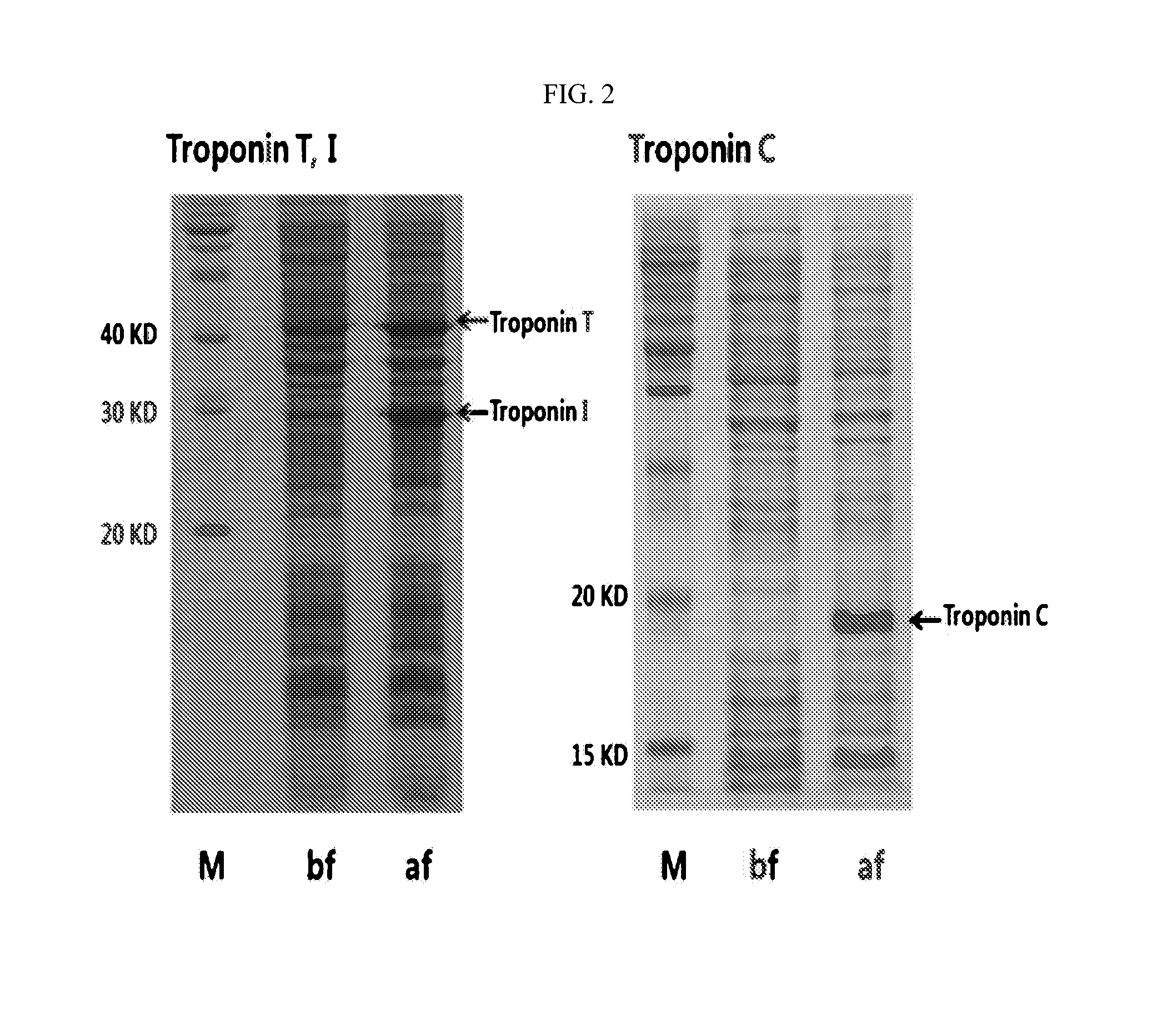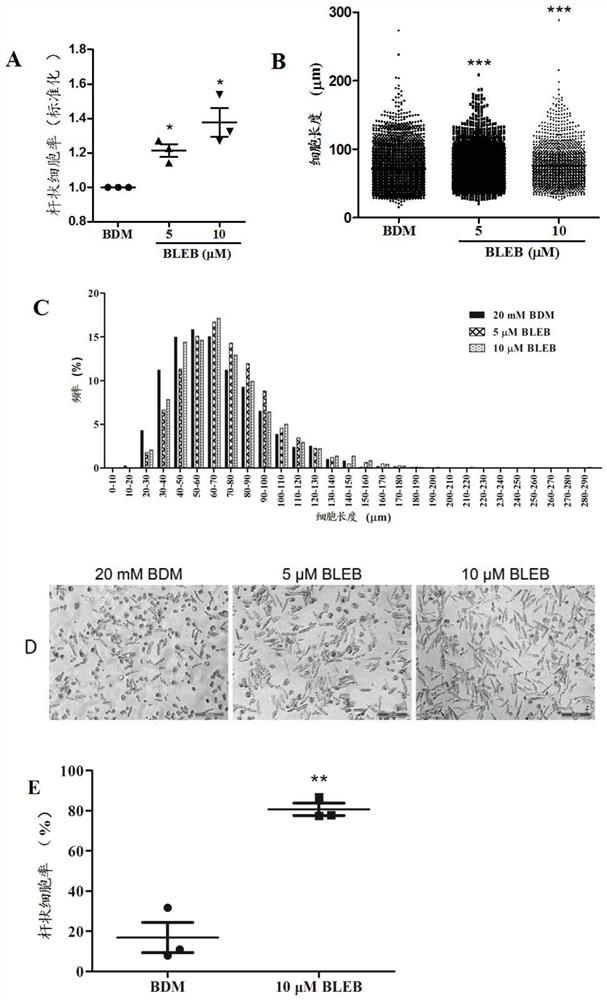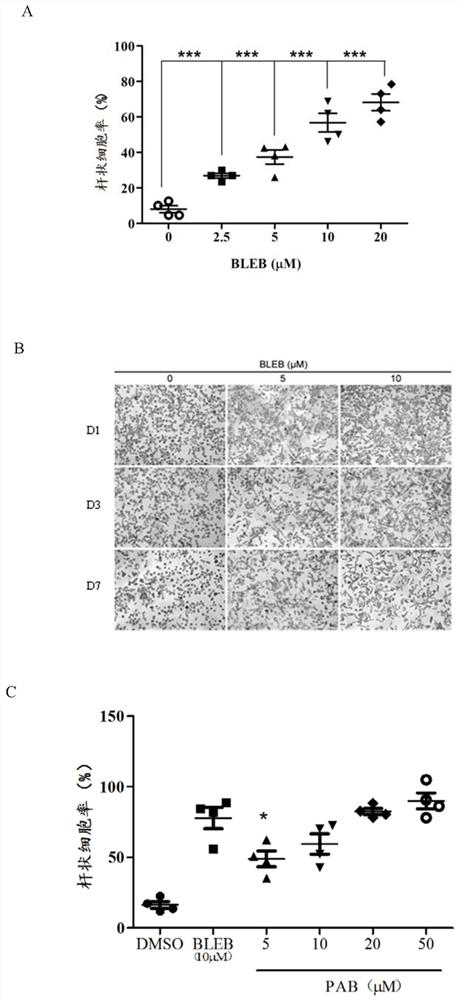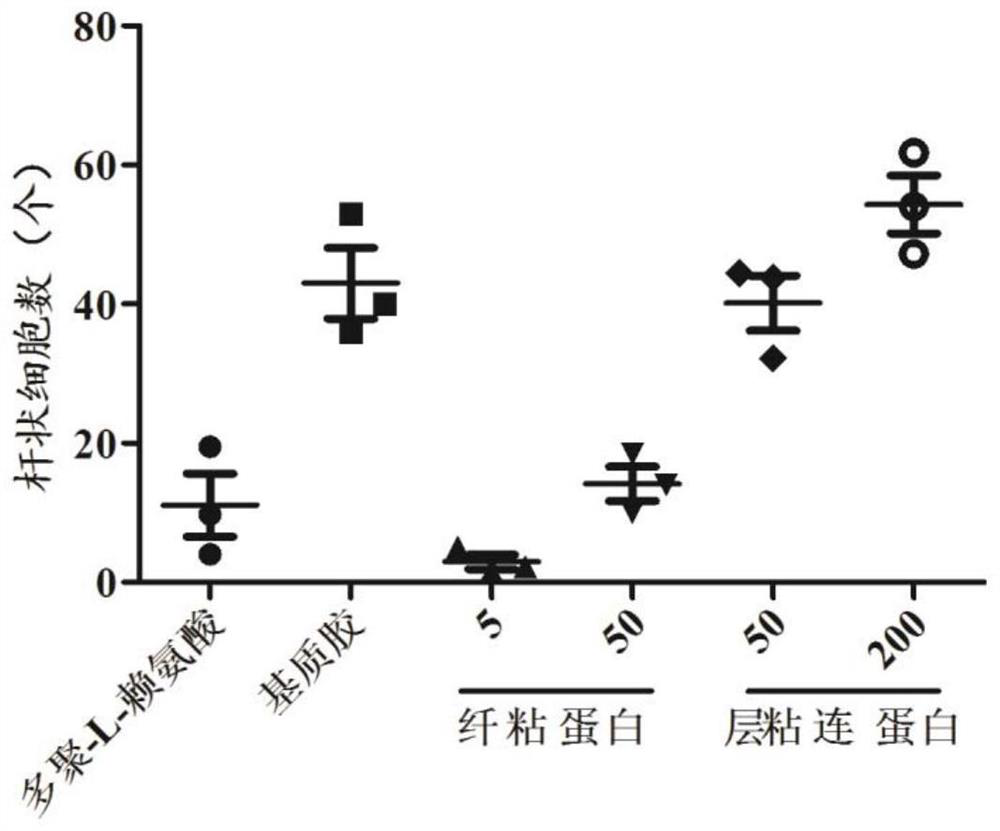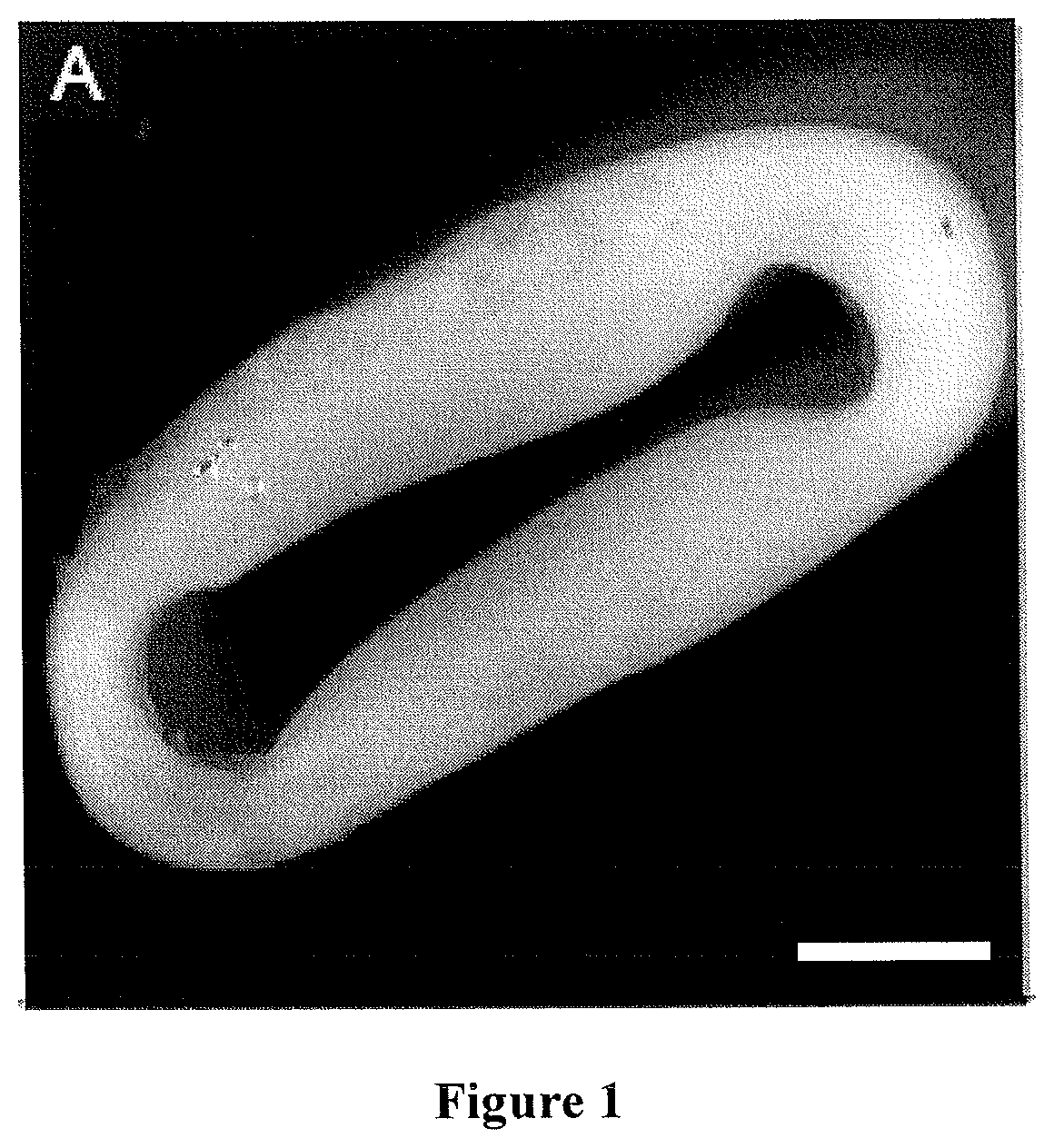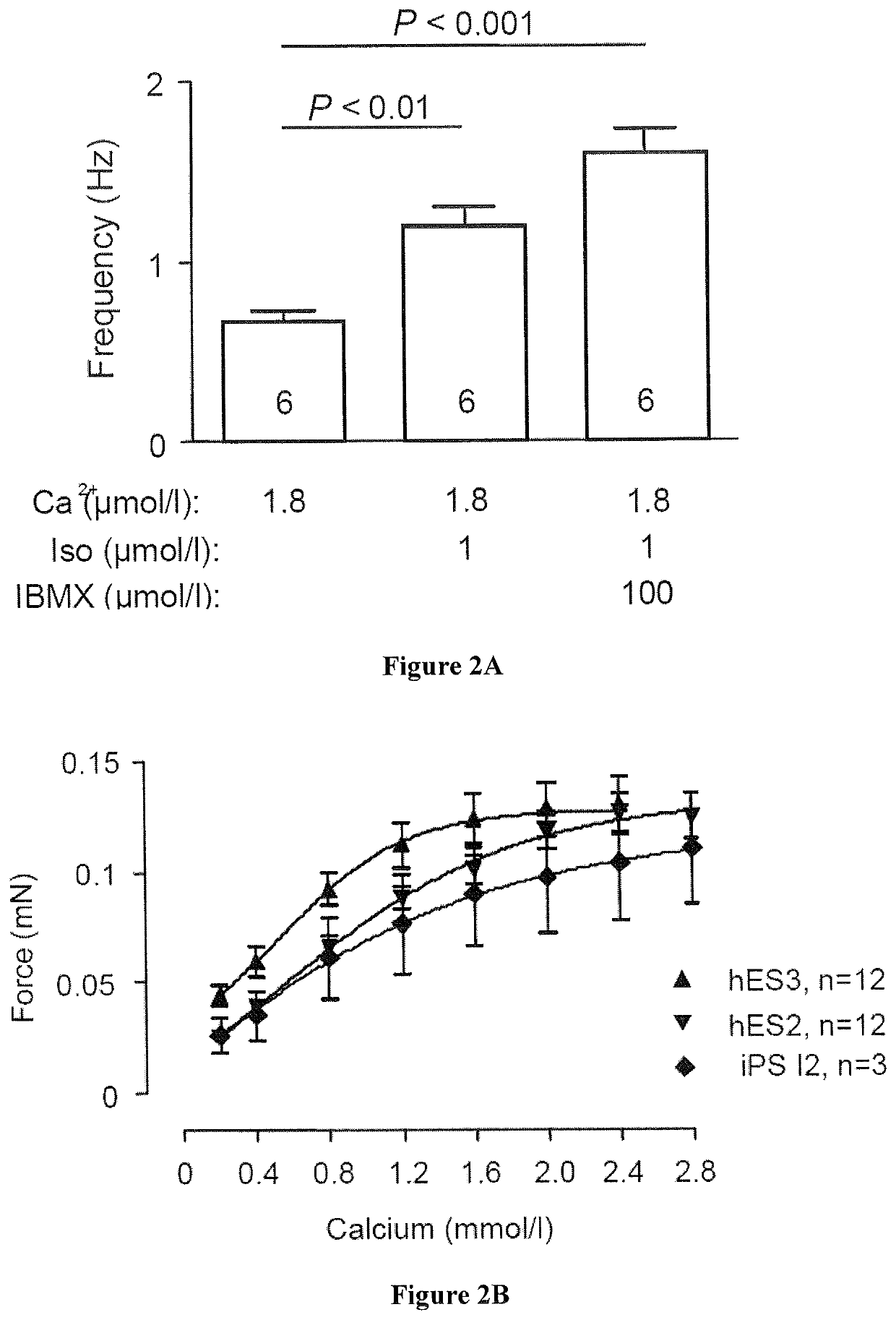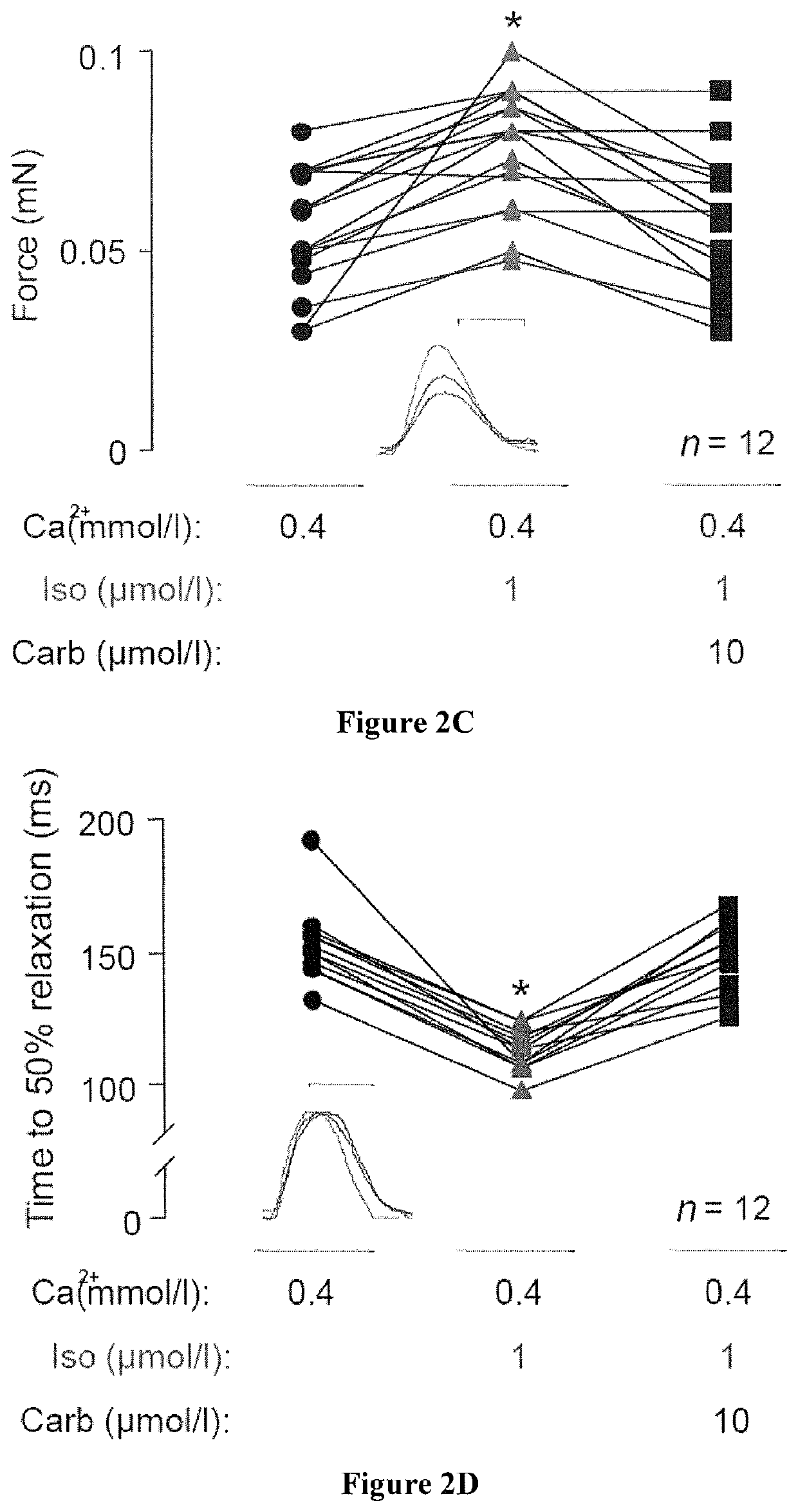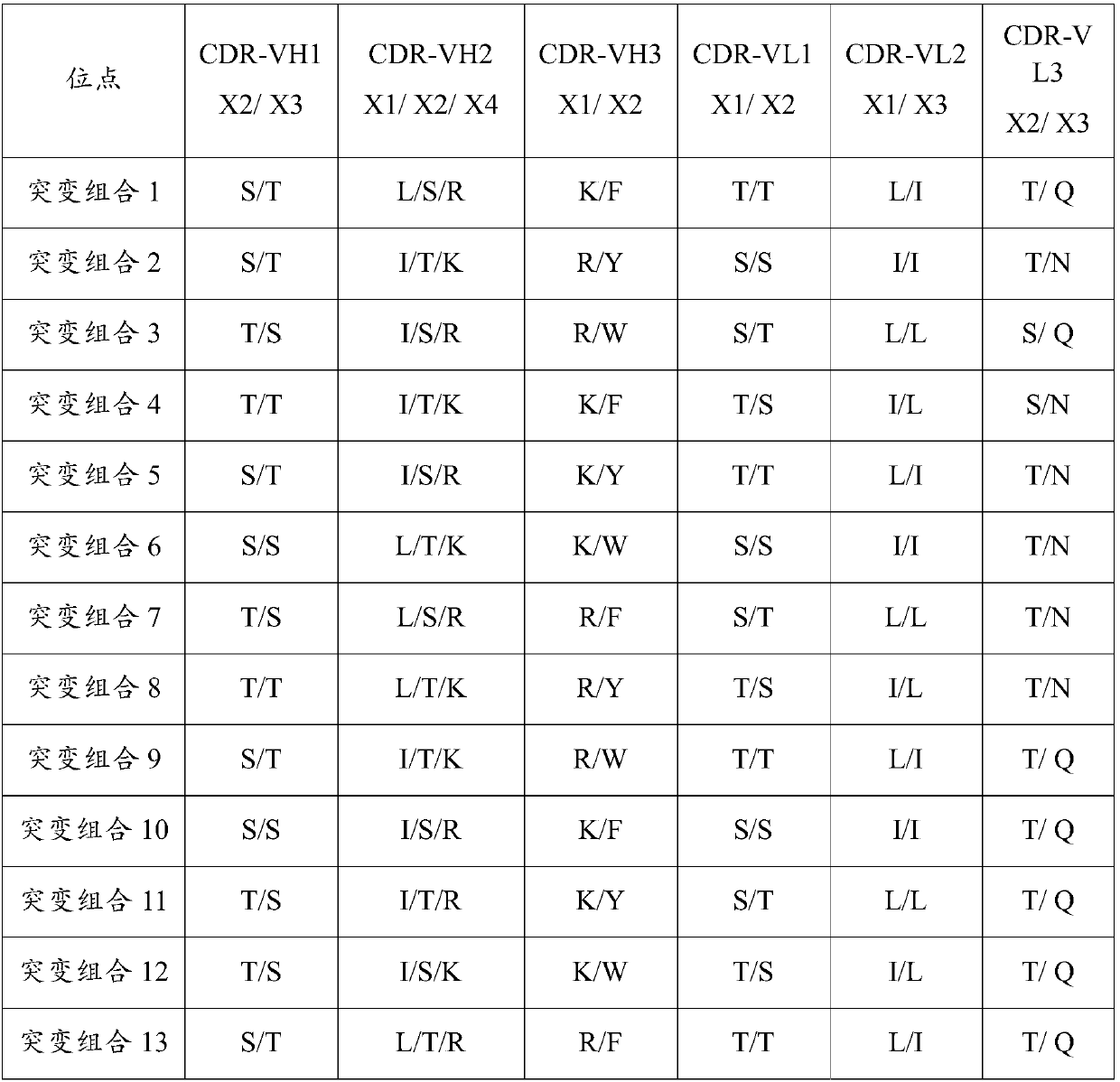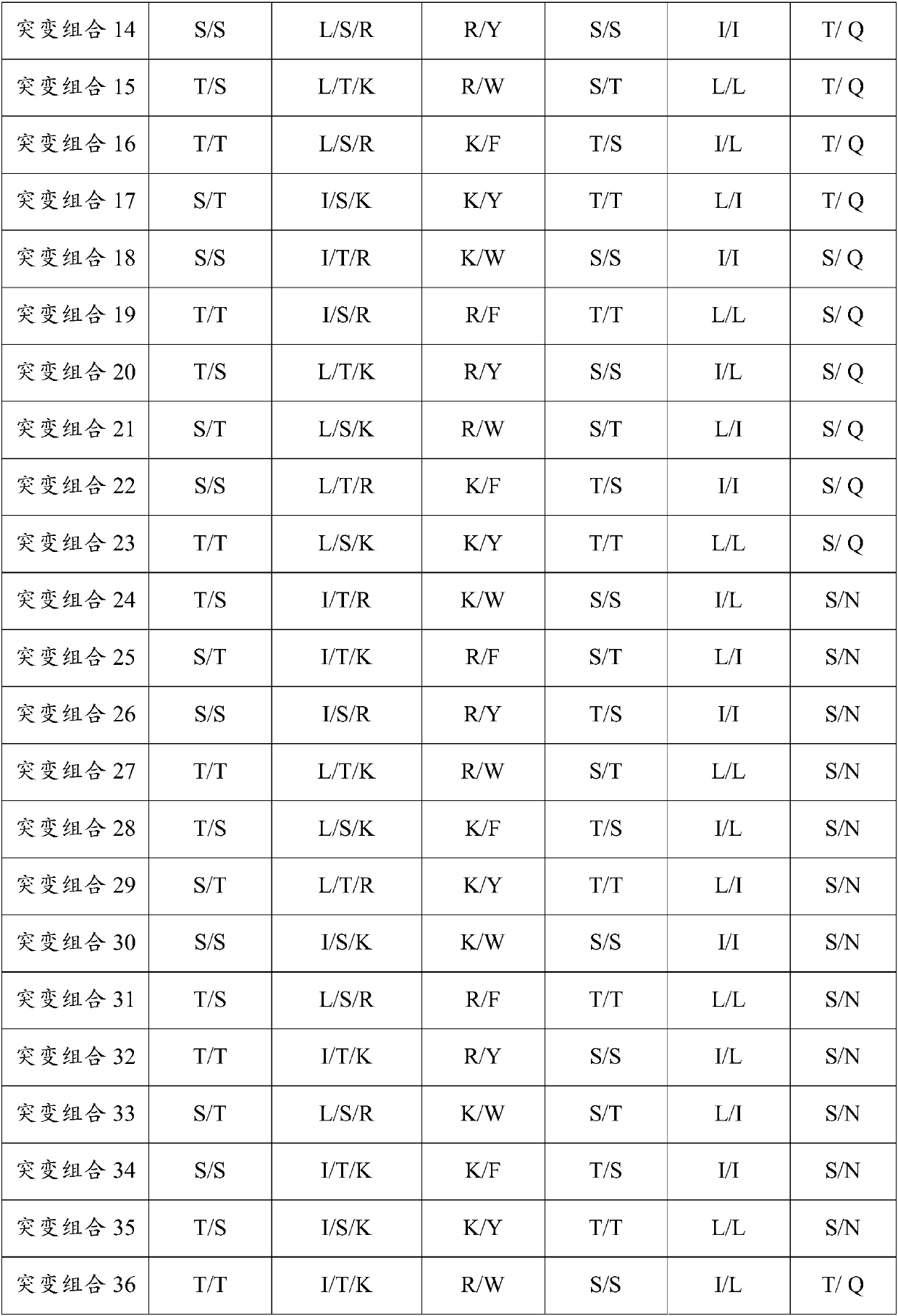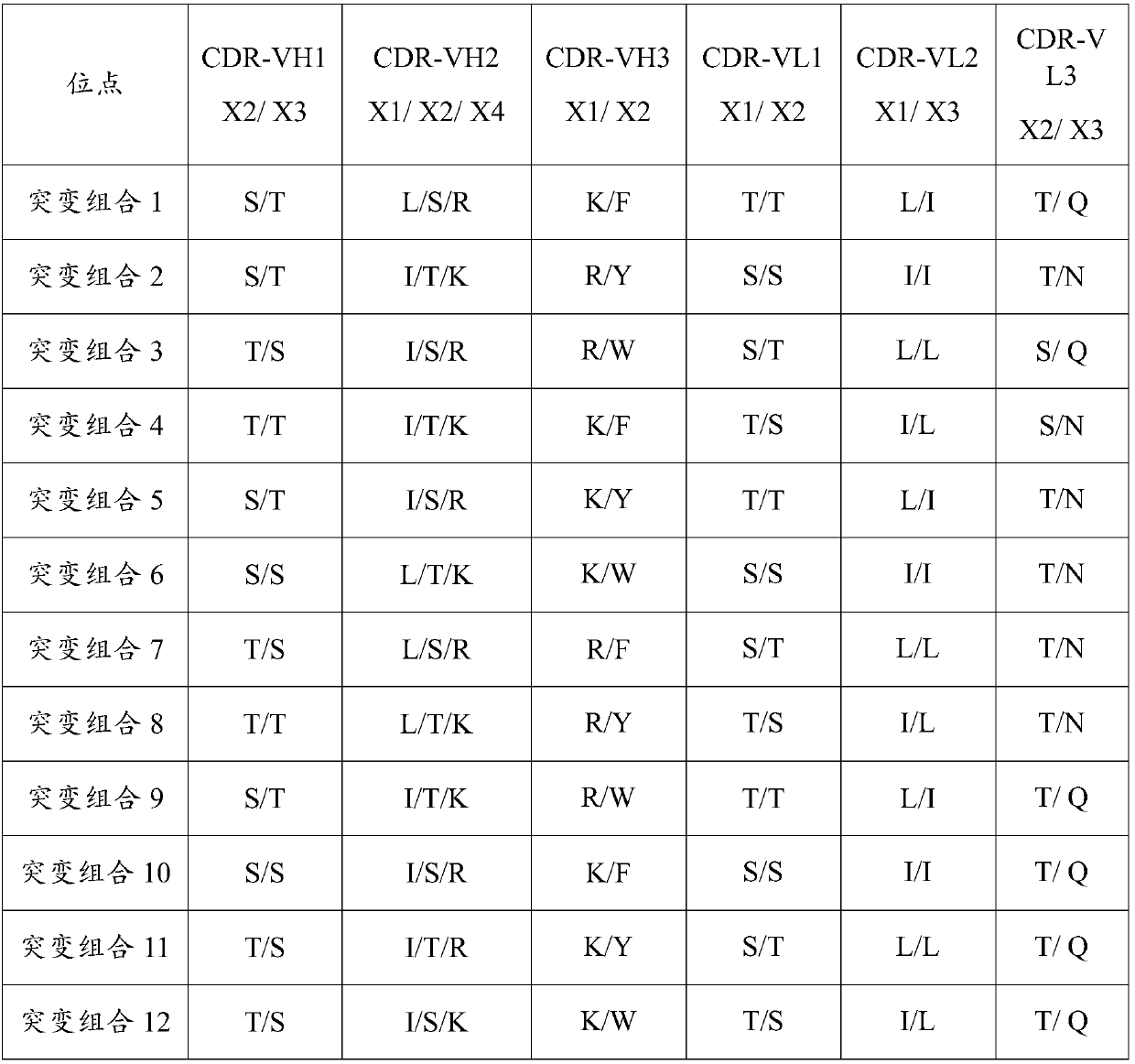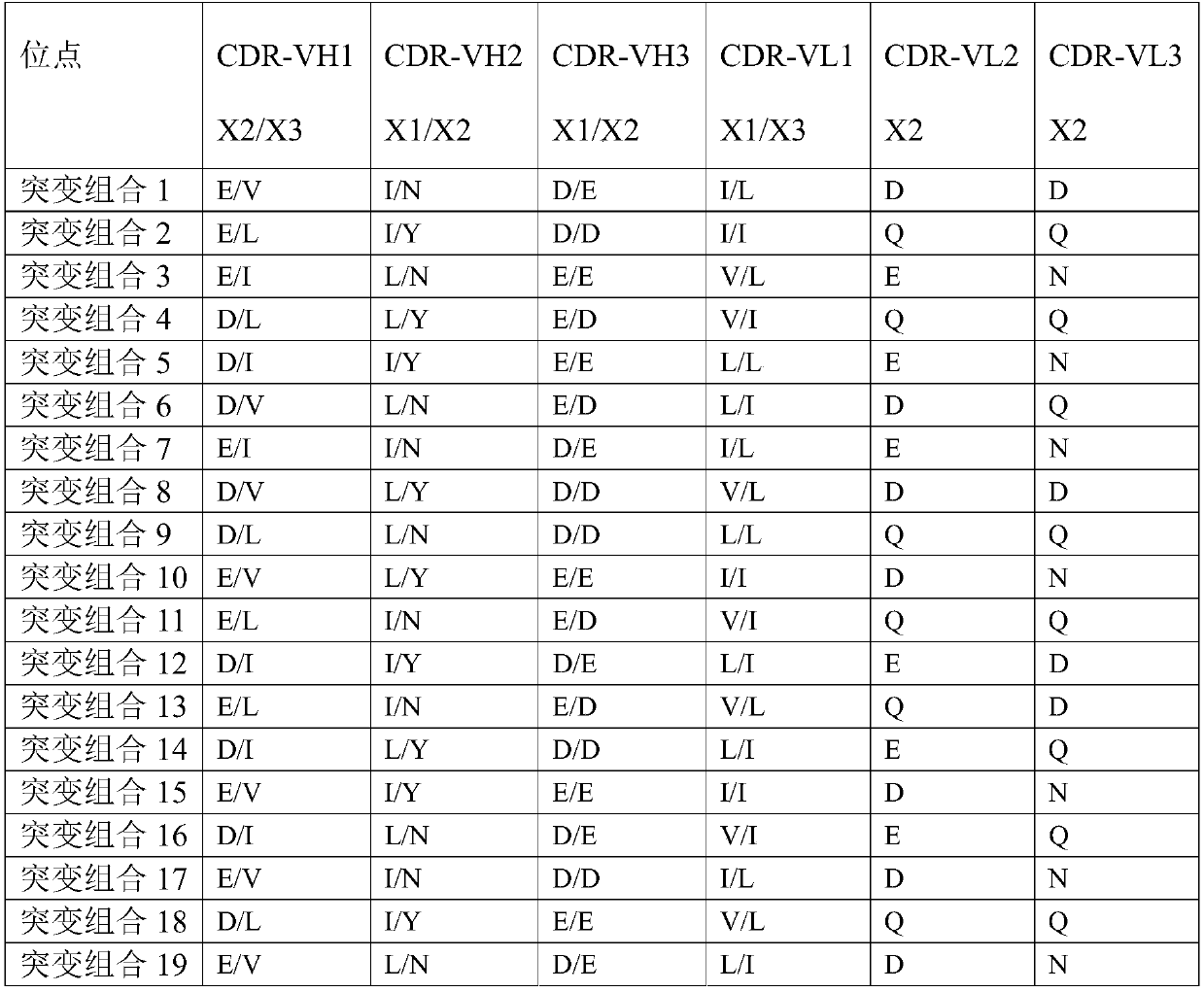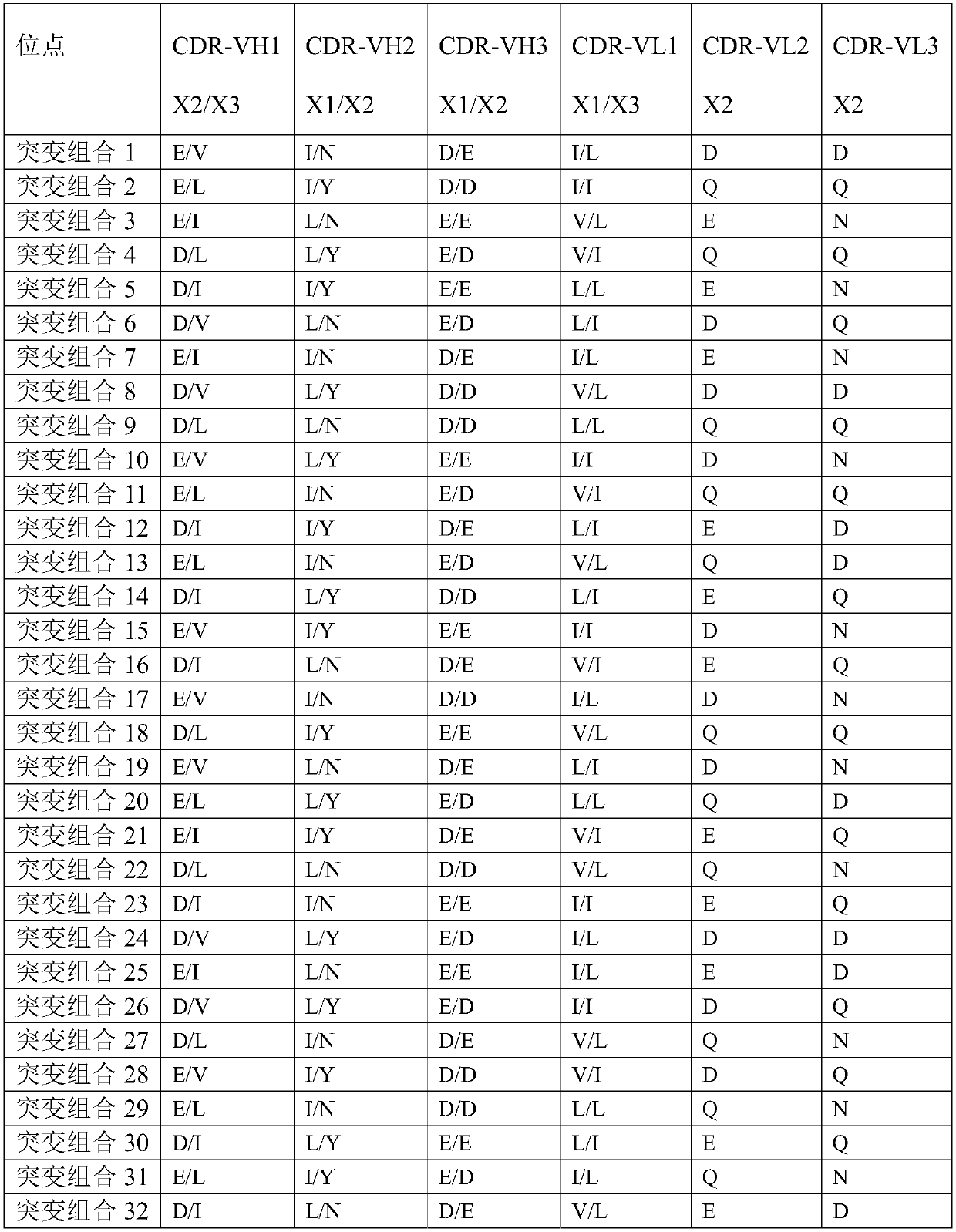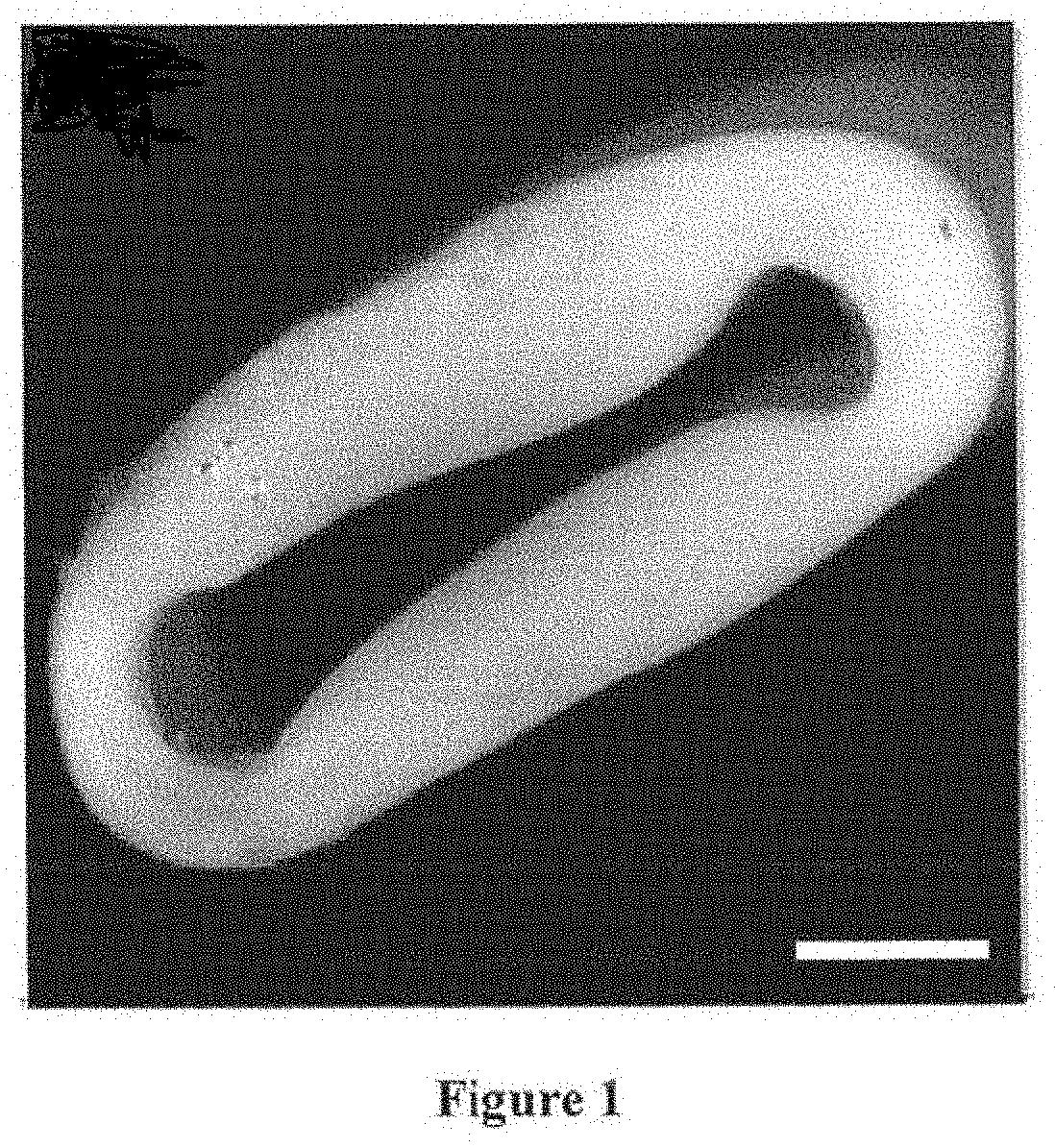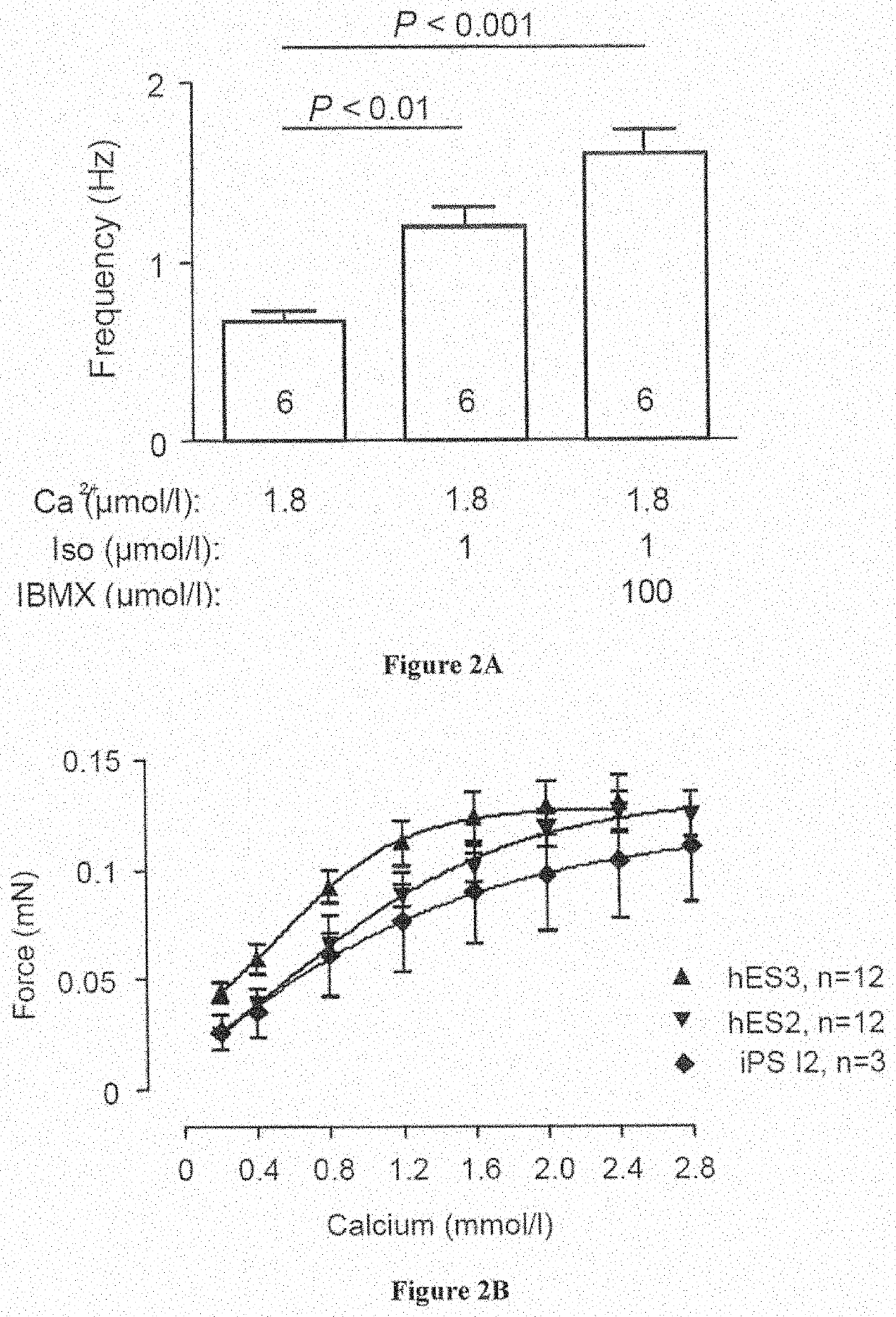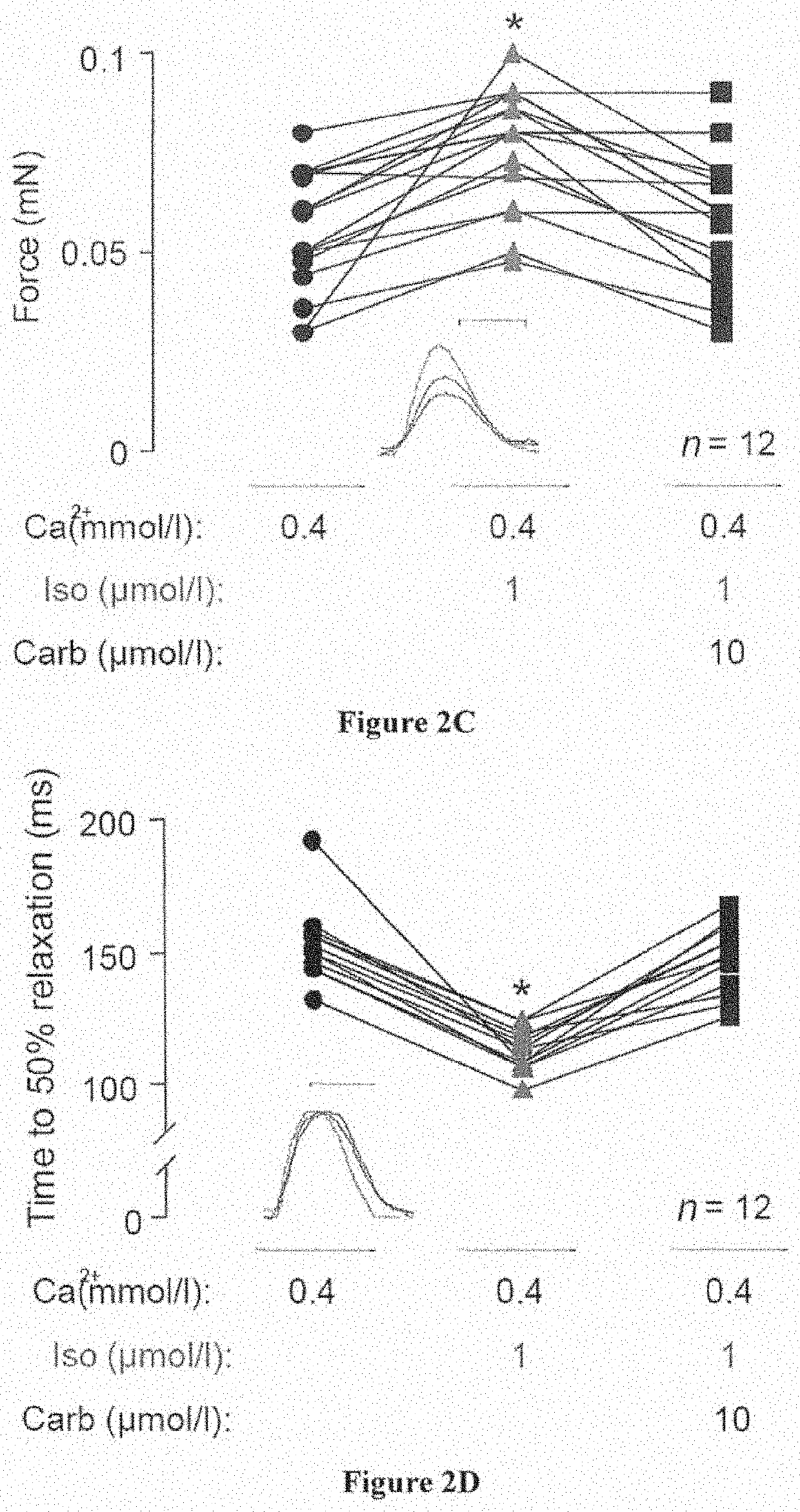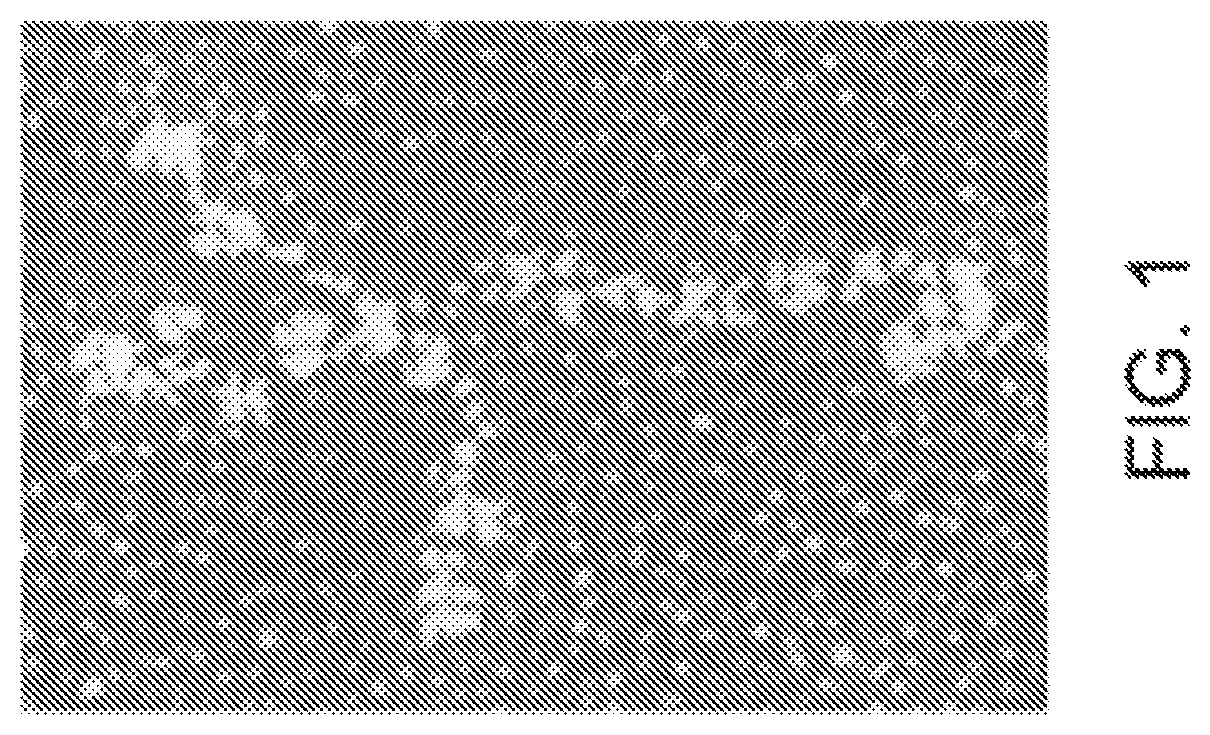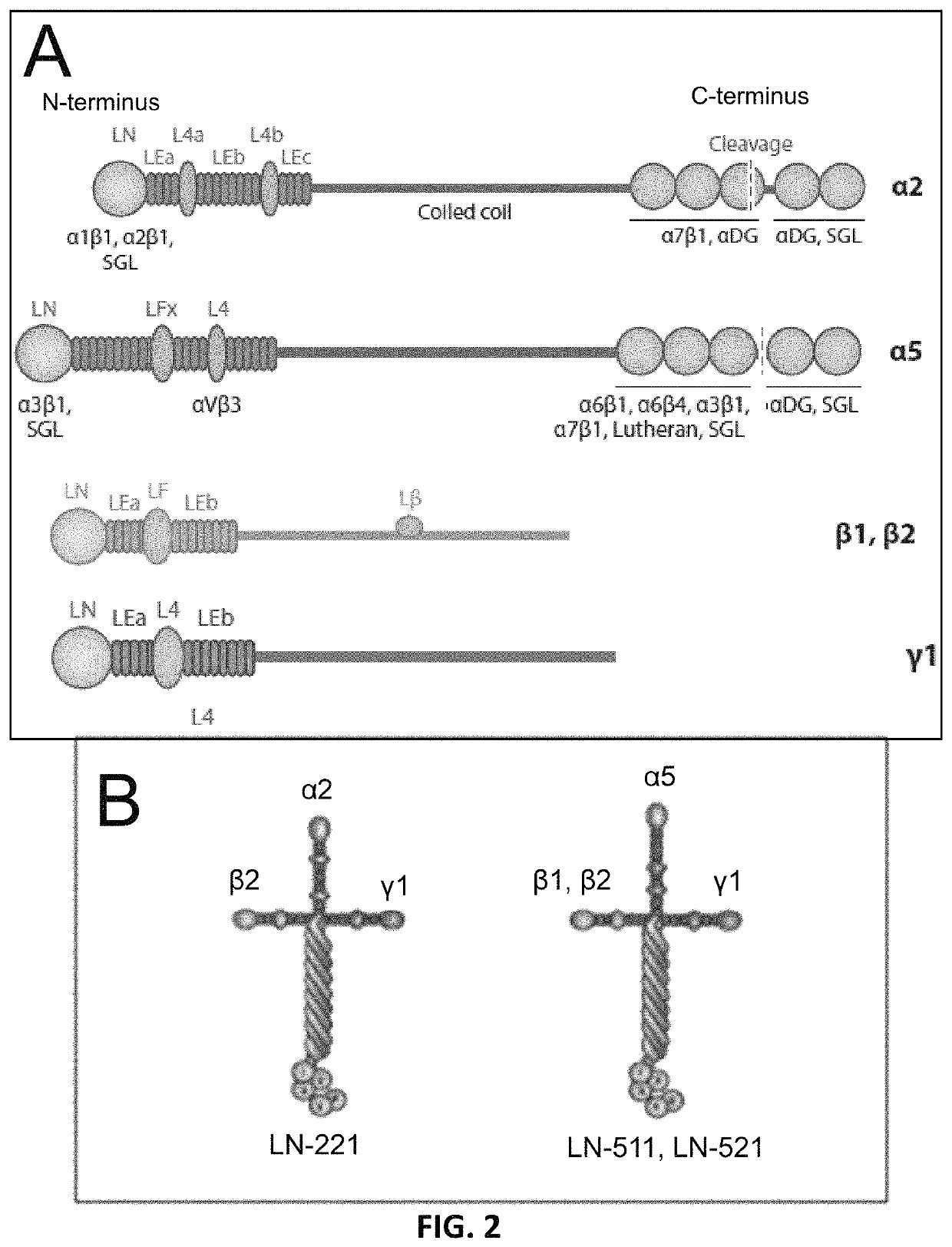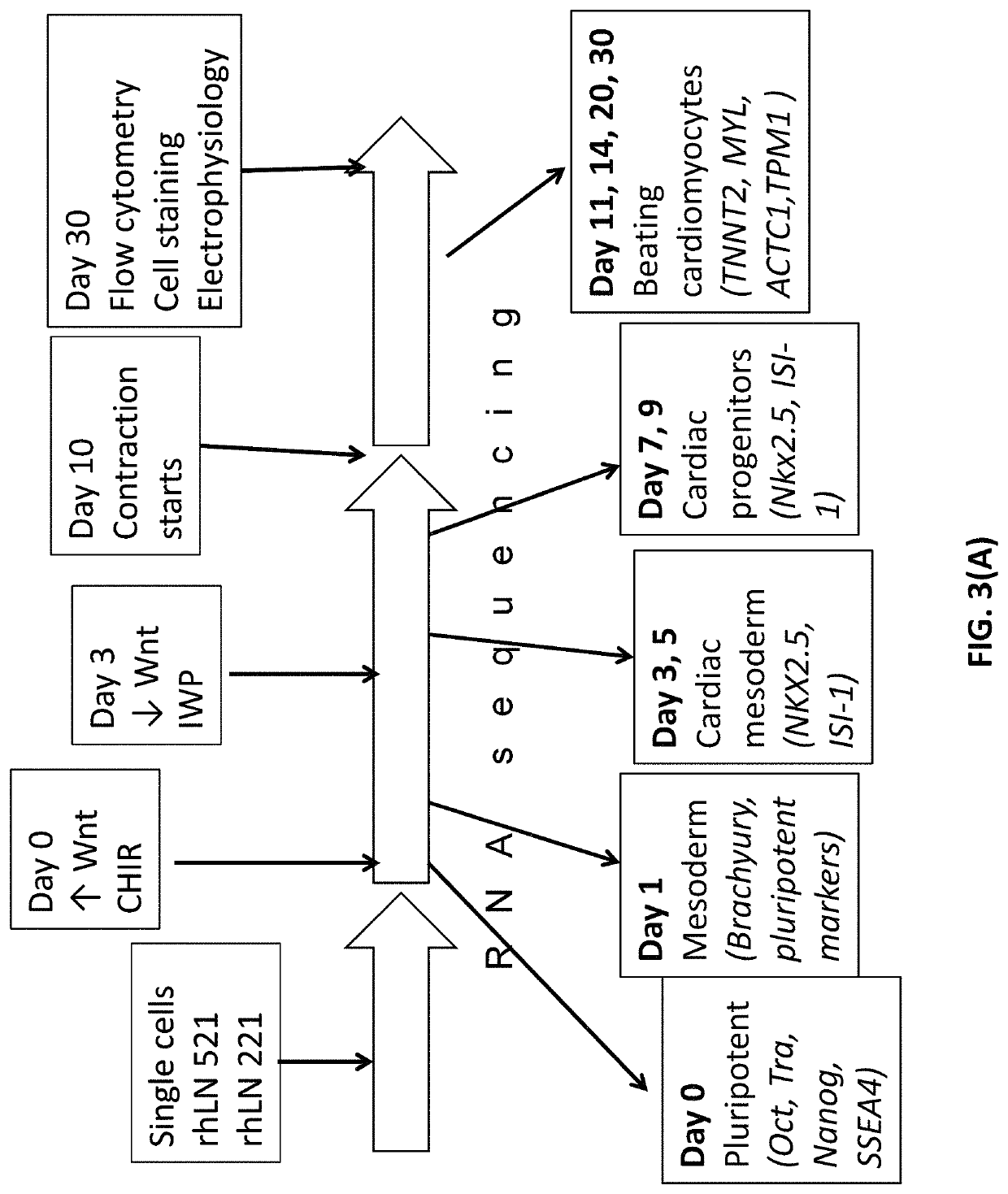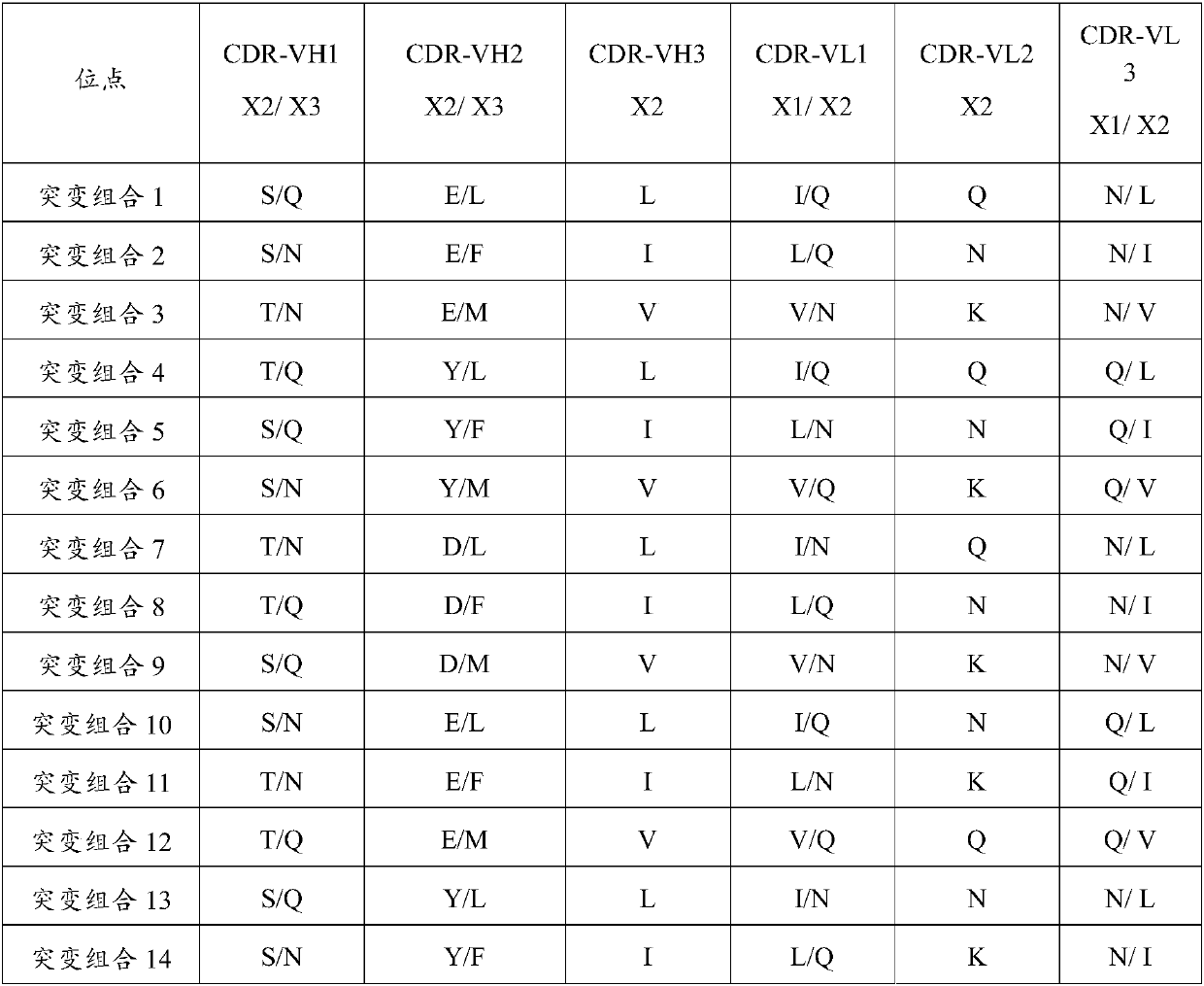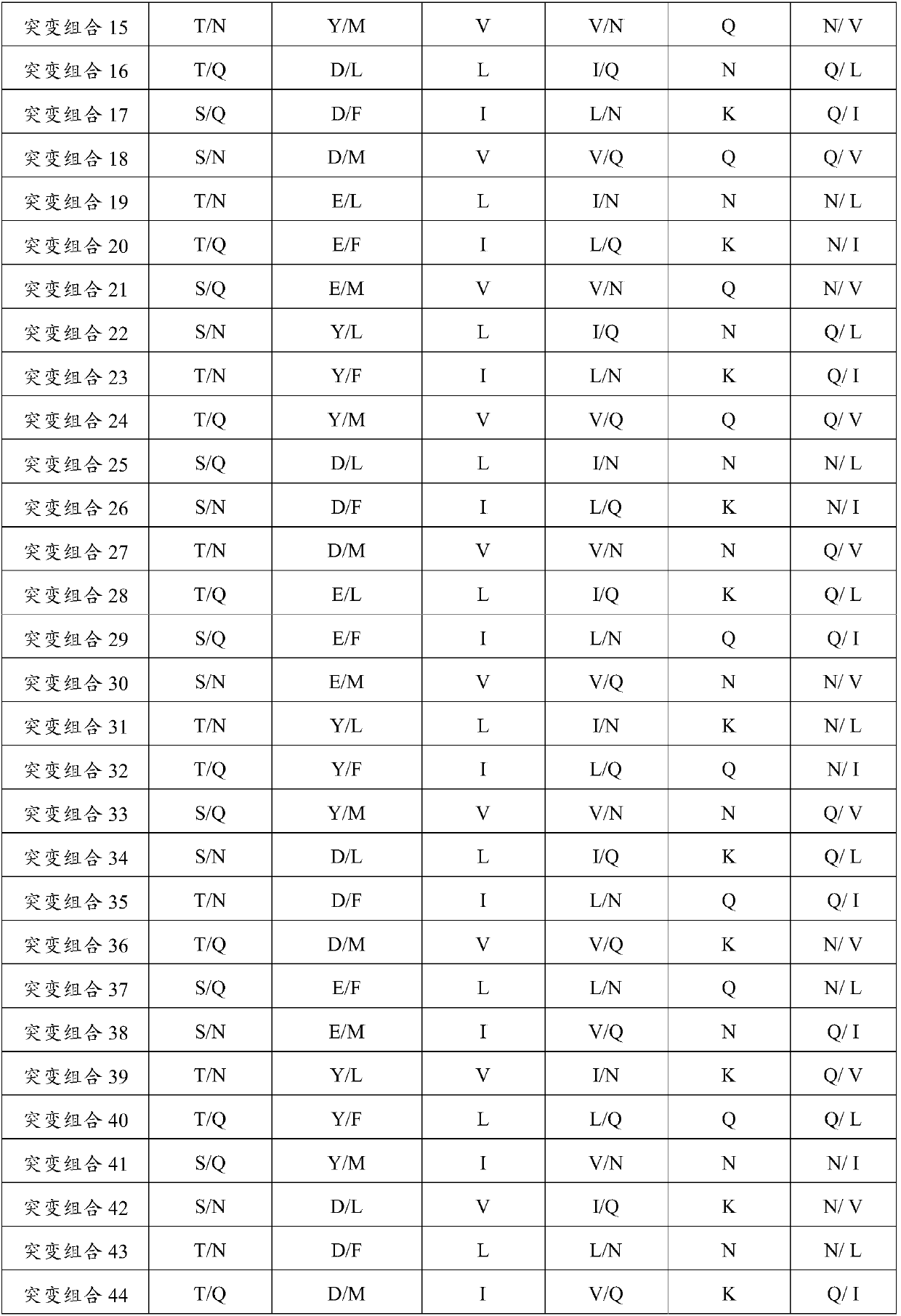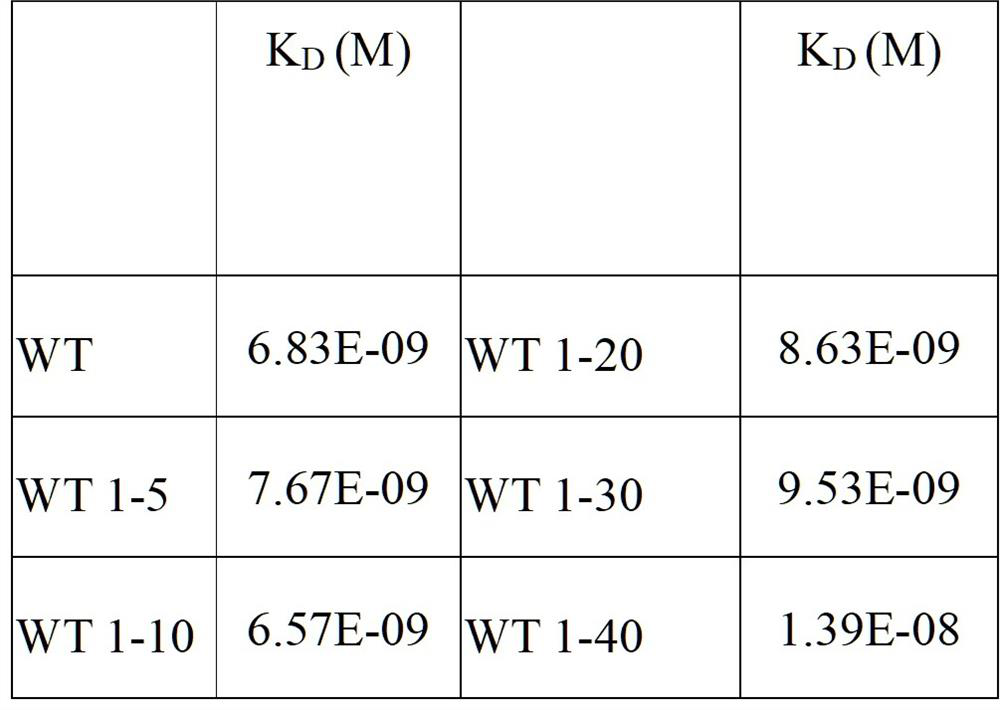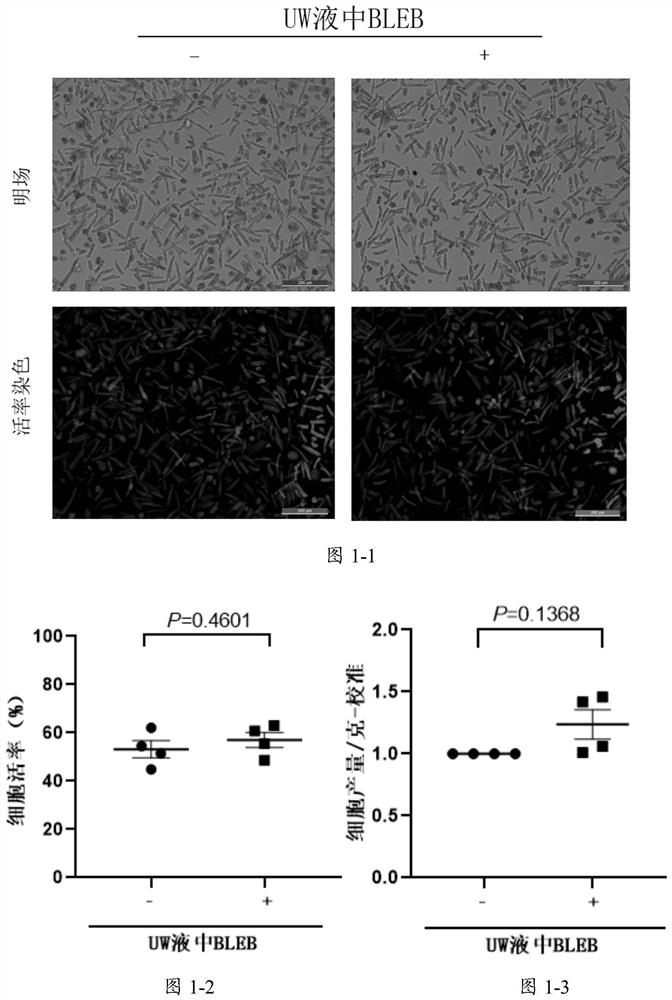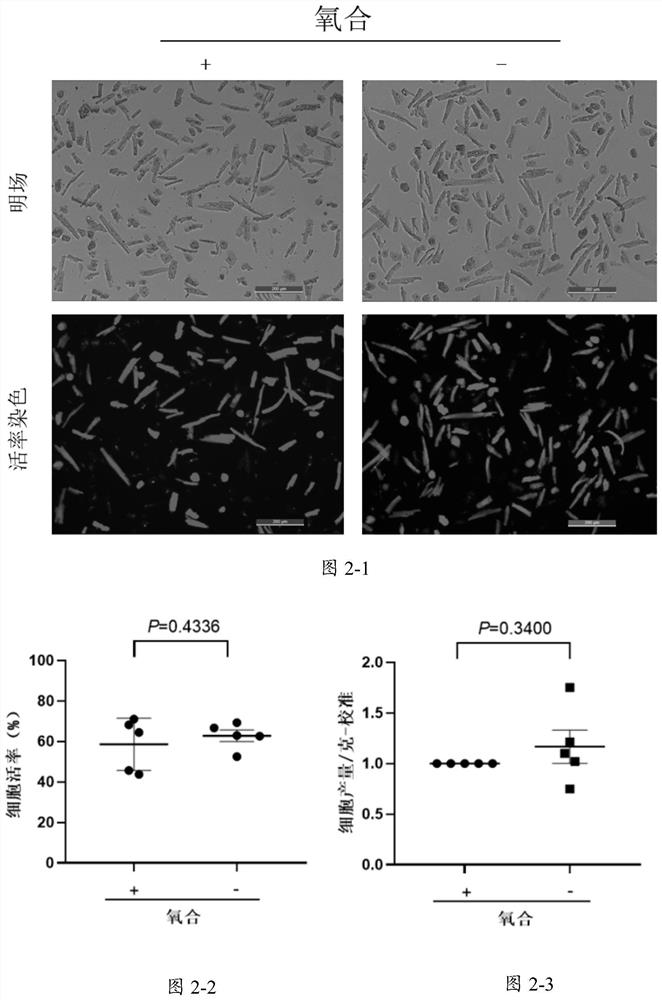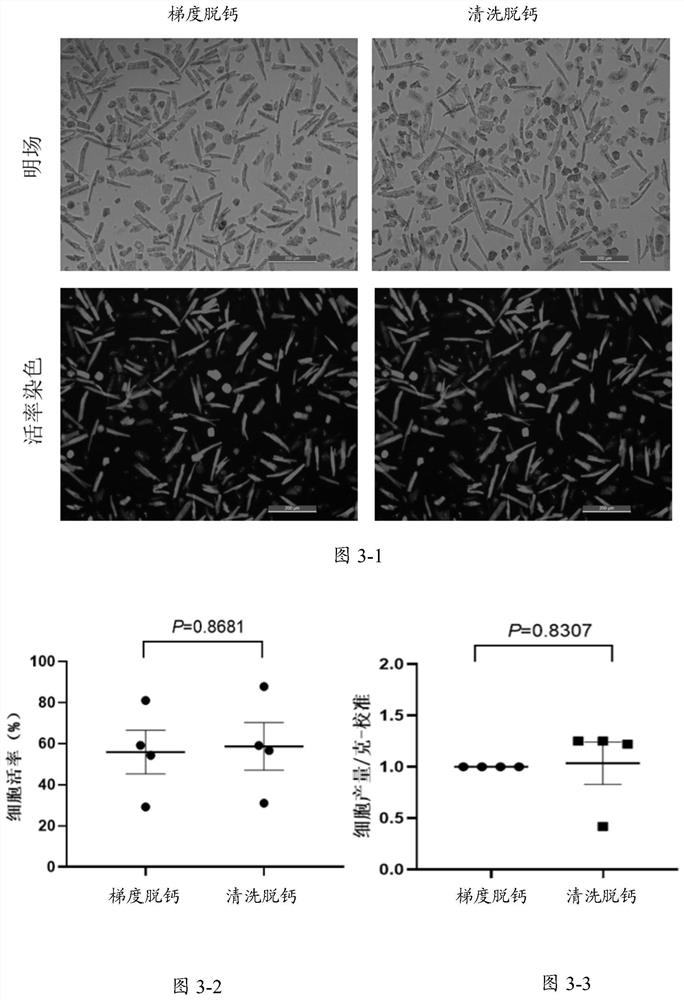Patents
Literature
Hiro is an intelligent assistant for R&D personnel, combined with Patent DNA, to facilitate innovative research.
63 results about "Human myocardium" patented technology
Efficacy Topic
Property
Owner
Technical Advancement
Application Domain
Technology Topic
Technology Field Word
Patent Country/Region
Patent Type
Patent Status
Application Year
Inventor
Use of jagged 1/frizzled 4 as a cell surface marker for isolating human cardiac ventricular progenitor cells
ActiveUS20160053229A1Easy and rapid isolationFunction increaseBiocideDrug screeningSurface markerProgenitor
The present invention provides Jagged 1 and Frizzled 4 as cell surface markers for isolating human cardiomyogenic ventricular progenitor cells, in particular progenitor cells that preferentially differentiate into cardiac ventricular muscle cells. Thus, the invention provides human ventricular progenitor (HVP) cells. The invention provides in vitro methods of the separation of Islet 1+ Jagged 1+ ventricular progenitor cells and / or Islet 1+ / Frizzled 4+ ventricular progenitor cells and / or Islet 1+ / Jagged 1+ / Frizzled 4+ ventricular progenitor cells, and the large scale expansion and propagation thereof. Large clonal populations of isolated Jagged 1+ and / or Frizzled 4+ventricular progenitor cells are also provided. Methods of in vivo use of Jagged 1+ and / or Frizzled 4+ ventricular progenitor cells for cardiac repair or to improve cardiac function are also provided. Methods of using the Jagged 1+ and / or Frizzled 4+ ventricular progenitor cells for cardiac toxicity screening of test compounds are also provided.
Owner:PROCELLA THERAPEUTICS AB
Use of lifr or fgfr3 as a cell surface marker for isolating human cardiac ventricular progenitor cells
ActiveUS20160108363A1Easy and rapid isolationFunction increaseBiocideArtificial cell constructsSurface markerProgenitor
The present invention provides LIFR and FGFR3 as cell surface markers for isolating human cardiomyogenic ventricular progenitor cells, in particular progenitor cells that preferentially differentiate into cardiac ventricular muscle cells. Thus, the invention provides human ventricular progenitor (HVP) cells. The invention provides in vitro methods of the separation of Islet 1+ LIFR+ ventricular progenitor cells and / or Islet 1+ / FGFR3+ ventricular progenitor cells and / or Islet 1+ / LIFR+ / FGFR3+ ventricular progenitor cells, and the large scale expansion and propagation thereof. Large clonal populations of isolated LIFR+ and / or FGFR3+ ventricular progenitor cells are also provided. Methods of in vivo use of LIFR+ and / or FGFR3+ ventricular progenitor cells for cardiac repair or to improve cardiac function are also provided. Methods of using the LIFR+ and / or FGFR3+ ventricular progenitor cells for cardiac toxicity screening of test compounds are also provided.
Owner:PROCELLA THERAPEUTICS AB
Purification of human myocardium troponin I and preparation method of its monoclonal anti-body
InactiveCN1495196AHigh content accuracyGood homologyImmunoglobulins against animals/humansFermentationBALB/cMonoclonal antibody
The present invention discloses a method for purifying human myocardium troporin I, preparing its monoclonal antibody and determining its content by using one-step process. It adopts affinity chromatography to purity human myocardium troponin I, and utilizes the purified myocardium troponin I and BALB / c mouse to immunoprepare the monoclonal antibody of said myocarbium troponin I, and establishes a method for determining myocardium troponin I content by means of one-step process. It can be extensively used for diagnosing heart disease.
Owner:上海润东生物科技有限公司
Troponin I competition turbidimetry detecting kit
The invention relates to a troponin I competition turbidimetry detecting kit. Three minitype peptide fragments of human cardiac troponin I (cTnI) needed by setting artificial synthesis are used, the peptide fragments and inert carrier protein are coupled, and the peptide fragments and polystyrene latex microballoons prepared by antibodies having an effect on the minitype peptide fragments form reagents. The kit prepared by the immune latex reagents can be used by a semiautomatic or full-automatic developing analyzer for detecting cardiac troponin content in serum.
Owner:温州煦棠生物科技有限公司
Non-human animal model of myocardial infarction and method for creating the same
InactiveUS20120110683A1Stable and goodLow risk of mortalityPowder deliveryStentsDefinite periodBlood flow
The present invention provides a non-human animal model of myocardial infarction, which can be created by a less invasive method, shows an extremely low mortality during and after surgical induction of myocardial infarction, ensures the blood reflow after necrosis of cardiac muscles caused by blocking blood flow, and therefore, is usable in topical therapy for myocardial infarction and studies on regenerative medicine. The present invention also provides a method for creating the non-human animal model comprising administering a temporary embolic agent to a branch blood vessel of a heart coronary artery to block blood flow in the branch blood vessel; and after a definite period of time after said vascular branch blockage, administering a temporary embolic agent to the target coronary artery which is intended to induce myocardial infarction to block blood flow in the target coronary artery.
Owner:THE NIPPON SYNTHETIC CHEM IND CO LTD
Anti-human cardiac troponin I antibody and applications thereof
ActiveCN111018983AHigh activityHigh affinityImmunoglobulins against animals/humansDisease diagnosisI antibodyHumanin
The invention relates to a novel isolated binding protein containing a cTnI antigen binding domain, and researches of the preparation, the applications and the like of the binding protein. The bindingprotein is high in activity, has high affinity with human cTnI protein, and can be widely applied to the field of cTnI protein detection.
Owner:DONGGUAN PENGZHI BIOTECH CO LTD
Section of synthesized peptide S28-42 of troponin I of human cardiac muscle and application
ActiveCN1660893APromote productionImprove detection levelPeptidesBiological testingSerum igeCardiac muscle
A synthetic peptide fragment S27-42 of human myocardium troponin I (cTnI) for testing the damage of human myocardium is disclosed. It has strong immunogenicity and immunoreactivity. Using it to immunize vertebrates can generate high-specificity antibody of cTnI to detect the similar peptide fragment residue in serum after cTnI is degradated. It can be used to prepare the reagent kit to detect the myocardium damage.
Owner:江苏如东高新创业投资有限公司
Method for producing engineered heart muscle (EHM)
The present invention provides a new method for producing Engineered Heart Muscle (EHM) under chemically fully defined conditions and compounds all compatible with GMP regulations. The resulting human myocardium generates force and shows typical heart muscle properties.
Owner:GEORG AUGUST UNIVERSITAT GOTTINGEN STIFTUNG OFFENLICHEN RECHTS
Human cardiac troponin I hybridoma cell line 7H4 and monoclonal antibody and application
ActiveCN107603955AHigh affinityStrong specificityImmunoglobulins against animals/humansTissue cultureSerum igeHybridoma cell
The present invention discloses human cardiac troponin I hybridoma cell line 7H4 and a monoclonal antibody and application. The hybridoma cell line 7H4 is deposited with the China Center for Type Culture Collection (CCTCC) on August 23, 2017 under accession number CCTCC NO: C2017121. The monoclonal antibody 7H4 secreted by the hybridoma cell line 7H4 is a high-affinity and high-specificity cTnI monoclonal antibody, can combines cTnI in three forms comprising free cTnI, dimeric complex cTnI-C and trimeric complex cTnI-T-C, can be used to detect the content of the cTnI in serum, and lays a foundation for development of a kit for rapid detection of myocardial infarction.
Owner:JINAN UNIVERSITY
Use of lifr or fgfr3 as a cell surface marker for isolating human cardiac ventricular progenitor cells
PendingUS20200268803A1Easy and rapid isolationFunction increaseSkeletal/connective tissue cellsUnknown materialsSurface markerCardiac functioning
The present invention provides LIFR and FGFR3 as cell surface markers for isolating human cardiomyogenic ventricular progenitor cells, in particular progenitor cells that preferentially differentiate into cardiac ventricular muscle cells. Thus, the invention provides human ventricular progenitor (HVP) cells. The invention provides in vitro methods of the separation of Islet 1+ LIFR+ ventricular progenitor cells and / or Islet 1+ / FGFR3+ ventricular progenitor cells and / or Islet 1+ / LIFR+ / FGFR3+ ventricular progenitor cells, and the large scale expansion and propagation thereof. Large clonal populations of isolated LIFR+ and / or FGFR3+ ventricular progenitor cells are also provided. Methods of in vivo use of LIFR+ and / or FGFR3+ ventricular progenitor cells for cardiac repair or to improve cardiac function are also provided. Methods of using the LIFR+ and / or FGFR3+ ventricular progenitor cells for cardiac toxicity screening of test compounds are also provided.
Owner:PROCELLA THERAPEUTICS AB
Use of jagged 1/frizzled 4 as a cell surface marker for isolating human cardiac ventricular progenitor cells
ActiveUS10597637B2Easy and rapid isolationFunction increaseDrug screeningSkeletal/connective tissue cellsSurface markerCardiac functioning
The present invention provides Jagged 1 and Frizzled 4 as cell surface markers for isolating human cardiomyogenic ventricular progenitor cells, in particular progenitor cells that preferentially differentiate into cardiac ventricular muscle cells. Thus, the invention provides human ventricular progenitor (HVP) cells. The invention provides in vitro methods of the separation of Islet 1+ Jagged 1+ ventricular progenitor cells and / or Islet 1+ / Frizzled 4+ ventricular progenitor cells and / or Islet 1+ / Jagged 1+ / Frizzled 4+ ventricular progenitor cells, and the large scale expansion and propagation thereof. Large clonal populations of isolated Jagged 1+ and / or Frizzled 4+ventricular progenitor cells are also provided. Methods of in vivo use of Jagged 1+ and / or Frizzled 4+ ventricular progenitor cells for cardiac repair or to improve cardiac function are also provided. Methods of using the Jagged 1+ and / or Frizzled 4+ ventricular progenitor cells for cardiac toxicity screening of test compounds are also provided.
Owner:PROCELLA THERAPEUTICS AB
Use of LIFR or FGFR3 as a cell surface marker for isolating human cardiac ventricular progenitor cells
ActiveUS10596200B2Easy and rapid isolationFunction increaseUnknown materialsSkeletal/connective tissue cellsSurface markerCardiac functioning
The present invention provides LIFR and FGFR3 as cell surface markers for isolating human cardiomyogenic ventricular progenitor cells, in particular progenitor cells that preferentially differentiate into cardiac ventricular muscle cells. Thus, the invention provides human ventricular progenitor (HVP) cells. The invention provides in vitro methods of the separation of Islet 1+ LIFR+ ventricular progenitor cells and / or Islet 1+ / FGFR3+ ventricular progenitor cells and / or Islet 1+ / LIFR+ / FGFR3+ ventricular progenitor cells, and the large scale expansion and propagation thereof. Large clonal populations of isolated LIFR+ and / or FGFR3+ ventricular progenitor cells are also provided. Methods of in vivo use of LIFR+ and / or FGFR3+ ventricular progenitor cells for cardiac repair or to improve cardiac function are also provided. Methods of using the LIFR+ and / or FGFR3+ ventricular progenitor cells for cardiac toxicity screening of test compounds are also provided.
Owner:PROCELLA THERAPEUTICS AB
Method for constructing human myocardial cell apoptosis model
PendingCN111411075AInduce apoptosisGenetically modified cellsSkeletal/connective tissue cellsMedicineApoptosis
The invention discloses a method for constructing a human myocardial cell apoptosis model. The inventor accidentally finds that after angiotensin II with a certain concentration is used for treating hiPSC-CM for a certain time, the apoptosis of hiPSC-CM can be effectively induced. According to some examples of the invention, the angiotensin II is used for inducing the apoptosis of human myocardialcells, and the myocardial cell apoptosis model closer to the human body is constructed, so that a powerful tool and method are provided for subsequent pharmacological experiments.
Owner:GUANGDONG BEATING ORIGIN REGENERATIVE MEDICINE CO LTD
Use of neuropilin-1 (NRP1) as a cell surface marker for isolating human cardiac ventricular progenitor cells
ActiveCN111133099ACulture processImmunoglobulins against cell receptors/antigens/surface-determinantsSurface markerCardiac functioning
The present invention provides NRP1 as a cell surface marker for isolating human cardiomyogenic ventricular progenitor cells (HVPs), in particular progenitor cells that preferentially differentiate into cardiac ventricular muscle cells. Additional HVP cell surface markers identified by single cell sequencing are also provided. The invention provides in vitro methods of the separation of NRP1+ ventricular progenitor cells, and the large scale expansion and propagation thereof. Large clonal populations of isolated NRP1+ ventricular progenitor cells are also provided. Methods of in vivo use of NRP1+ ventricular progenitor cells for cardiac repair or to improve cardiac function are also provided. Methods of using the NRP1+ ventricular progenitor cells for cardiac toxicity screening of test compounds are also provided.
Owner:PROCELLA THERAPEUTICS AB
Triple detection chromatography test strip for human cardiac troponin I, human growth differentiation factor 15 and human D dimer and an application thereof
PendingCN112816705AReduce distractionsHigh sensitivityDisease diagnosisBiological testingCardiac troponinHuman heart
The invention discloses a triple detection chromatography test strip for human cardiac troponin I (cTnI), a human growth differentiation factor 15 (GDF-15) and a human D dimer (DD) and an application thereof. The test strip comprises a bottom plate, a sample adding pad, a combination pad, a detection pad and a water absorption pad, wherein the sample adding pad, the combination pad, the detection pad and the water absorption pad are sequentially arranged on the bottom plate. Immunofluorescent microspheres for marking mouse anti-GDF-15 monoclonal antibodies, cTnI monoclonal antibodies and DD monoclonal antibodies and immunofluorescent microspheres for marking rabbit IgG are wrapped on the combination pad, monoclonal capture antibodies of mouse anti-GDF-15 monoclonal antibodies, cTnI monoclonal antibodies and DD monoclonal antibodies are wrapped on a detection line, and goat anti-rabbit IgG polyclonal antibodies are wrapped on a quality inspection line. The preparation method is improved so that the sensitivity and the specificity of the test strip for detecting three markers by adopting a fluorescent quantitative method are improved, and a new technical means is provided for detection of myocardial functions.
Owner:北京赛诺浦生物技术有限公司 +1
Use of Neuropilin-1 (NRP1) as a cell surface marker for isolating human cardiac ventricular progenitor cells
ActiveUS11186820B2Easy and rapid isolationFunction increaseCulture processImmunoglobulins against cell receptors/antigens/surface-determinantsSurface markerCardiac functioning
The present invention provides NRP1 as a cell surface marker for isolating human cardiomyogenic ventricular progenitor cells (HVPs), in particular progenitor cells that preferentially differentiate into cardiac ventricular muscle cells. Additional HVP cell surface markers identified by single cell sequencing are also provided. The invention provides in vitro methods of the separation of NRP1+ ventricular progenitor cells, and the large scale expansion and propagation thereof. Large clonal populations of isolated NRP1+ ventricular progenitor cells are also provided. Methods of in vivo use of NRP1+ ventricular progenitor cells for cardiac repair or to improve cardiac function are also provided. Methods of using the NRP1+ ventricular progenitor cells for cardiac toxicity screening of test compounds are also provided.
Owner:PROCELLA THERAPEUTICS AB
Human myocardium protecting gene and uses thereof
InactiveCN101200721APurposefulWith precisionGenetic material ingredientsGenetic engineeringHSF1Organism
The present invention belongs to the biotechnological field and relates to a human myocardial protection gene heat shock transcription factor (HSF1) and a sieving method and a purpose thereof. The present invention adopts the method of ''death trap'' that the gene which resists myocardial cell death is sieved from human cardiac gene, and the human myocardial protection gene heat shock transcription factor 1 is cloned from the obtained gene. The result of transfection cell and animal experiment shows that the obtained human myocardial protection gene has the function of resisting cell death and also has the function of resisting ischemia, protecting myocardial cell and preventing and remedying the heart failure occurrence and development inside the heart of a living organism. The present invention can prepare for the medicine for remedying the ischemic heart disease and preventing the cardiac insufficiency and provides a novel target gene for the further function research and the gene engineering medicine development, which has important meaning for the early prevention and treatment of the heart failure and the research and the development of the related medicines and measures.
Owner:ZHONGSHAN HOSPITAL FUDAN UNIV
Recombinant antibody of anti-human cardiac troponin I
ActiveCN111018976AHigh activityHigh affinityImmunoglobulins against animals/humansDisease diagnosisHumaninProtein detection
The invention relates to a novel isolated binding protein containing a cTnI antigen binding domain, and researches of the preparation, the applications and the like of the binding protein. The bindingprotein is high in activity, has high affinity with human cTnI protein, and can be widely applied to the field of cTnI protein detection.
Owner:DONGGUAN PENGZHI BIOTECH CO LTD
Application of 14-deoxy-11, 12-dehydrogenation-7, 8-ene-andrographolide and 15-subunit substituted derivative
ActiveCN109771416AClear activityAnti-hepatic enhancementOrganic active ingredientsOrganic chemistryDehydrogenationIn vivo
The invention belongs to the technical field of medicines, and discloses an application of an andrographolide derivative in the preparation of medicaments for preventing and treating various fibrosis.The invention relates to an application of 14-deoxy-11, 12-dehydrogenation-7, 8-ene-andrographolide and a 15-subunit substituted derivative. Experiments prove that the compound obviously inhibits themigration and activation of hepatic stellate cells; significantly inhibits TGF-beta1 induced mesenchymal transformation of human alveolar type II epithelial cells A549; significantly inhibits TGFbeta1 induced HK-2 mesenchymal transformation of human renal cortical proximal tubular epithelial cells; inhibits the migration of HCFB in primary human cardiac fibroblasts induced by angiotensin II (AngII). In a model of common bile duct ligation in mice, a model of pulmonary fibrosis induced by silica in mice and a model of unilateral ureteral ligation in mice, the compound shows good anti-fibrosisactivity in vivo. The compound is used as an active ingredient for preparing the anti-fibrosis medicament, has high efficiency and low toxicity, and has a good prospect of developing various anti-fibrosis medicaments.
Owner:ZHENGZHOU UNIV
Skeletal muscle periangioblasts and cardiac mesangioblasts, method for isolation and uses thereof
The present invention discloses the isolation and characterization of cells isolated either from adult skeletal muscle or from adult cardiac muscle. These cells are used for the treatment of muscular disorders including muscular dystrophy and cardiopathics, respectively.
Owner:OSPEDALE SAN RAFFAELE SRL
DNA aptamer specifically binding to human cardiac troponin i
ActiveUS20120316326A1Improve diagnostic accuracyStrong specificitySugar derivativesDisease diagnosisAntibodyPhases of clinical research
Disclosed are a DNA aptamer specifically binding to human cardiac troponin I, and a composition and a diagnostic kit for the diagnosis of acute cardiovascular diseases, comprising the same. Being superior in specificity and stability to antibodies which are conventionally used to diagnose acute cardiovascular diseases, the DNA aptamers specifically binding to human cardiac troponin I can be developed into biosensors which determine human cardiac troponin I levels with high sensitivity and accuracy, greatly contributing to the diagnosis in an early stage of acute cardiovascular diseases. It is expected to lots of help for increase of diagnostic accuracy.
Owner:MD APTUS INC
Human myocardial cell separation reagent, culture medium and separation and culture methods
ActiveCN111778205AGood conditionMaintain cell shapeCell dissociation methodsCulture processHuman myocardiumBiochemistry
The invention relates to a human myocardial cell separation reagent, culture medium and separation and culture methods. The human myocardial cell separation reagent disclosed by the invention contains(-)-Blebbistatin, and the human myocardial cell culture medium contains (-)-Blebbistatin or para-aminoblebbistatin. By the adoption of the reagent, the culture medium and the separation and culture methods, cells can be kept in the optimal state and the morphology, survival rate and purity of the cells are kept in separation and culture.
Owner:青岛百洋智心科技有限公司
Method for producing engineered heart muscle (EHM)
The present invention provides a new method for producing Engineered Heart Muscle (EHM) under chemically fully defined conditions and compounds all compatible with GMP regulations. The resulting human myocardium generates force and shows typical heart muscle properties.
Owner:GEORG AUGUST UNIVERSITAT GOTTINGEN STIFTUNG OFFENLICHEN RECHTS
Anti-human cardiac troponin I antibody and applications thereof
ActiveCN111018980AHigh activityHigh affinityImmunoglobulins against animals/humansDisease diagnosisI antibodyHumanin
The invention relates to a novel isolated binding protein containing a cTnI antigen binding domain, and researches of the preparation, the applications and the like of the binding protein. The bindingprotein is high in activity, has high affinity with human cTnI protein, and can be widely applied to the field of cTnI protein detection.
Owner:DONGGUAN PENGZHI BIOTECH CO LTD
Recombinant antibody of anti-human cardiac troponin I
ActiveCN111018975AHigh activityHigh affinityImmunoglobulins against animals/humansDisease diagnosisProtein detectionAntiendomysial antibodies
The invention relates to a recombinant antibody of an anti-human cardiac troponin I, particularly to a novel isolated binding protein containing a cTnI antigen binding domain, and researches of the preparation, the applications and the like of the binding protein. The binding protein is high in activity, has high affinity with human cTnI protein, and can be widely applied to the field of cTnI protein detection.
Owner:DONGGUAN PENGZHI BIOTECH CO LTD
Method for producing engineered heart muscle (EHM)
The present invention provides a new method for producing Engineered Heart Muscle (EHM) under chemically fully defined conditions all compatible with GMP regulations. The resulting human myocardium generates force and shows typical heart muscle properties.
Owner:GEORG AUGUST UNIVERSITAT GOTTINGEN STIFTUNG OFFENLICHEN RECHTS
Differentiation of pluripotent stem cells and cardiac progenitor cells into striated cardiomyocyte fibers using laminins LN-511, LN-521 and LN-221
ActiveUS11001807B2Microbiological testing/measurementSkeletal/connective tissue cellsLamininHuman myocardium
The present disclosure describes methods of differentiating cardiomyocyte progenitor cells and mature cardiomyocyte cells from pluripotent stem cells. The methods may include differentiating pluripotent stems cells on a substrate including (i) laminin-511 or 521 and (ii) laminin 221. The mature cardiomyocyte cells produced by the method may form a human heart muscle cell line for use in regenerative cardiology.
Owner:NAT UNIV OF SINGAPORE +1
Anti-human cardiac troponin I antibody and applications thereof
ActiveCN111018979AHigh activityHigh affinityImmunoglobulins against animals/humansDisease diagnosisI antibodyHumanin
The invention relates to a novel isolated binding protein containing a cTnI antigen binding domain, and researches of the preparation, the applications and the like of the binding protein. The bindingprotein is high in activity, has high affinity with human cTnI protein, and can be widely applied to the field of cTnI protein detection.
Owner:DONGGUAN PENGZHI BIOTECH CO LTD
A recombinant antibody against human cardiac troponin I
ActiveCN111018975BImmunoglobulins against animals/humansDisease diagnosisAntiendomysial antibodiesProtein i
The present invention relates to a recombinant antibody against human cardiac troponin I, in particular to a novel isolated binding protein containing cTnI antigen binding domain, and researches on the preparation and application of the binding protein. The binding protein has strong activity and high affinity with human cTnI protein, and can be widely used in the detection field of cTnI protein.
Owner:DONGGUAN PENGZHI BIOTECH CO LTD
Cardiomyocyte isolation reagent and isolation method
ActiveCN111748518BHigh activityQuality improvementCell dissociation methodsSkeletal/connective tissue cellsHuman myocardiumBiochemistry
The present invention relates to separation reagents and separation methods for mammalian cardiomyocytes, particularly human cardiomyocytes. Specifically, the present invention relates to a method for separating cardiomyocytes, which includes the following steps: a pretreatment step, a cleaning and decalcification step, a digestion step, an equilibration step, and a drip recalcification step, wherein at least An operating fluid contains BLEB and / or PAB or a physiologically acceptable salt thereof. Therefore, the present invention can significantly reduce the operation time of cardiomyocyte separation, and at the same time improve the viability and quality of the separated cells.
Owner:深圳百洋智心医学研究有限公司
Features
- R&D
- Intellectual Property
- Life Sciences
- Materials
- Tech Scout
Why Patsnap Eureka
- Unparalleled Data Quality
- Higher Quality Content
- 60% Fewer Hallucinations
Social media
Patsnap Eureka Blog
Learn More Browse by: Latest US Patents, China's latest patents, Technical Efficacy Thesaurus, Application Domain, Technology Topic, Popular Technical Reports.
© 2025 PatSnap. All rights reserved.Legal|Privacy policy|Modern Slavery Act Transparency Statement|Sitemap|About US| Contact US: help@patsnap.com



